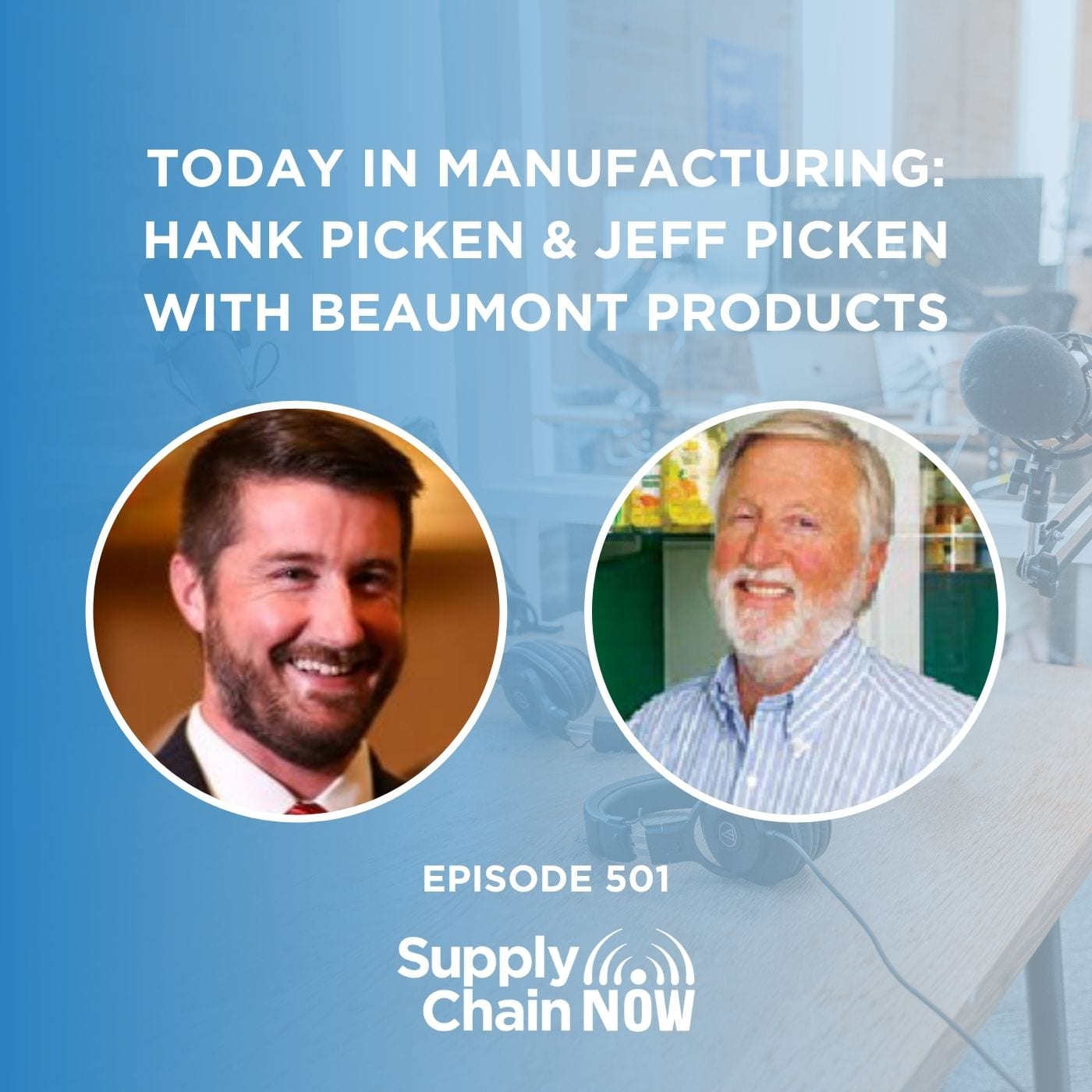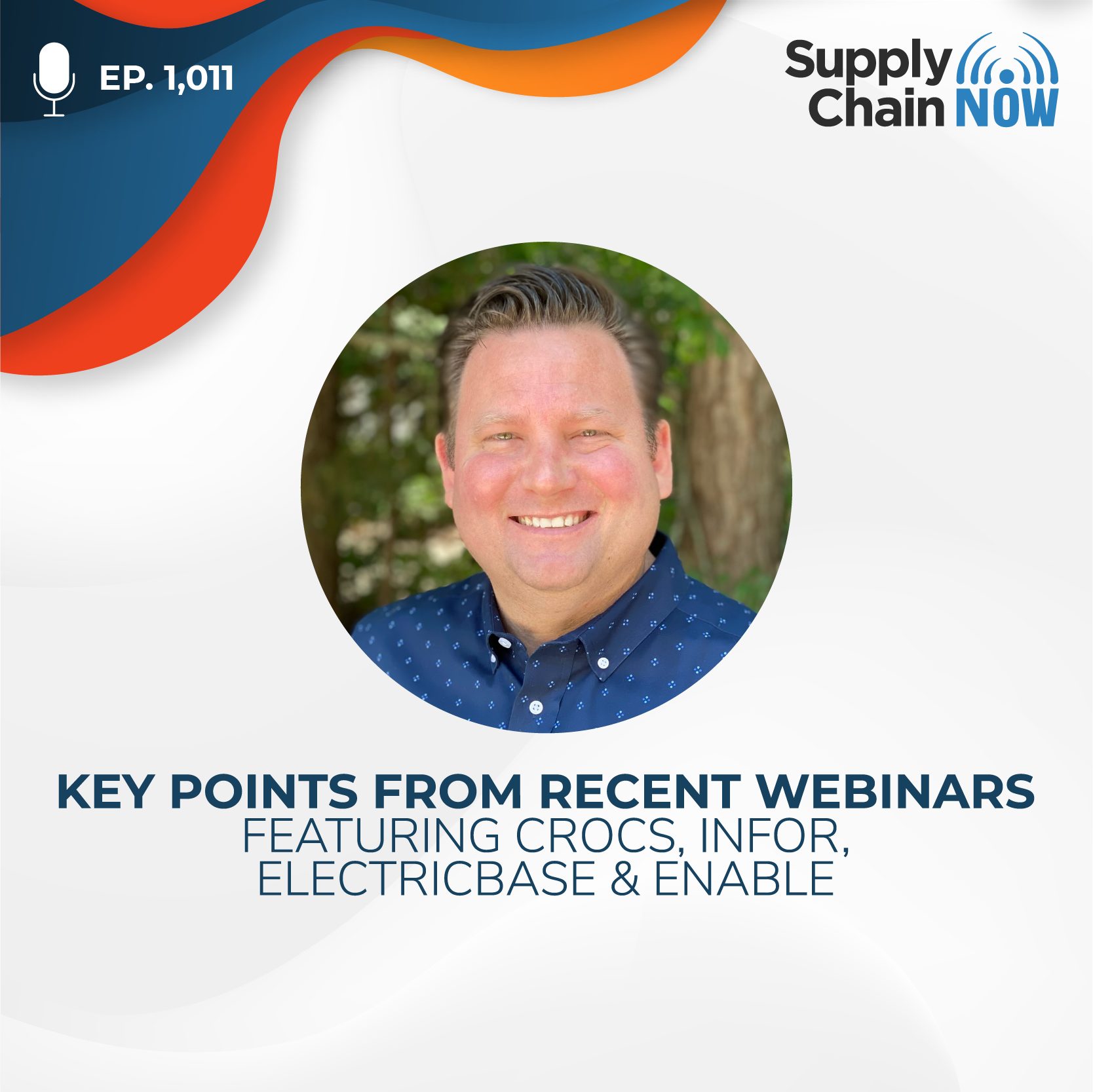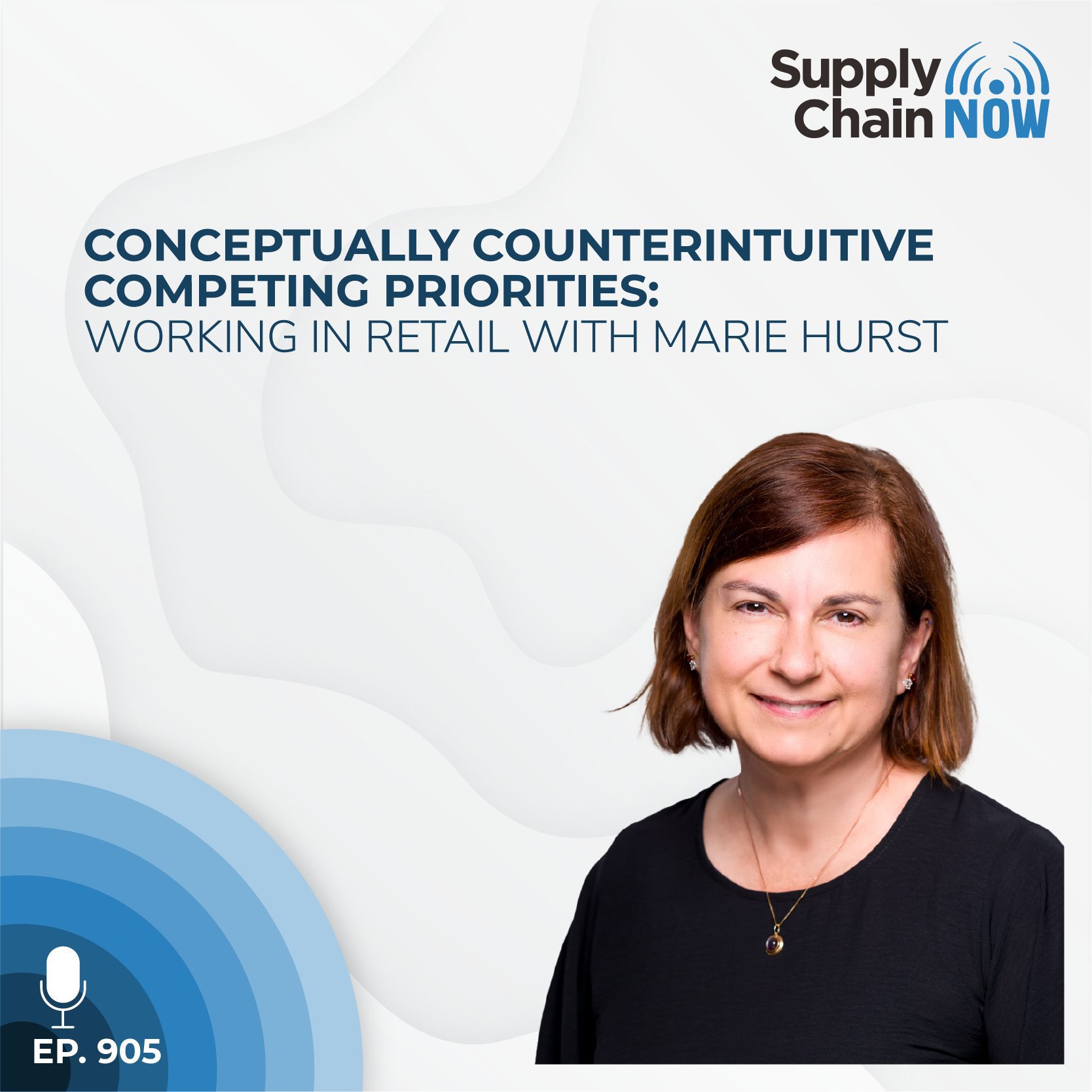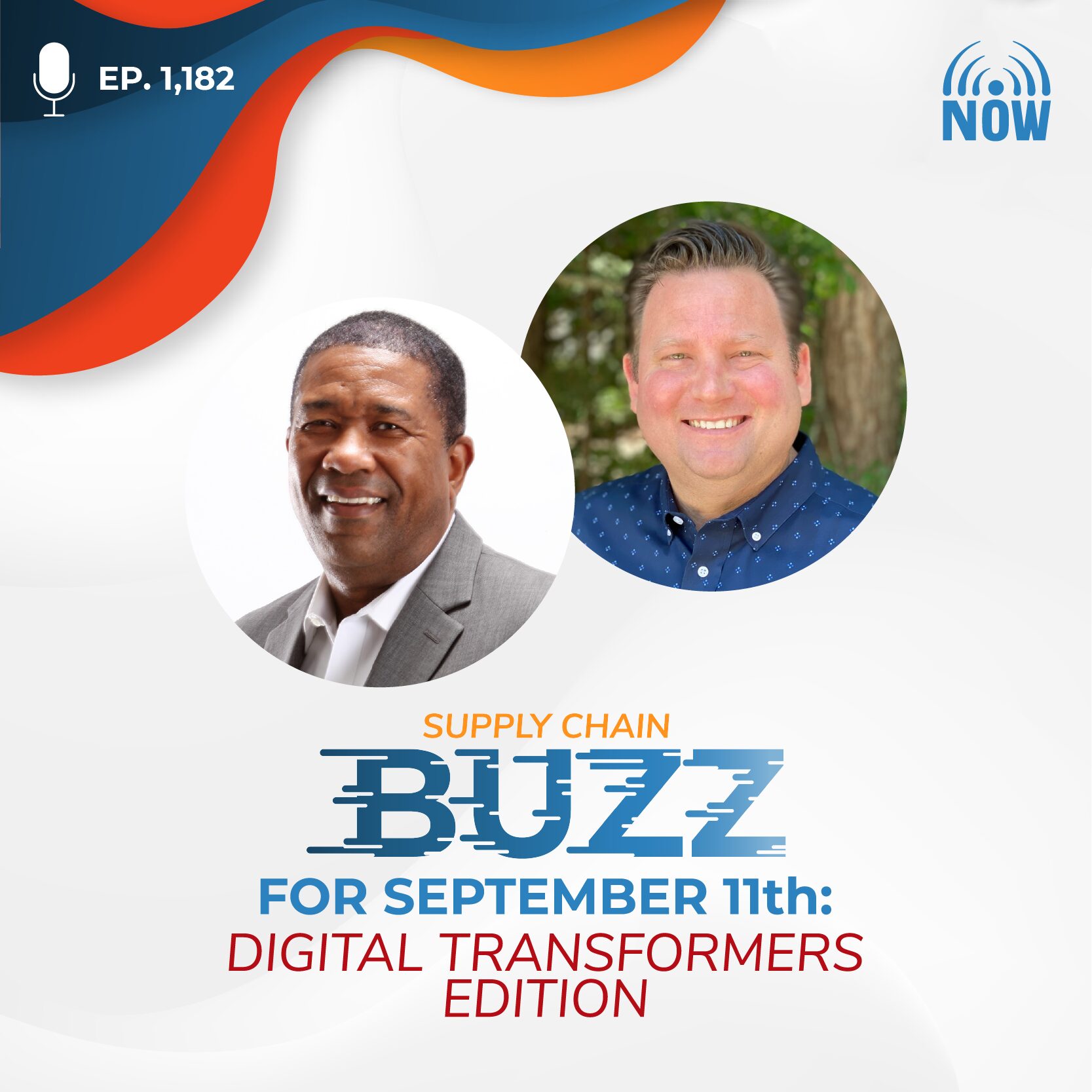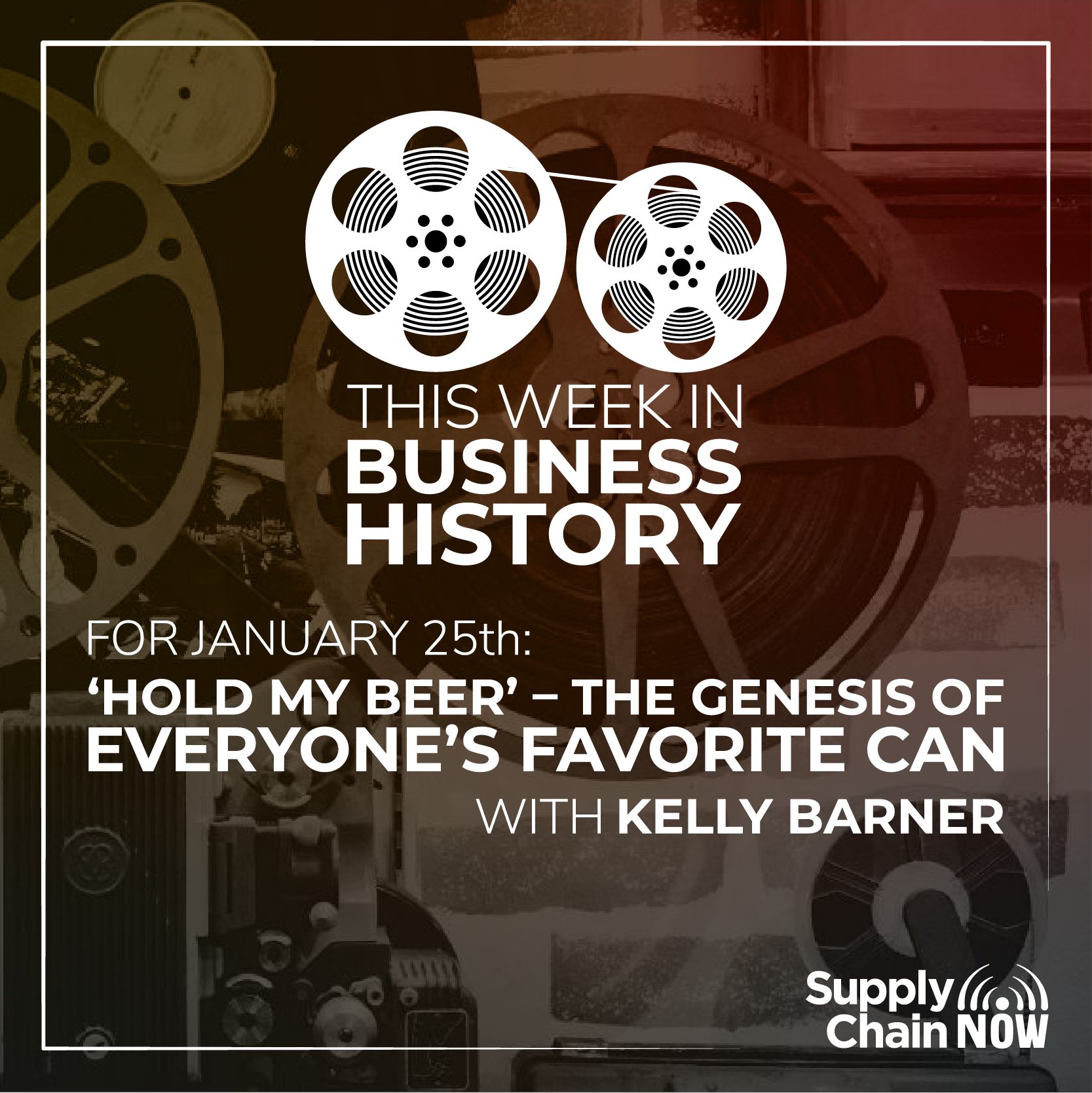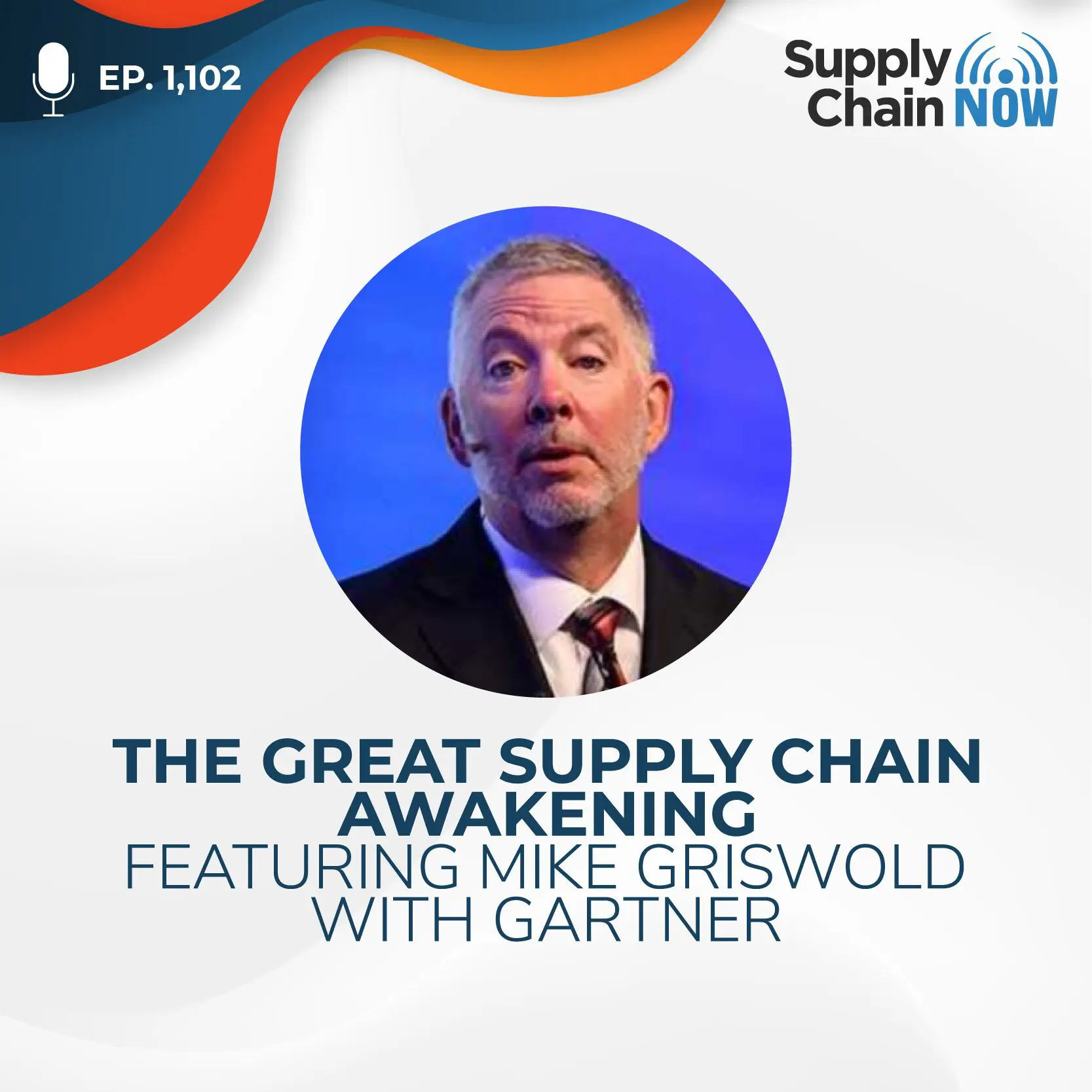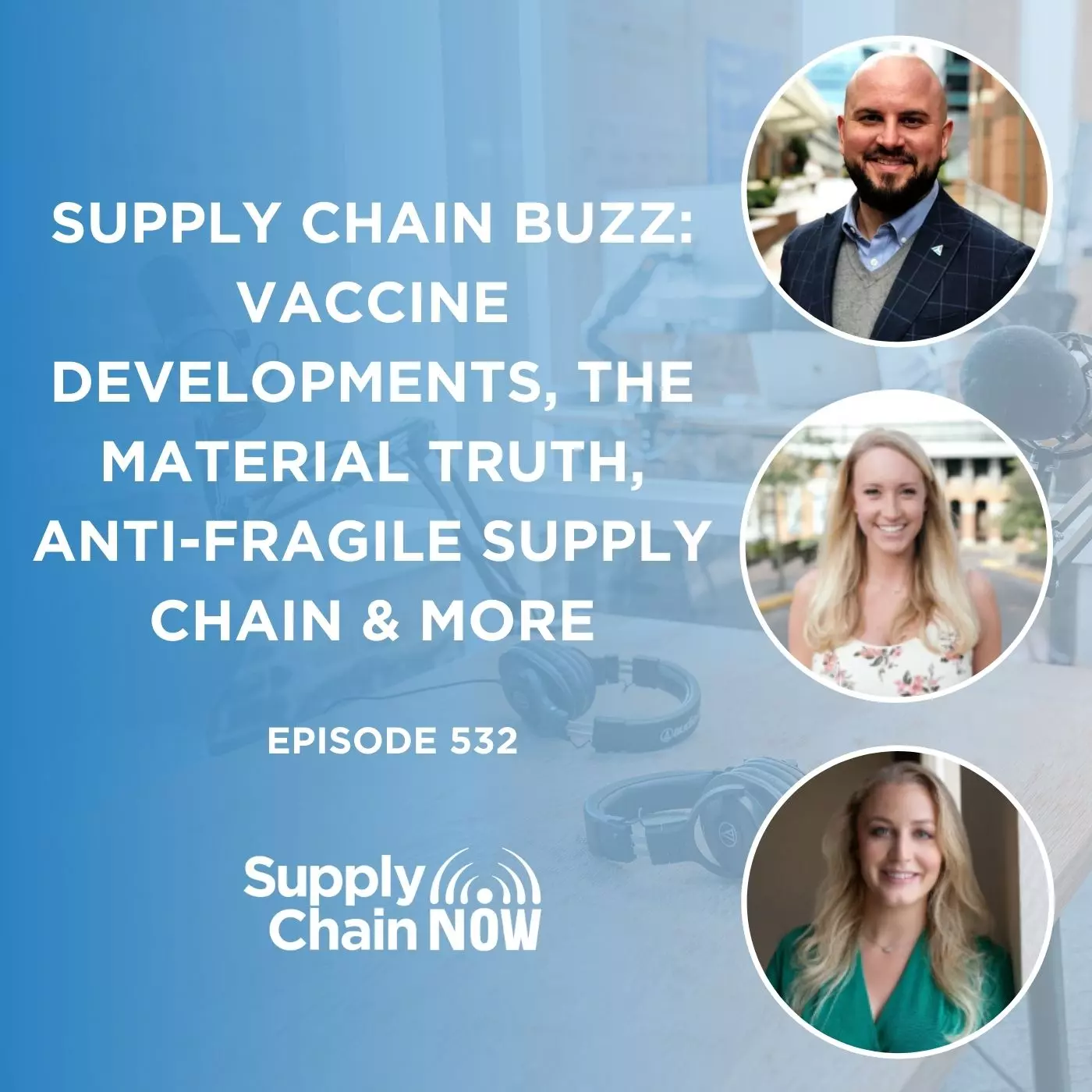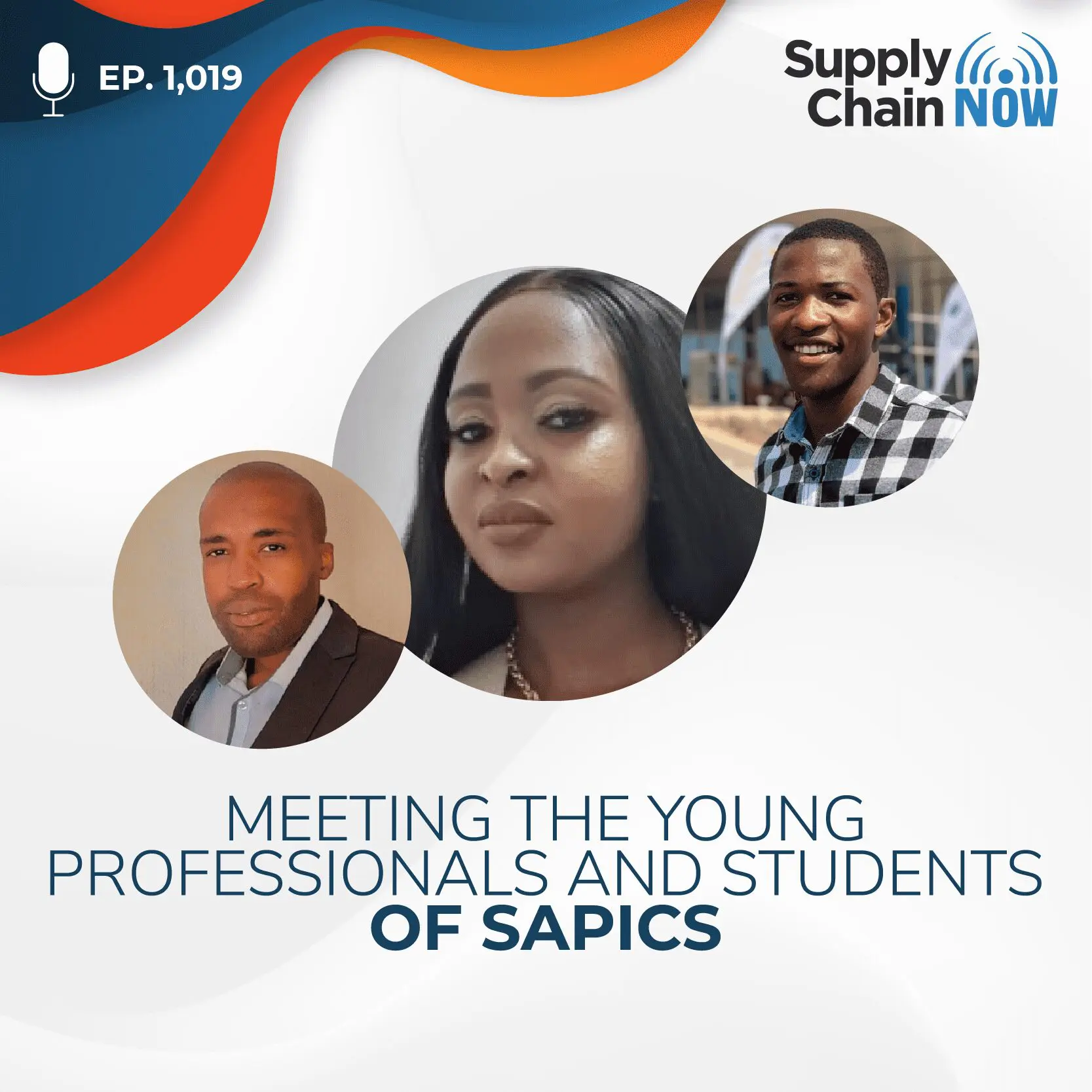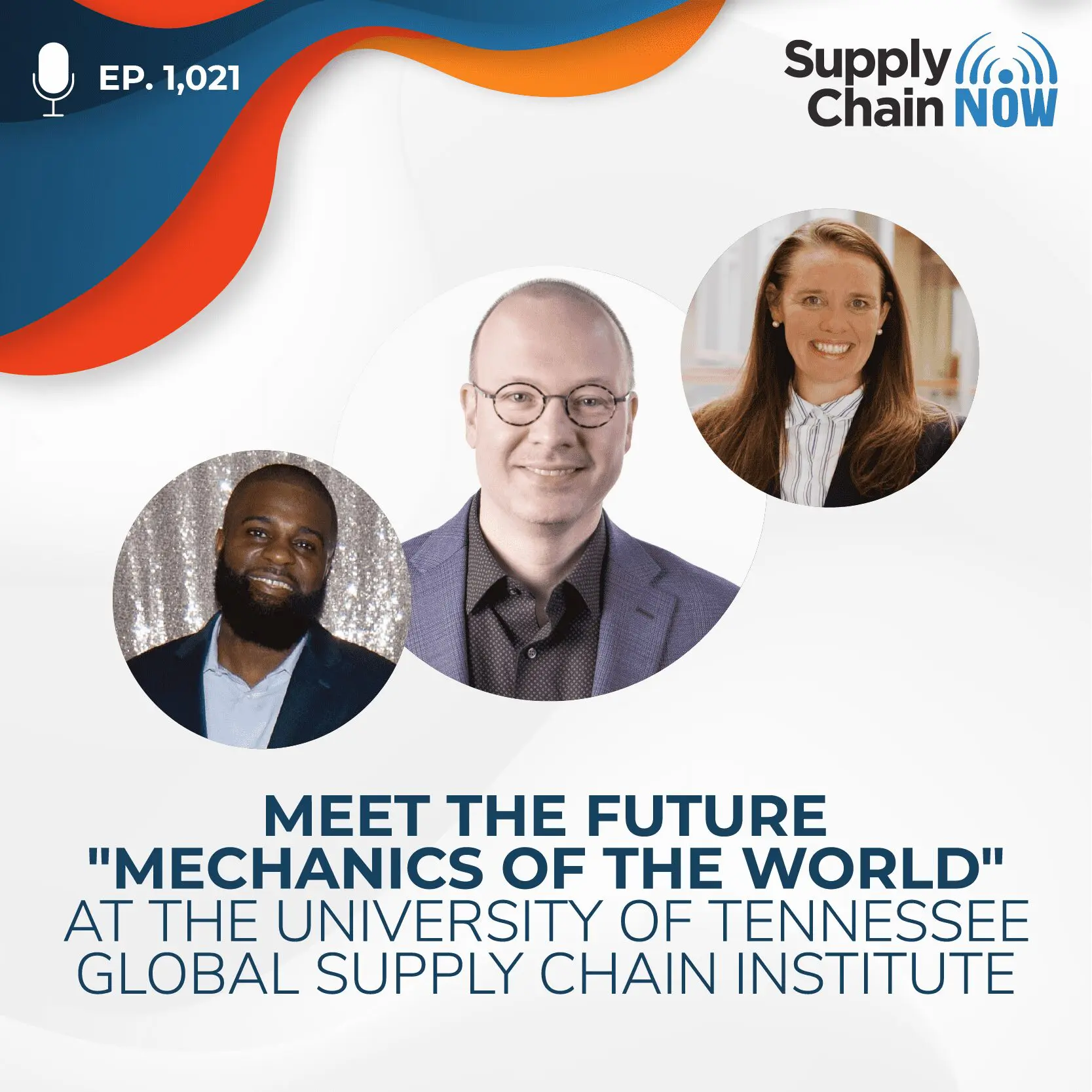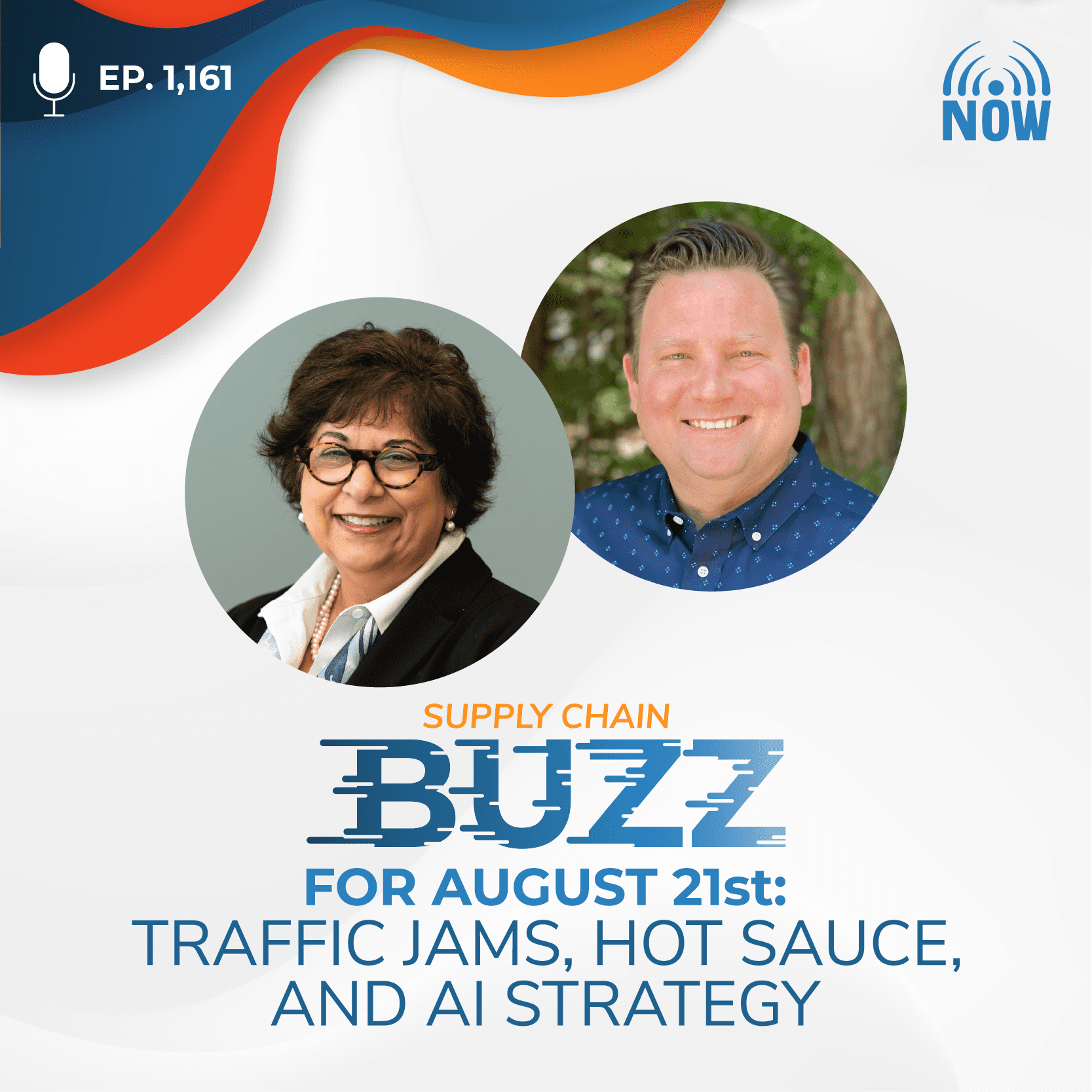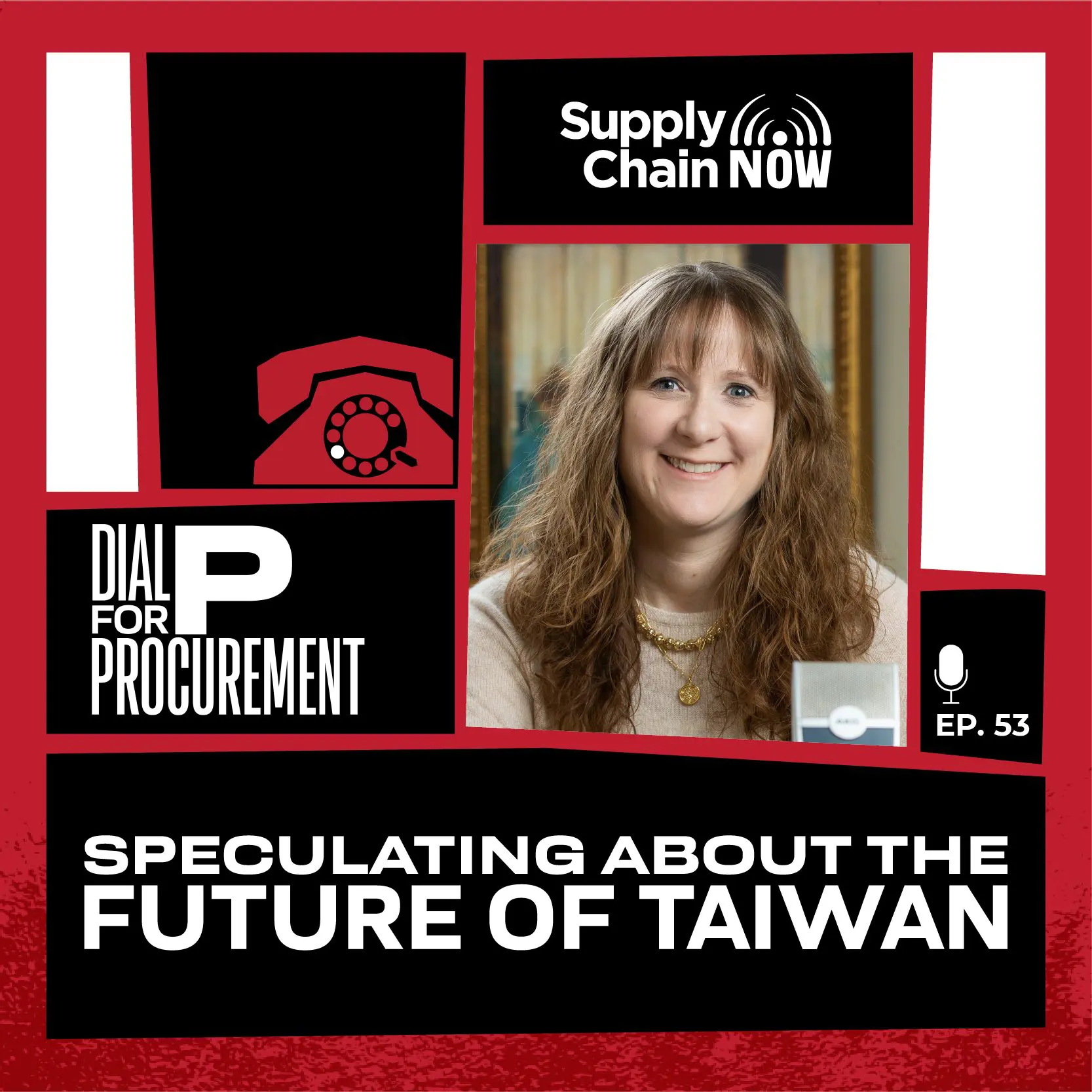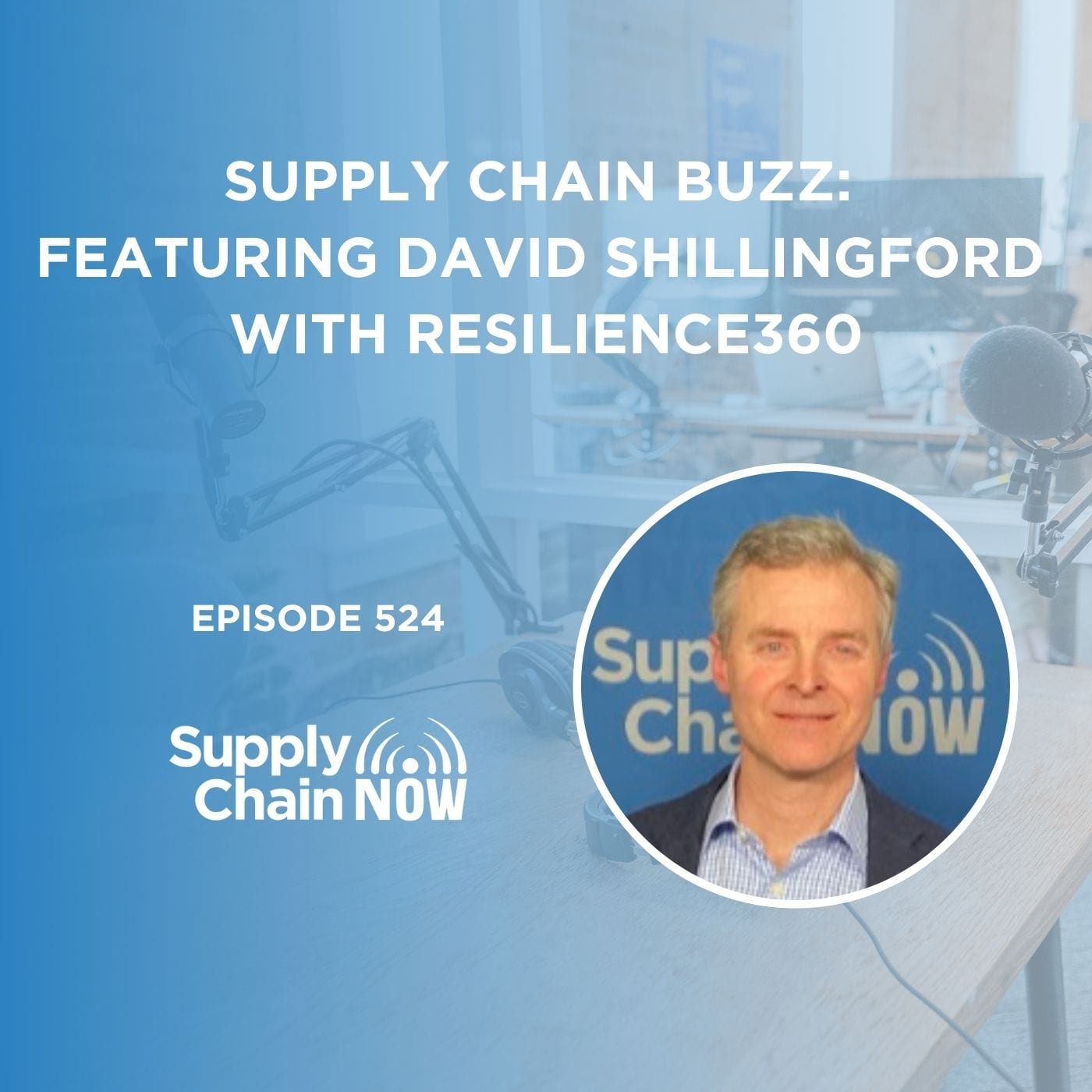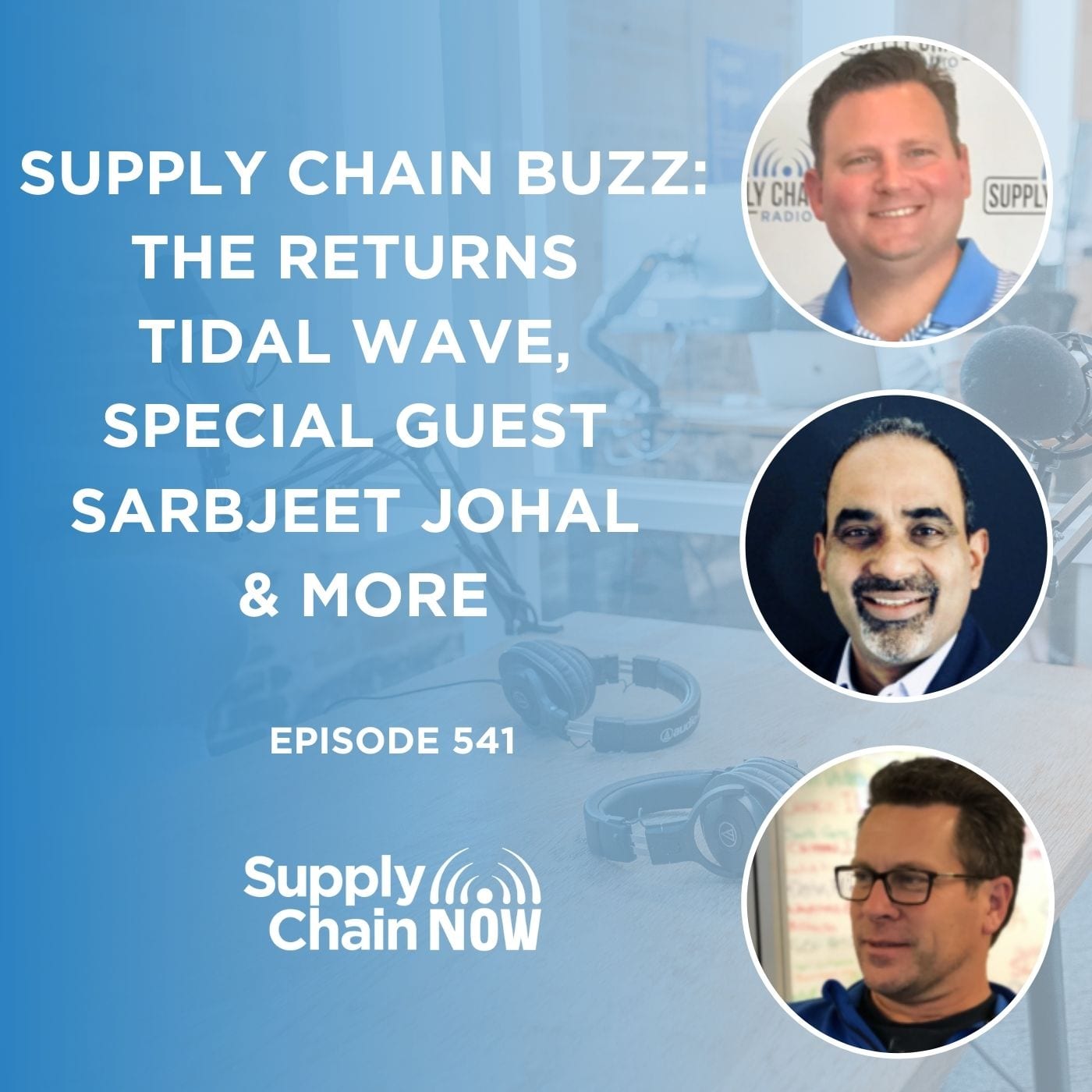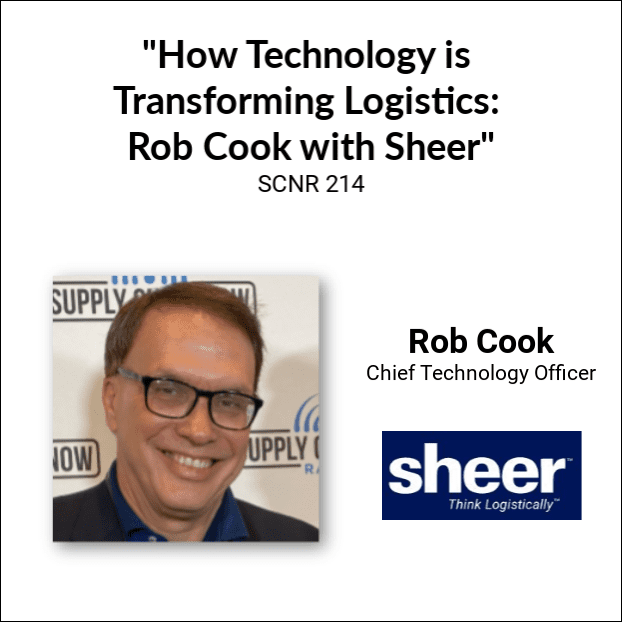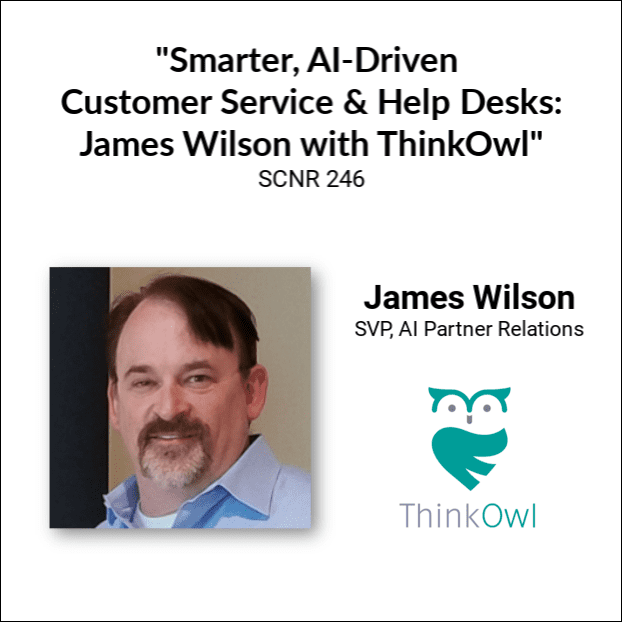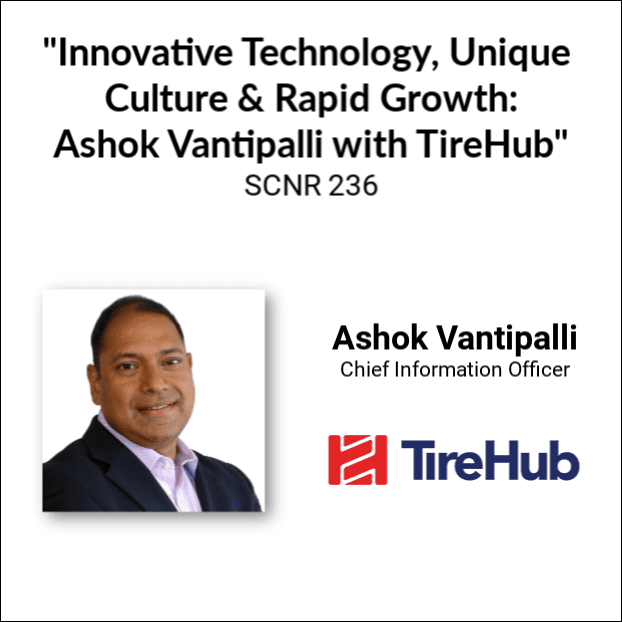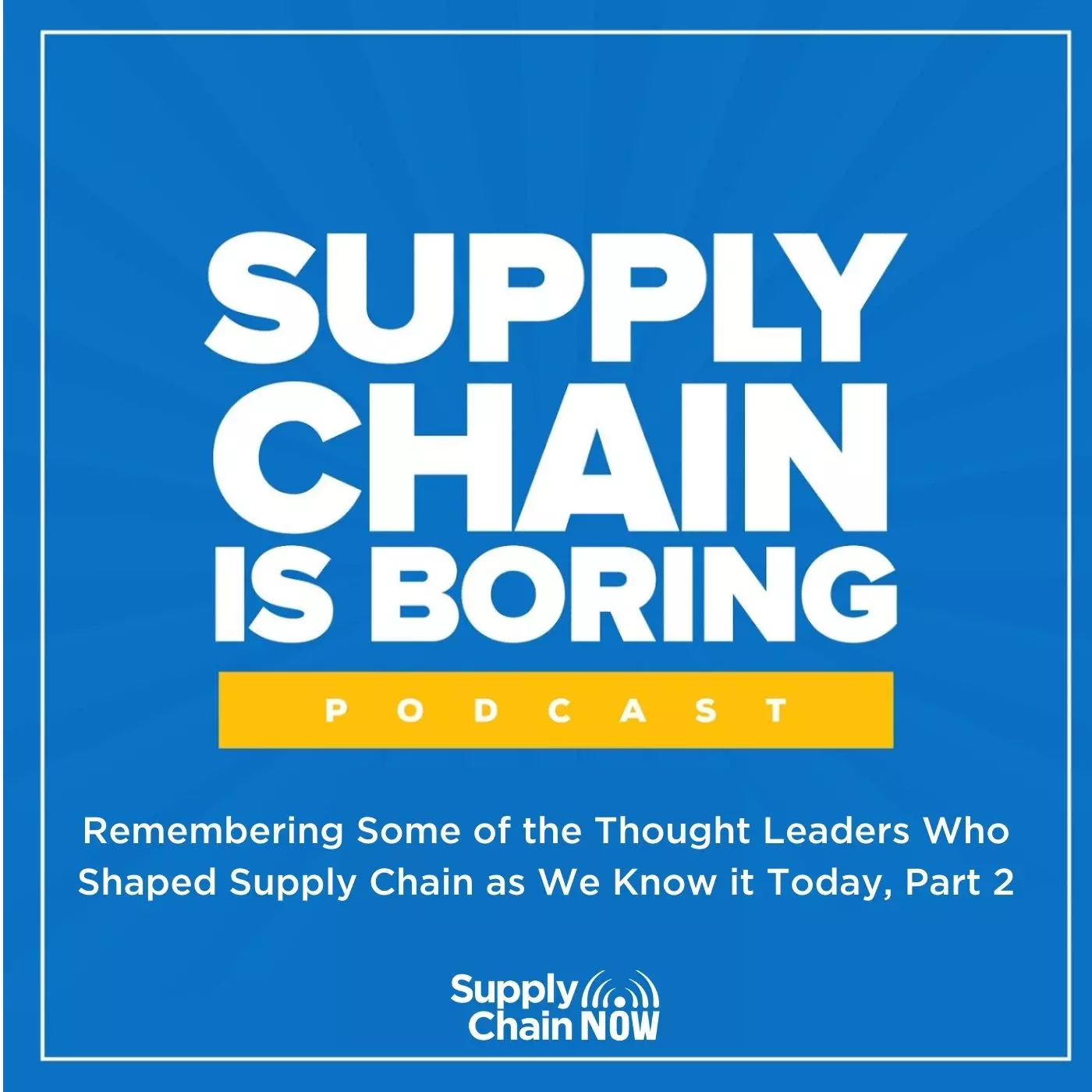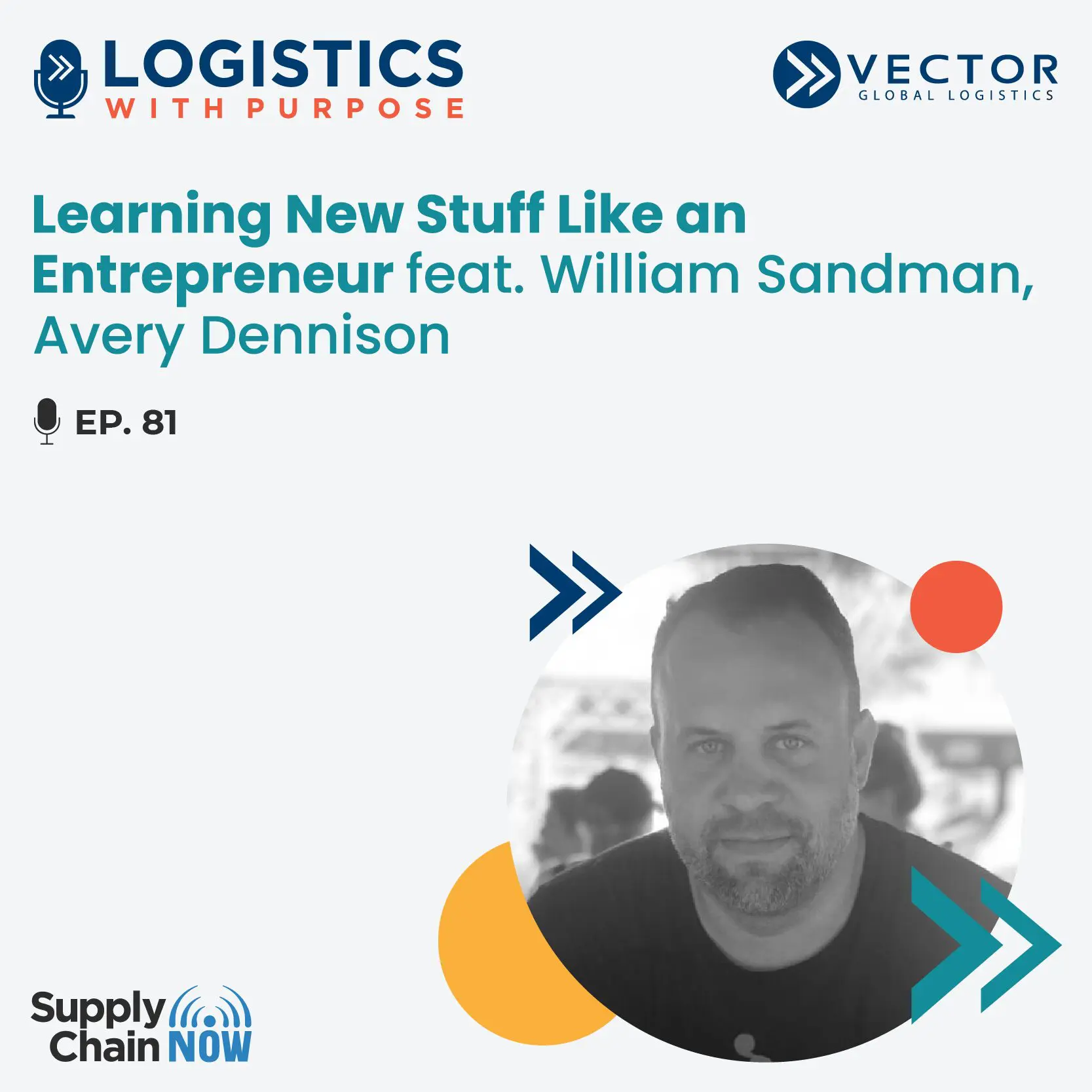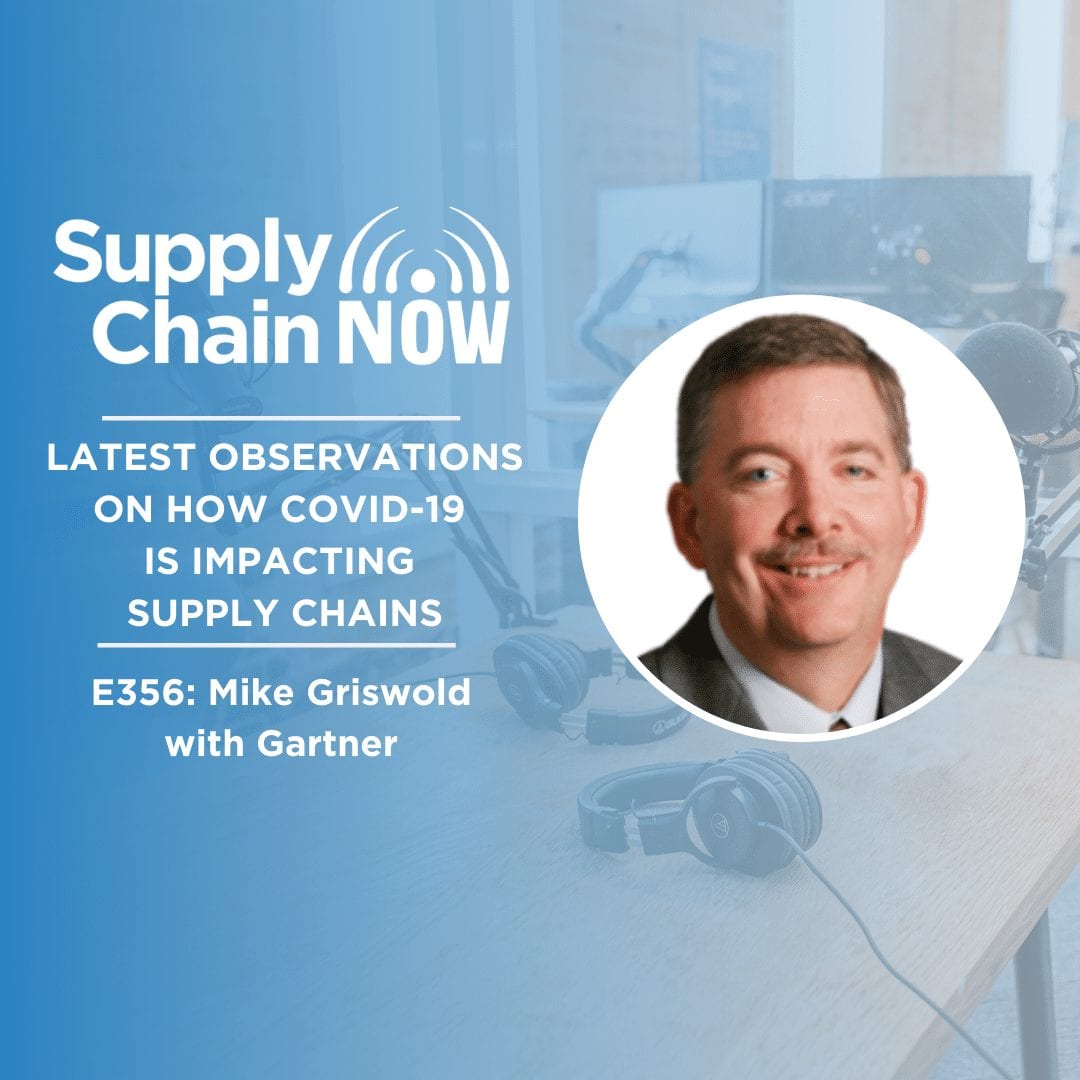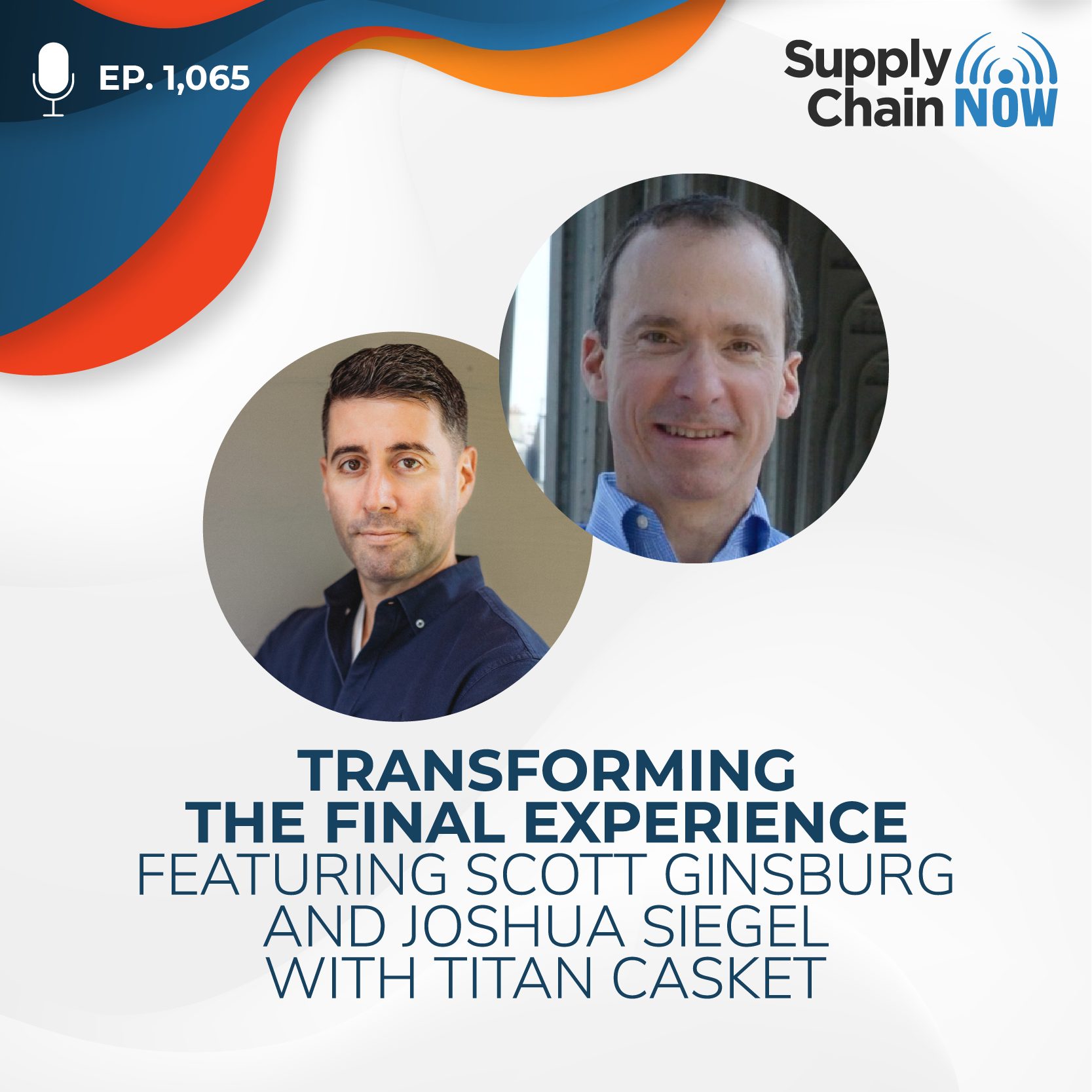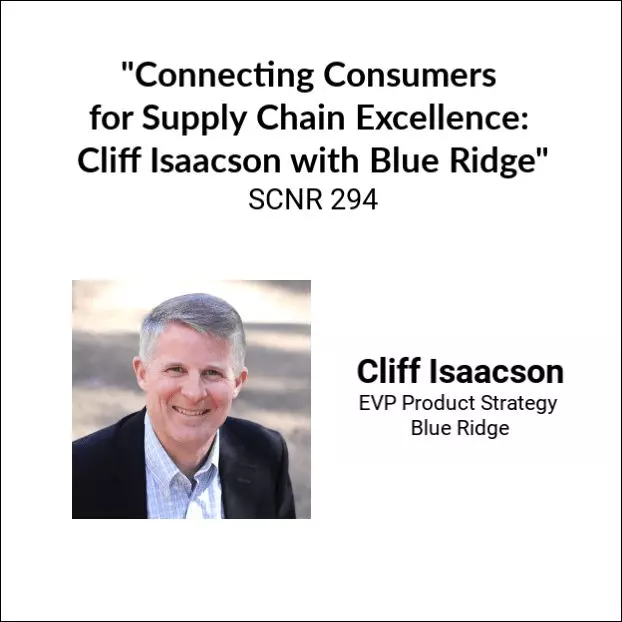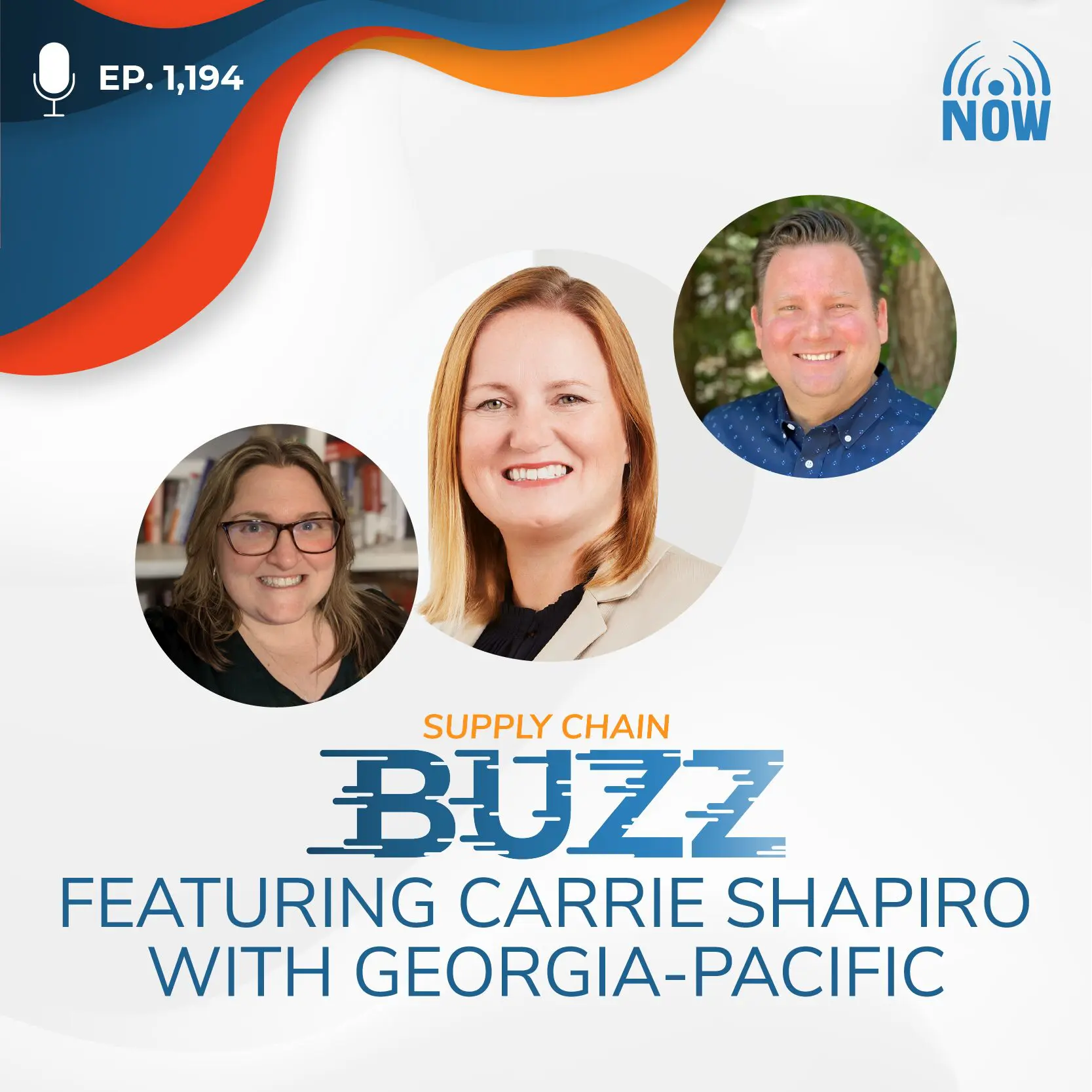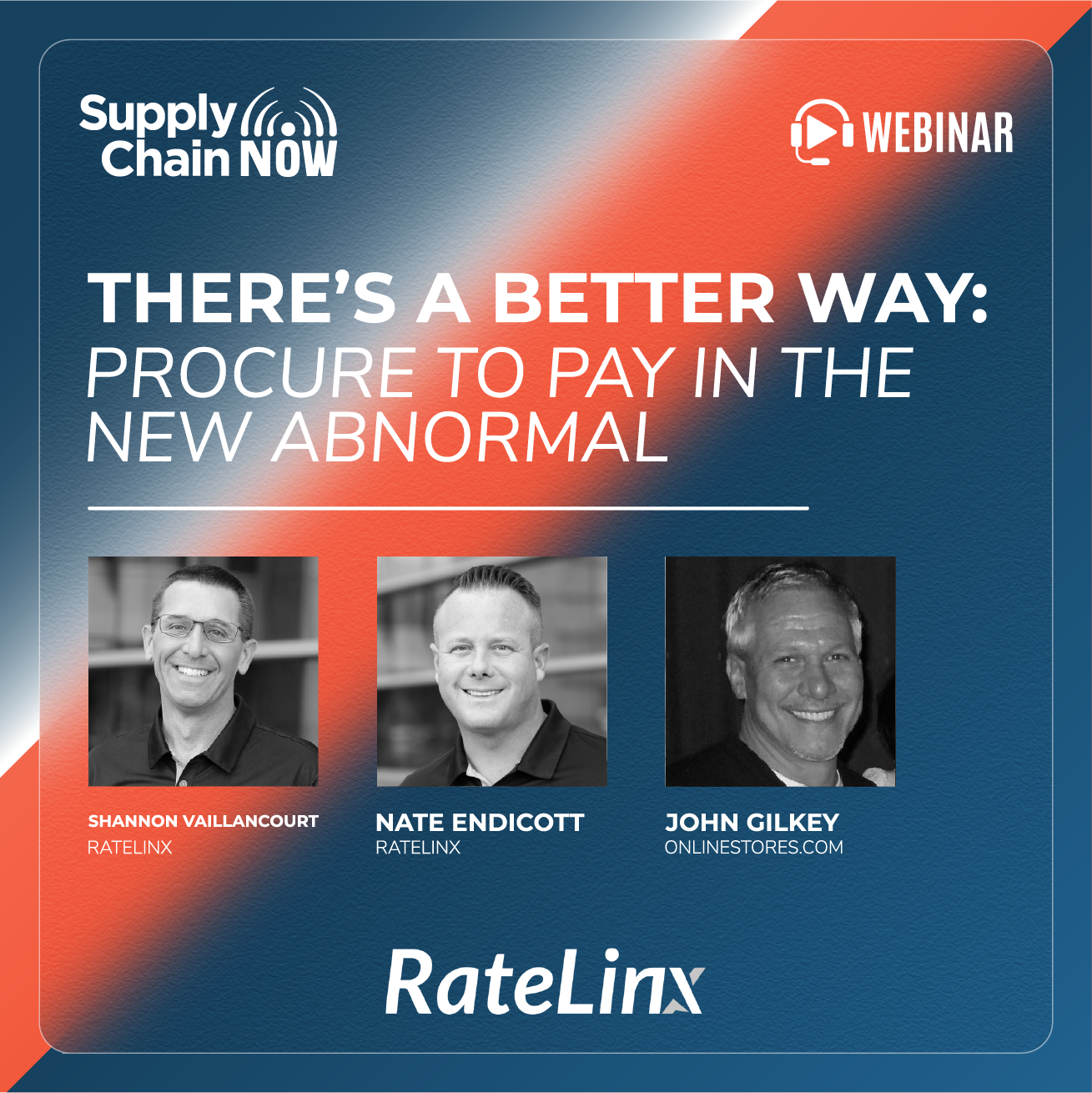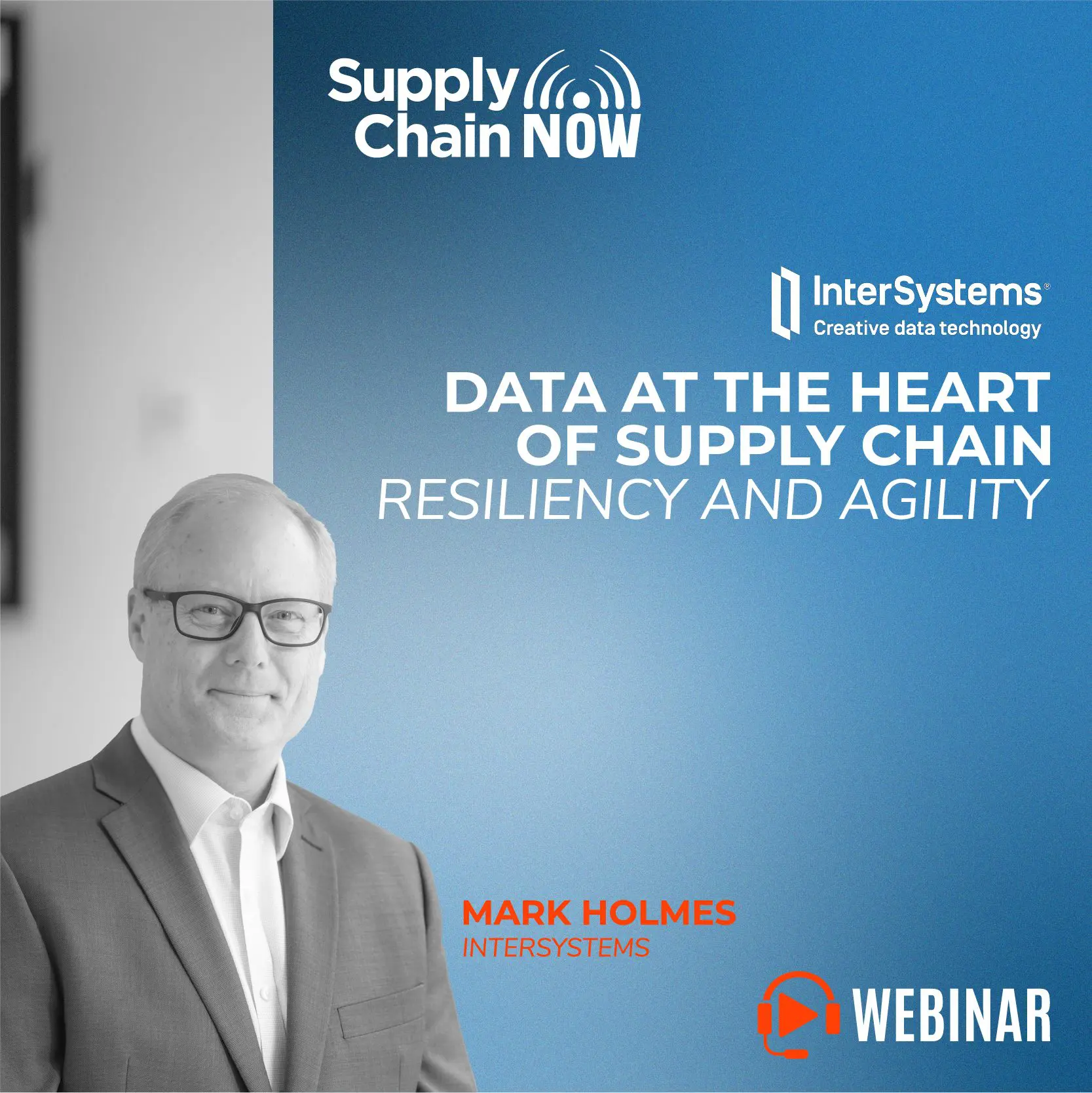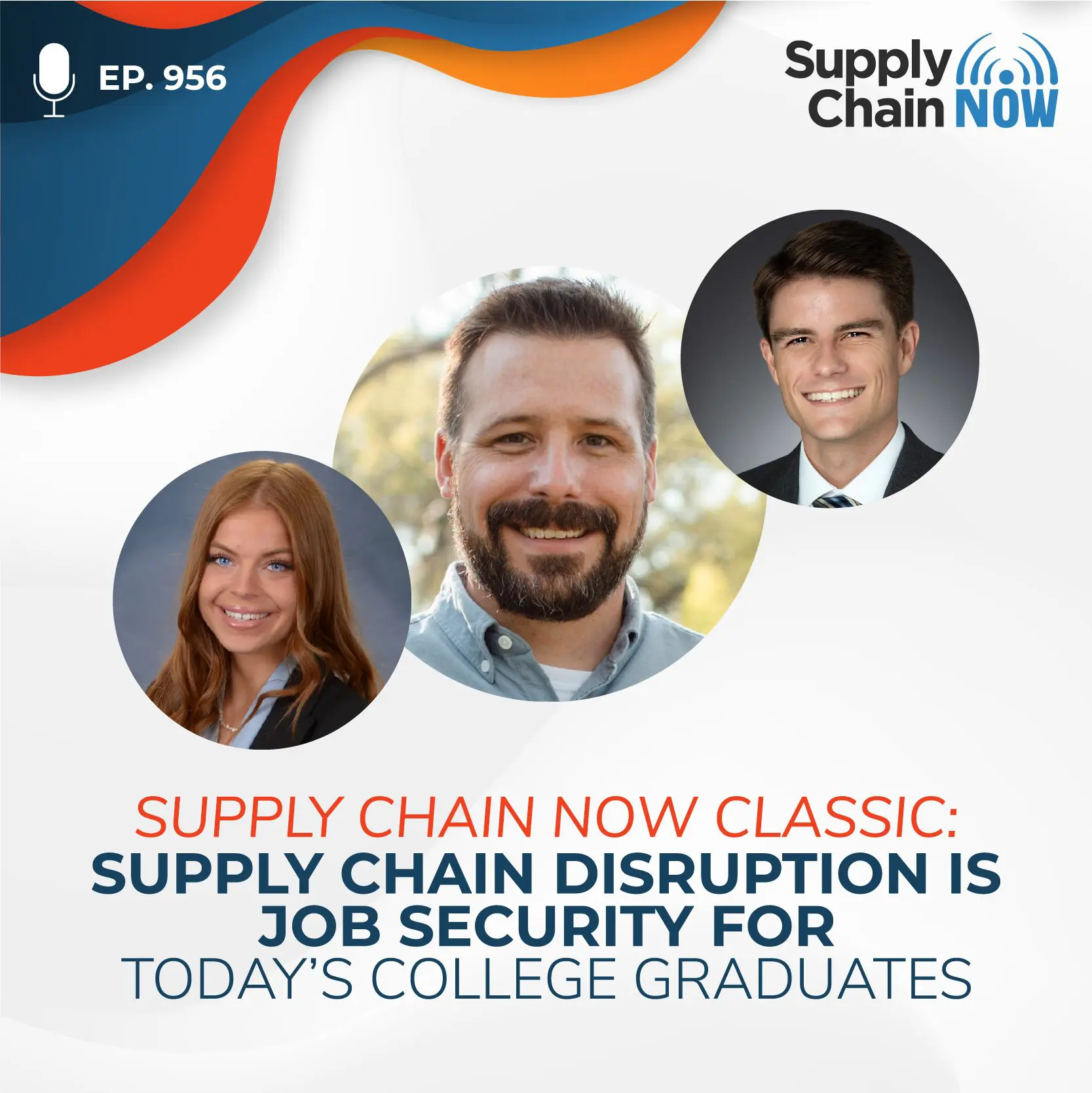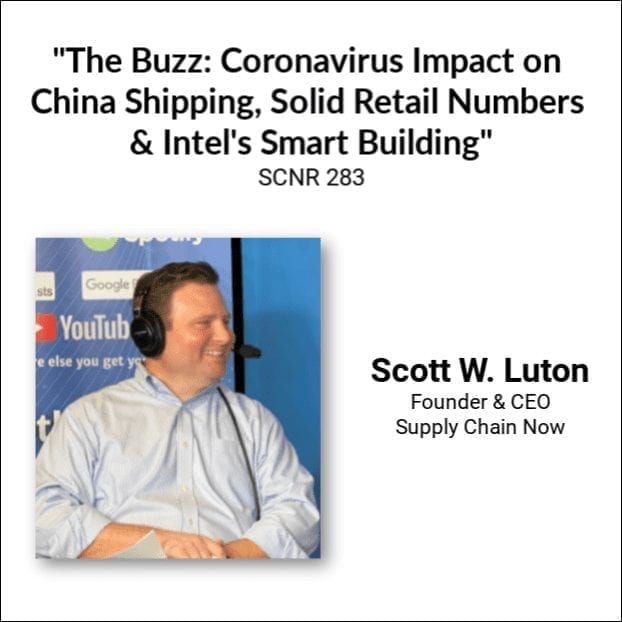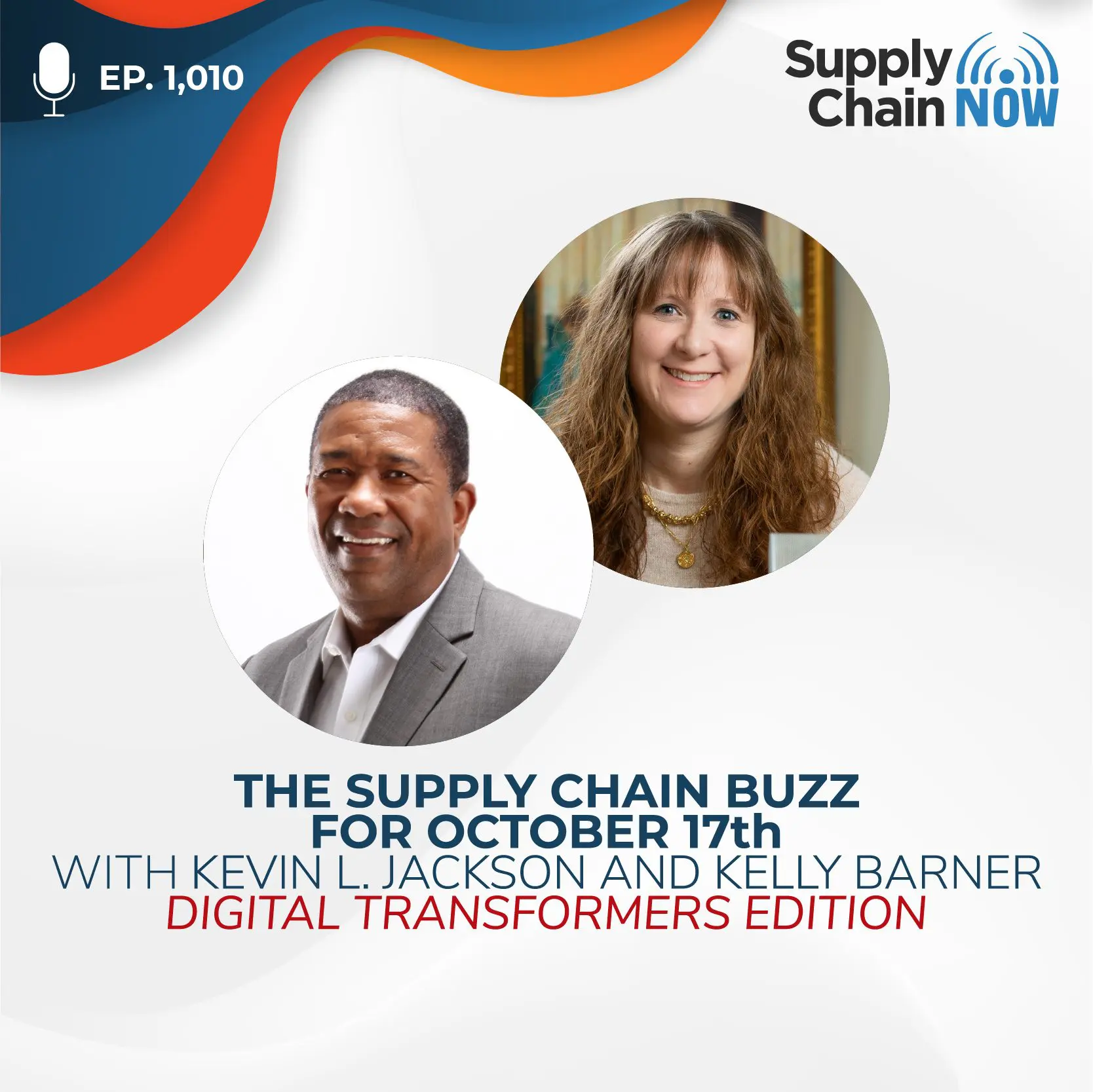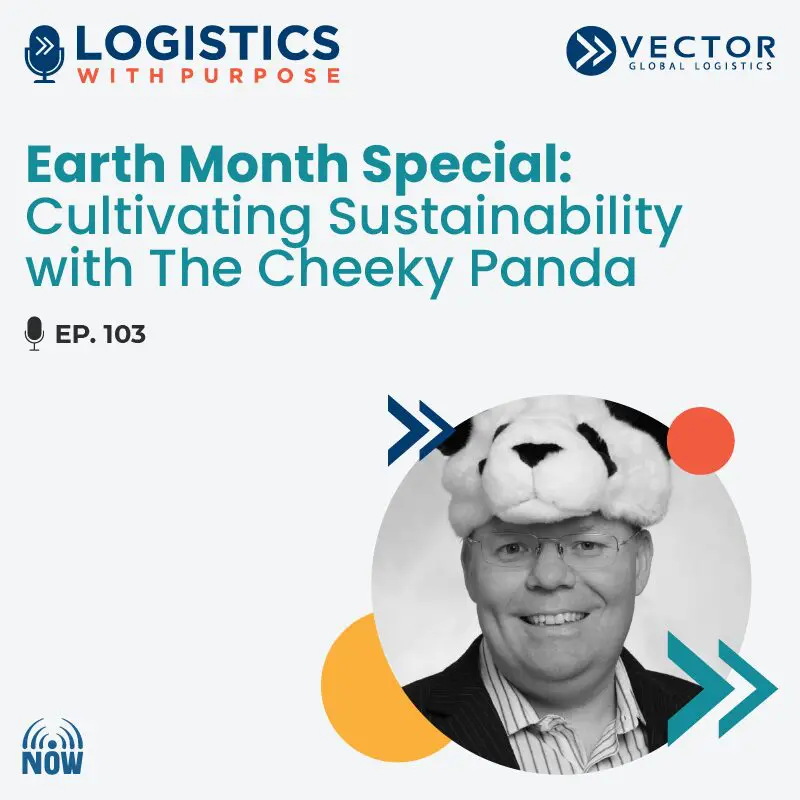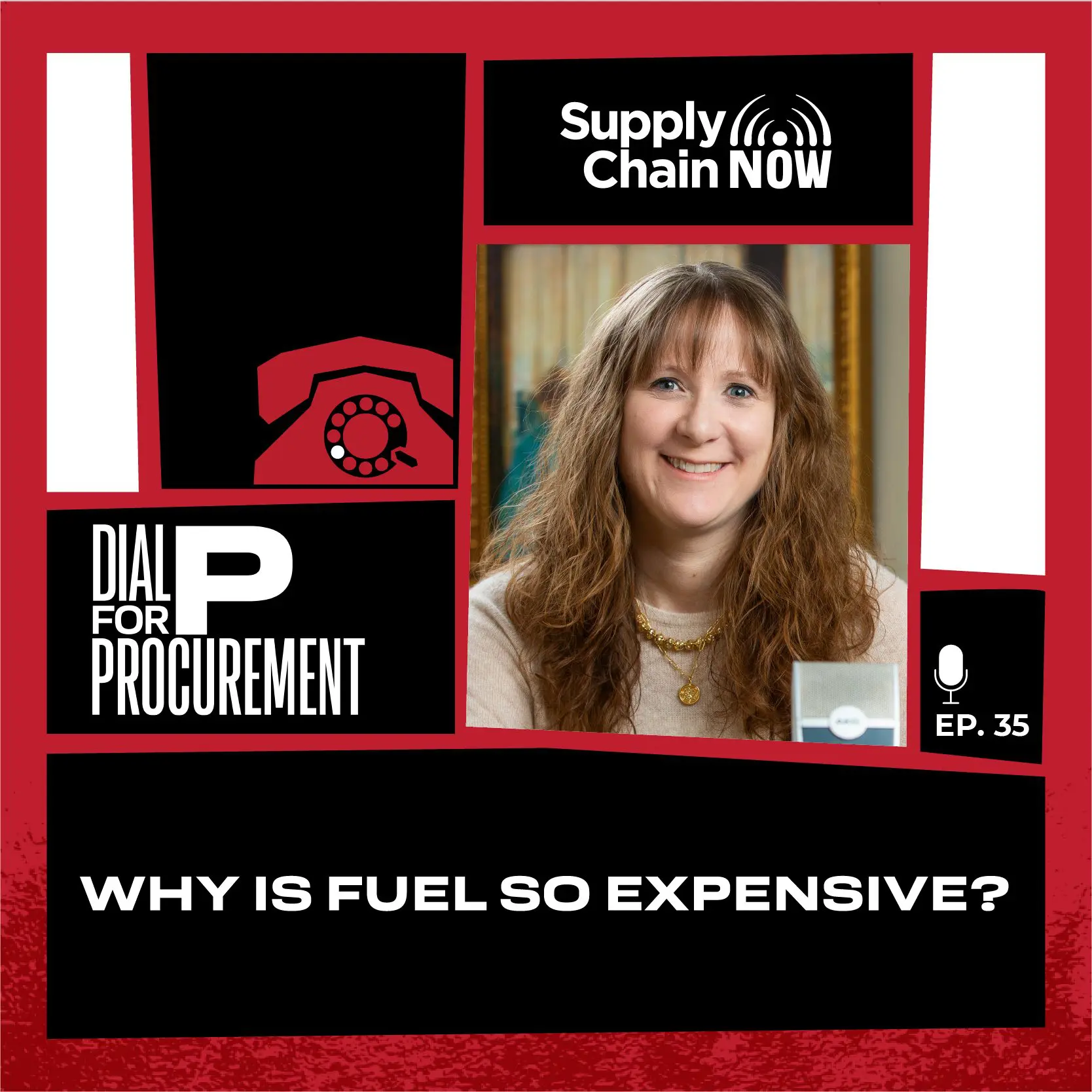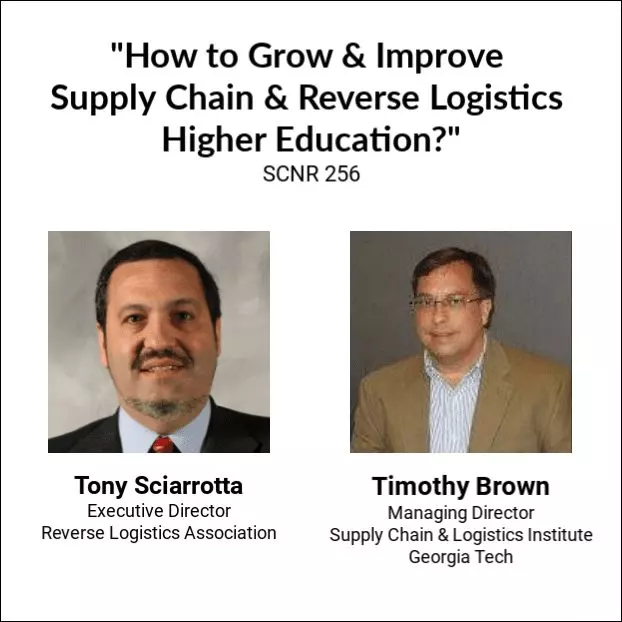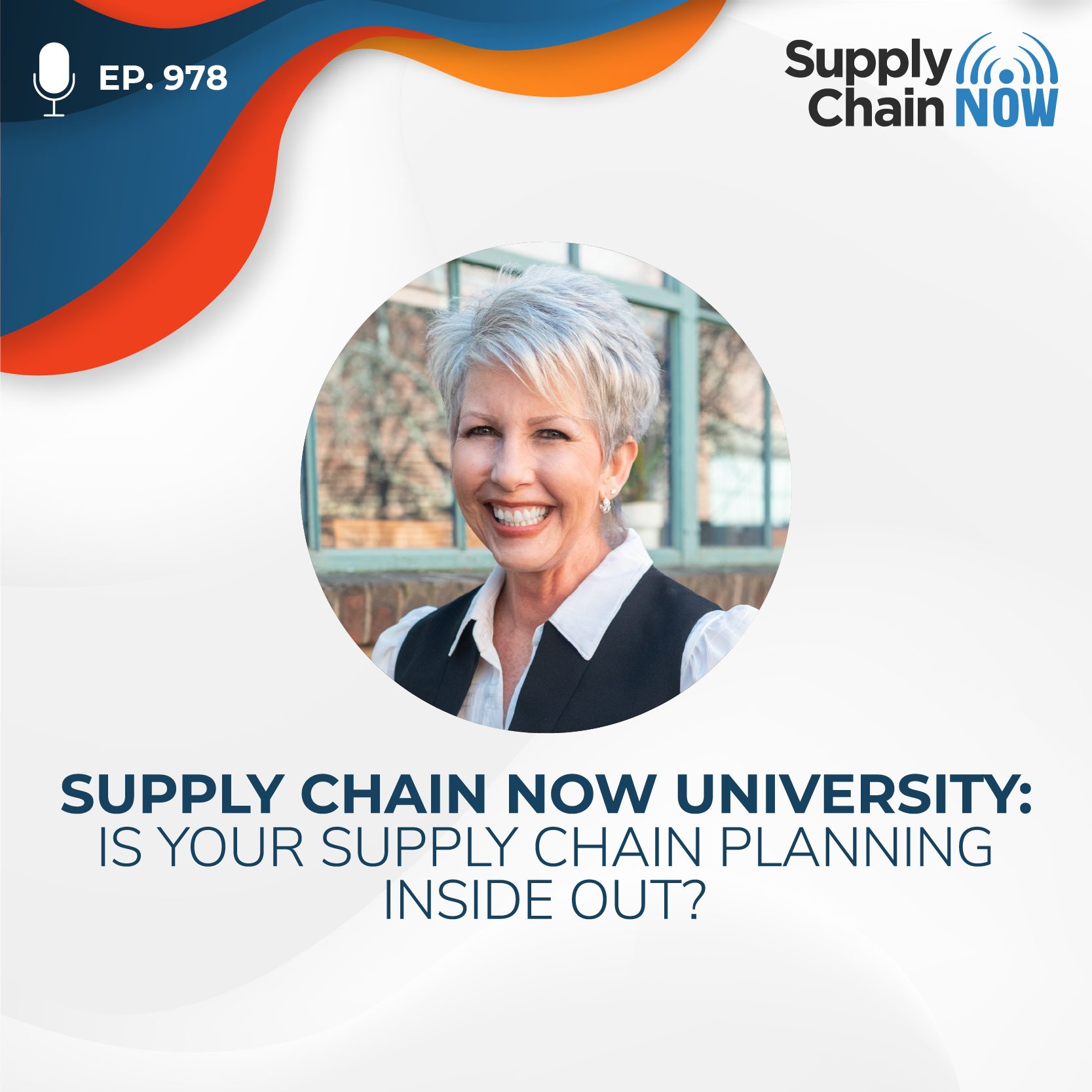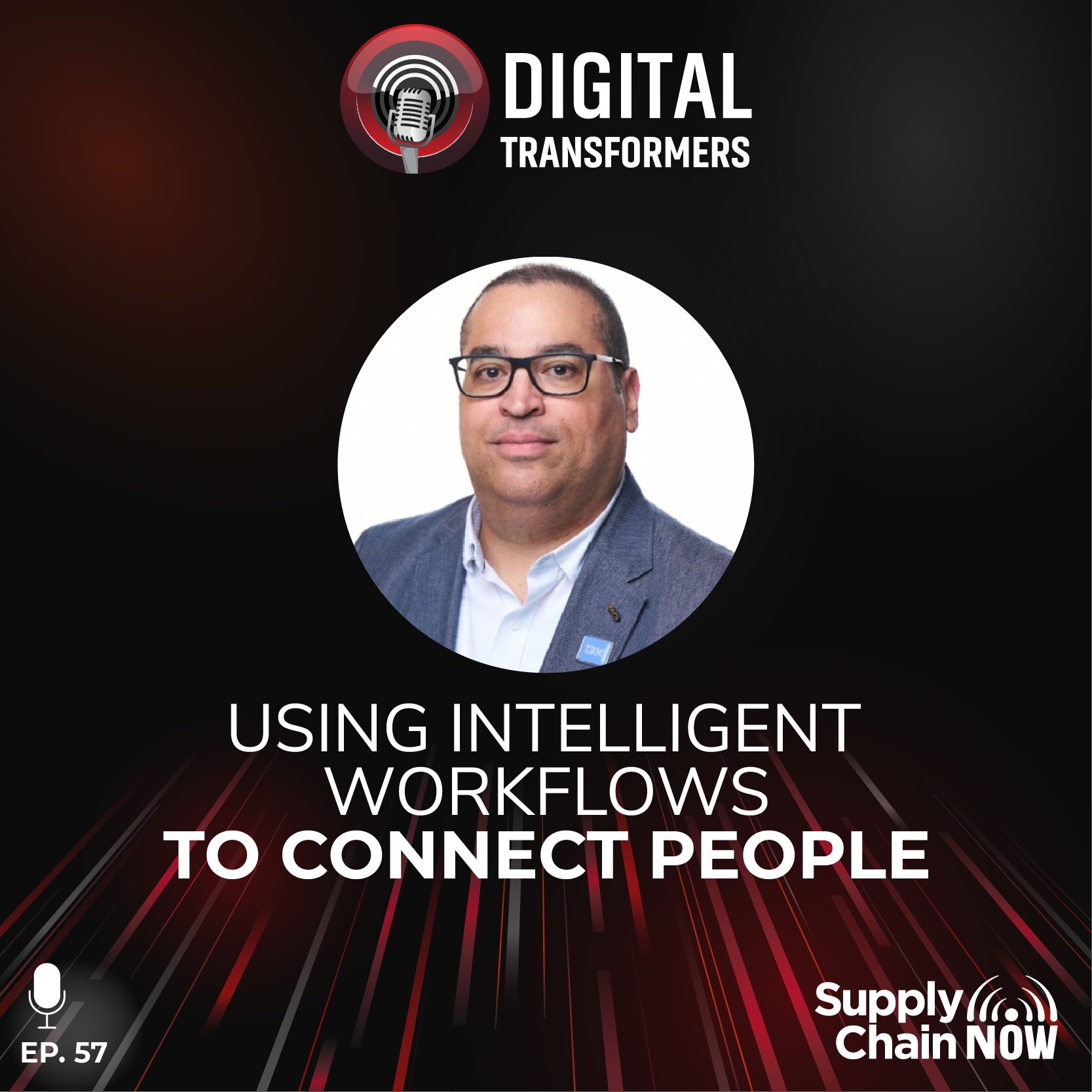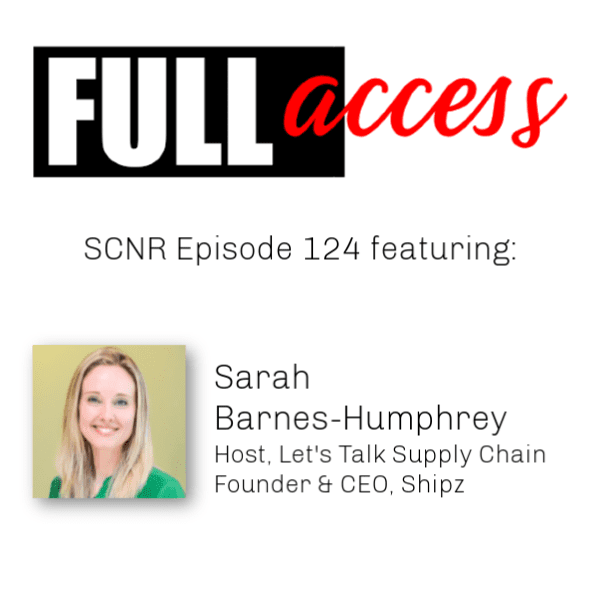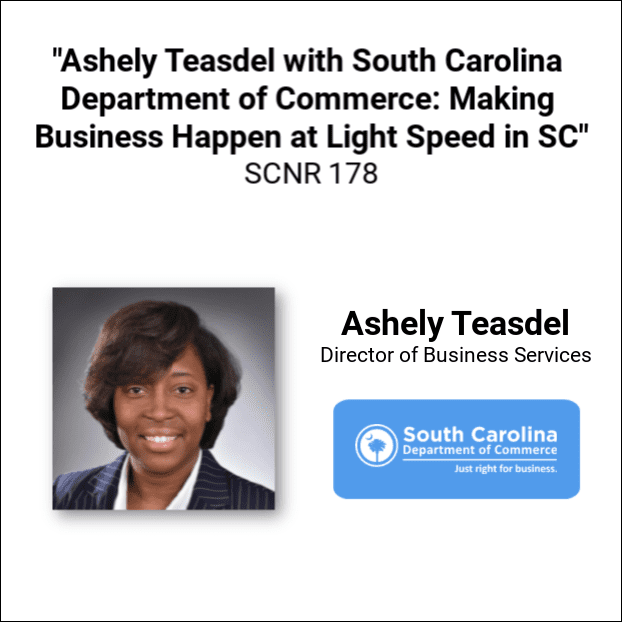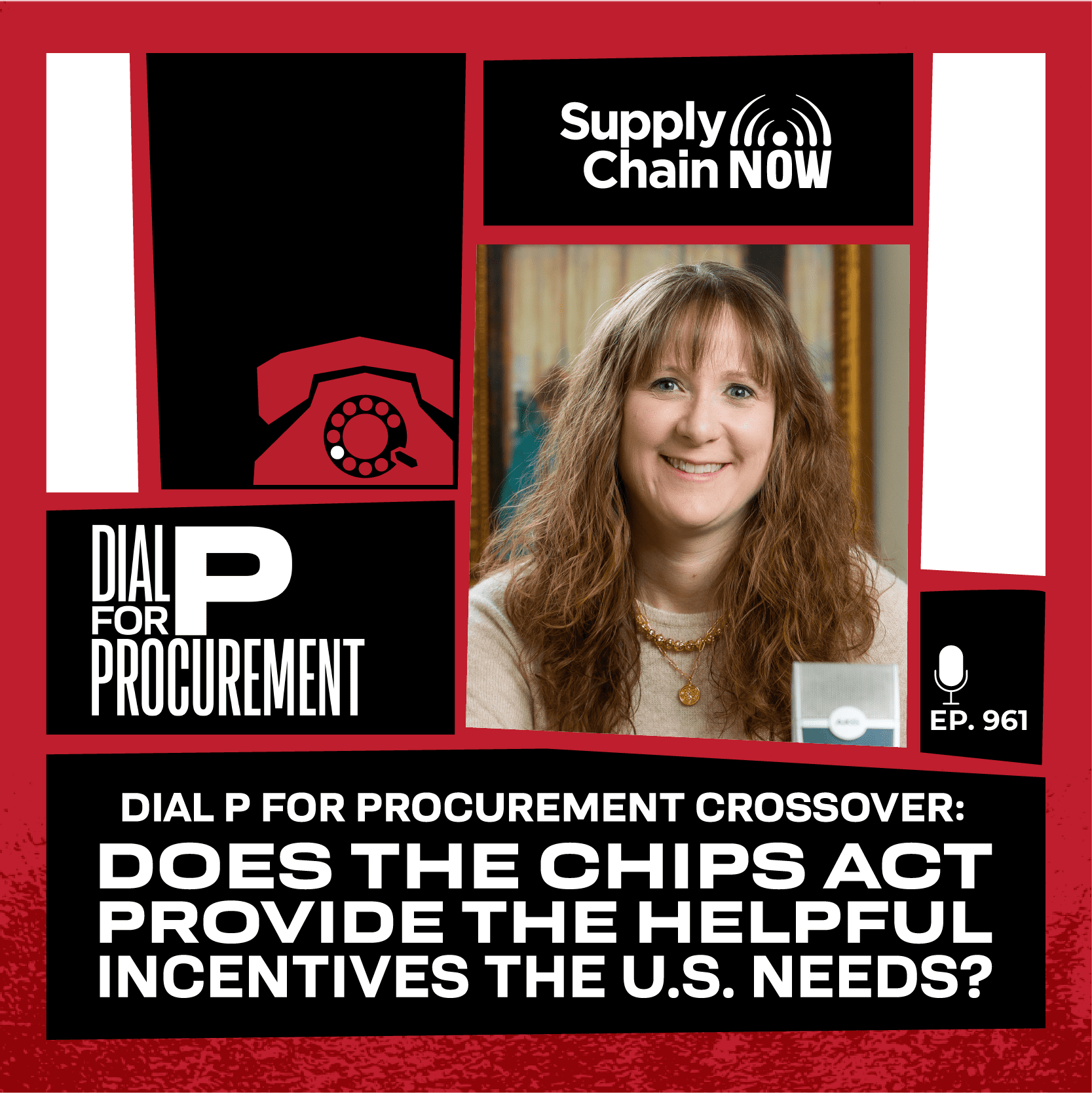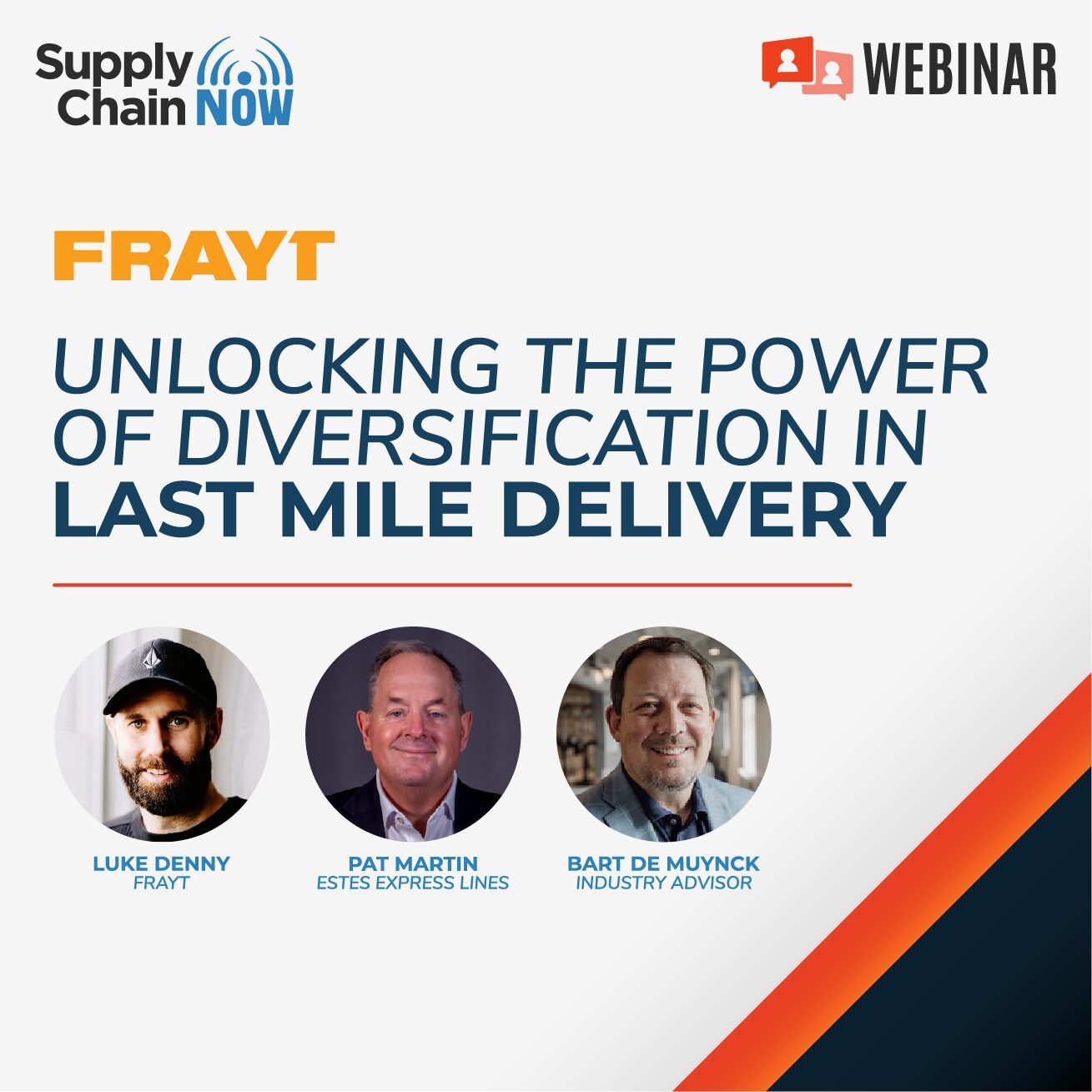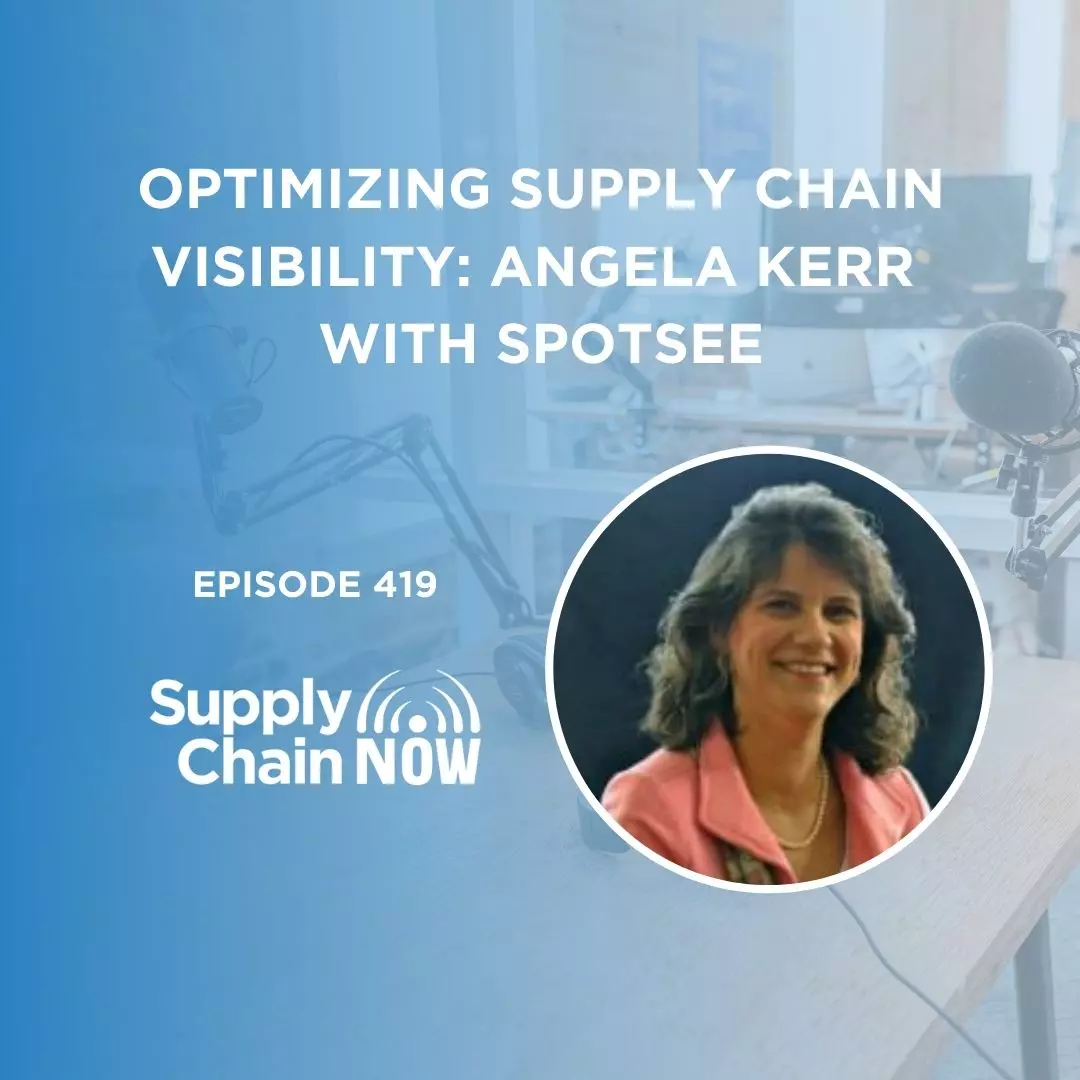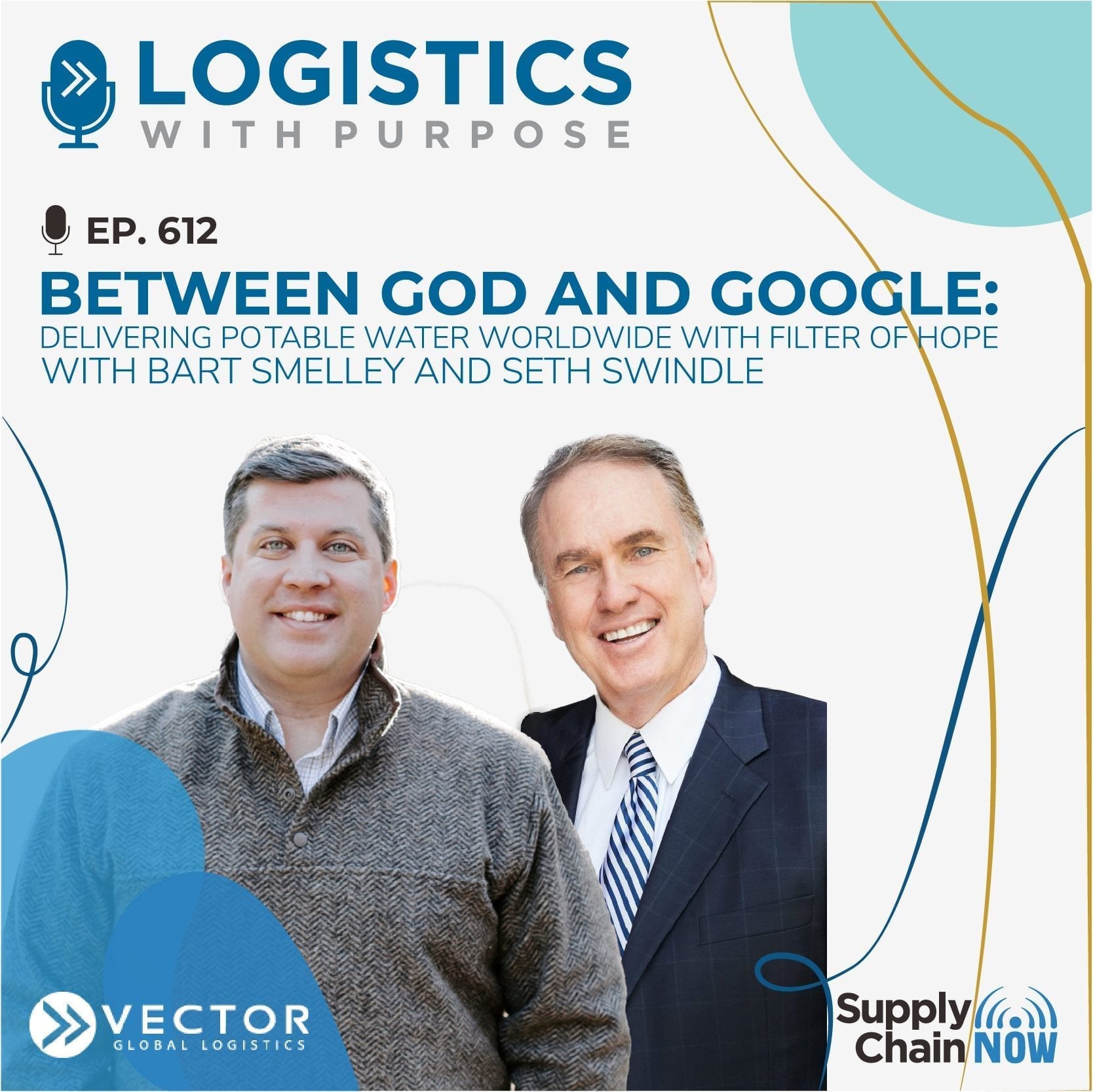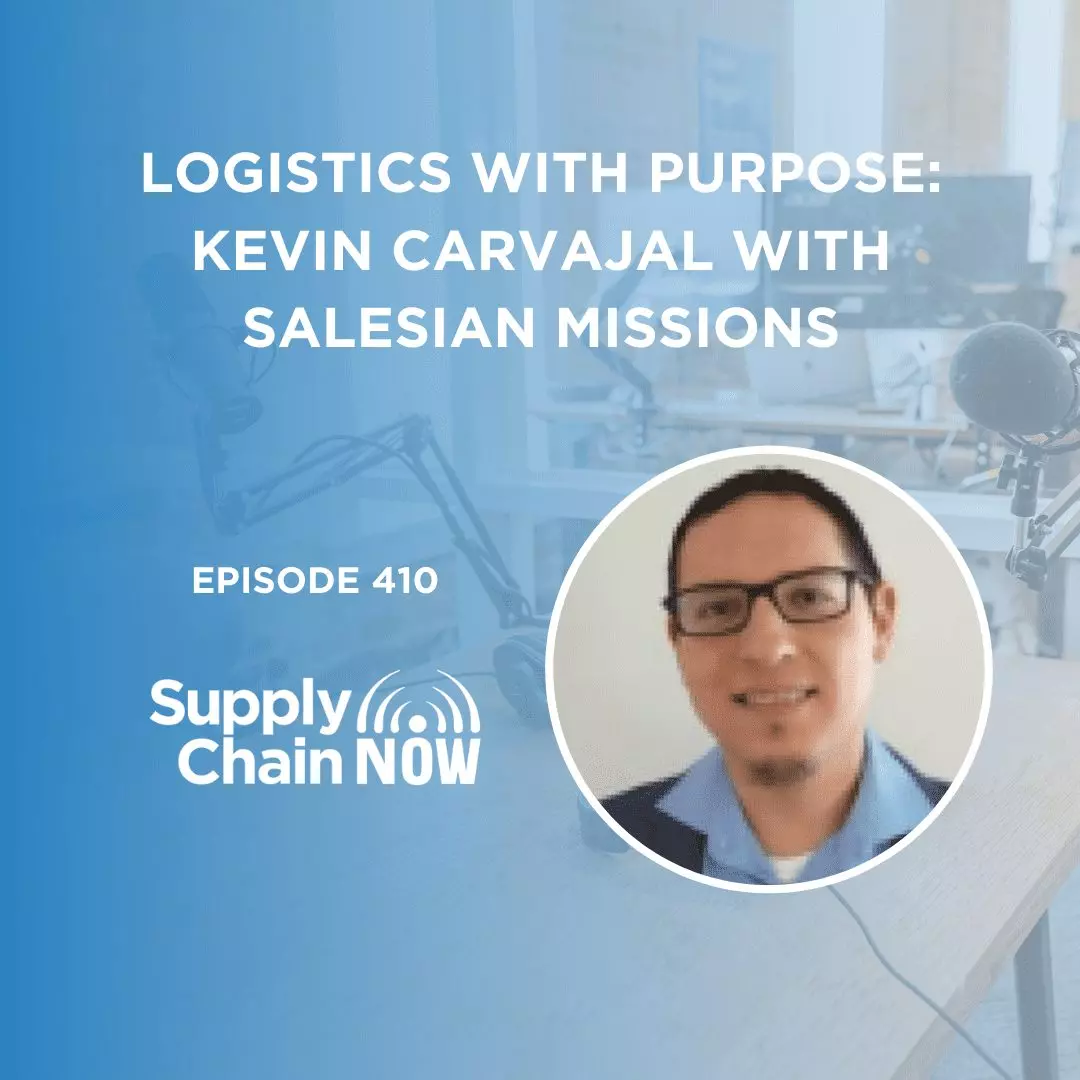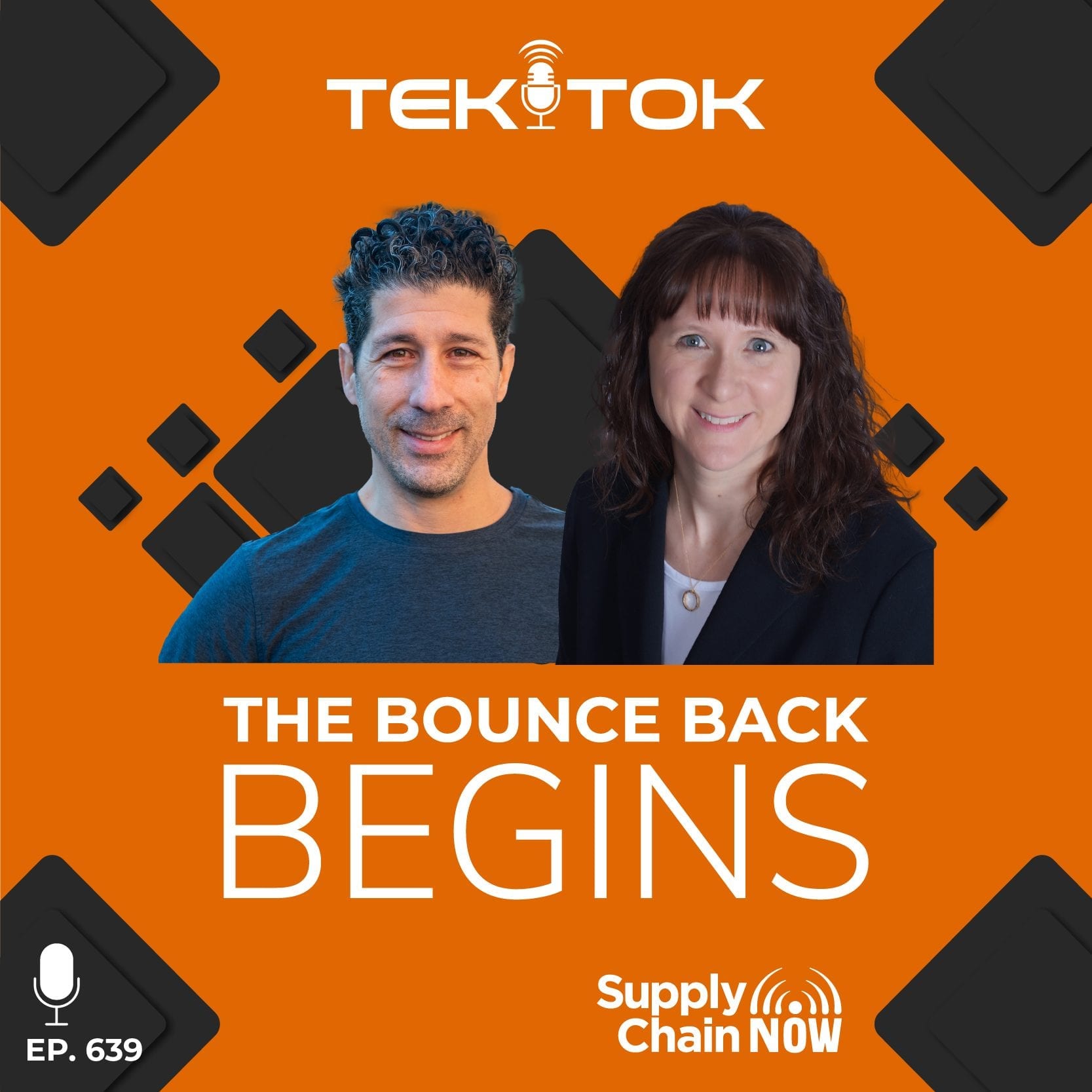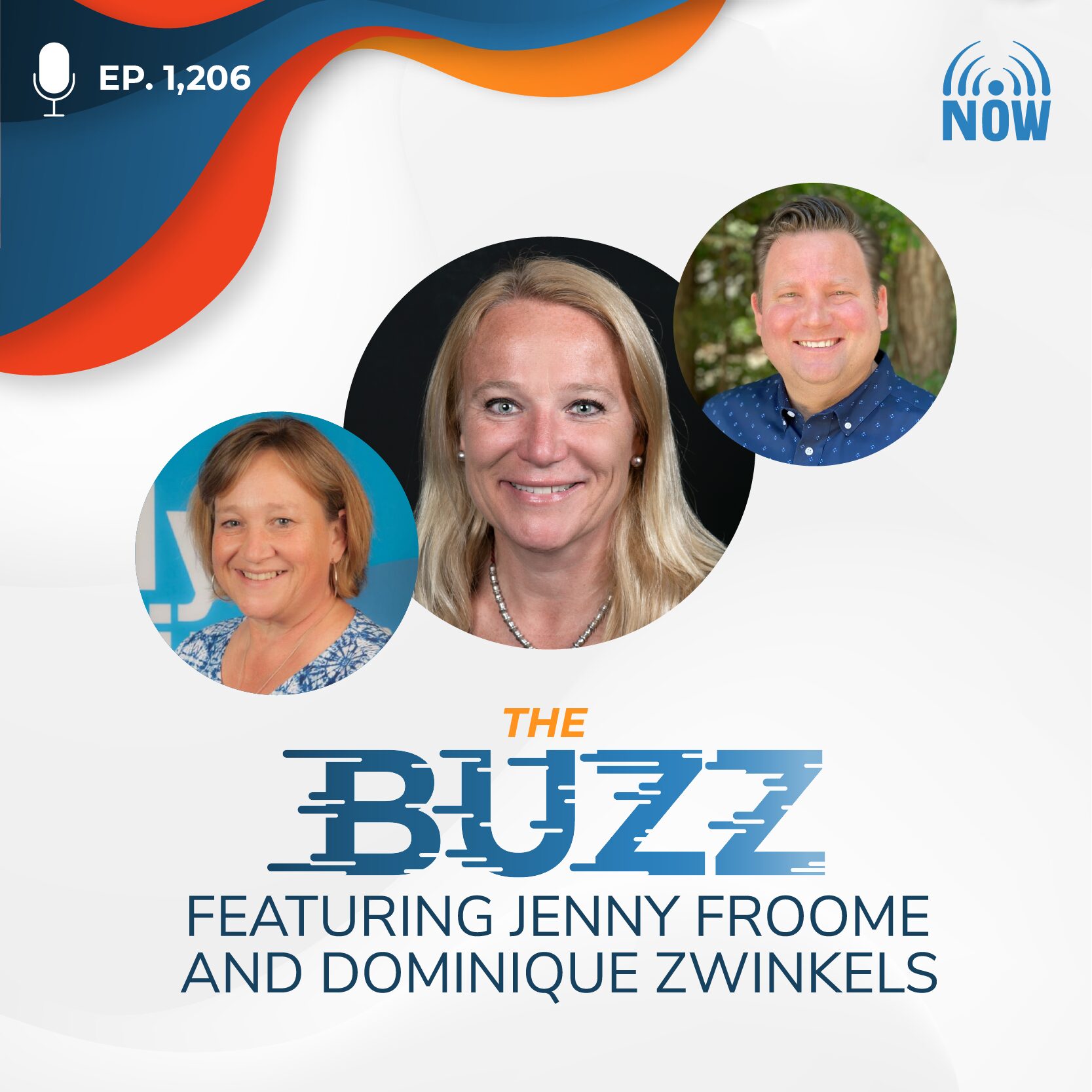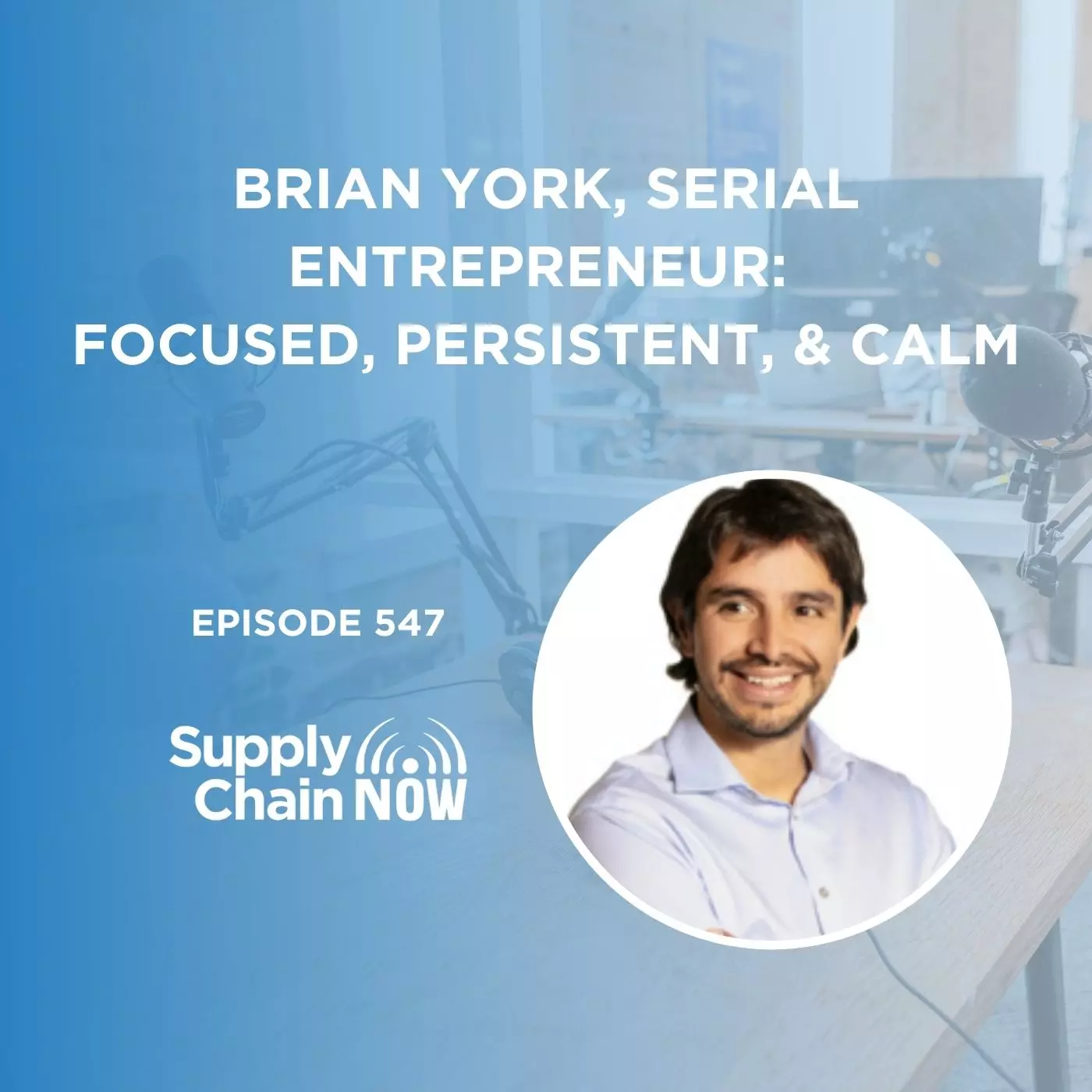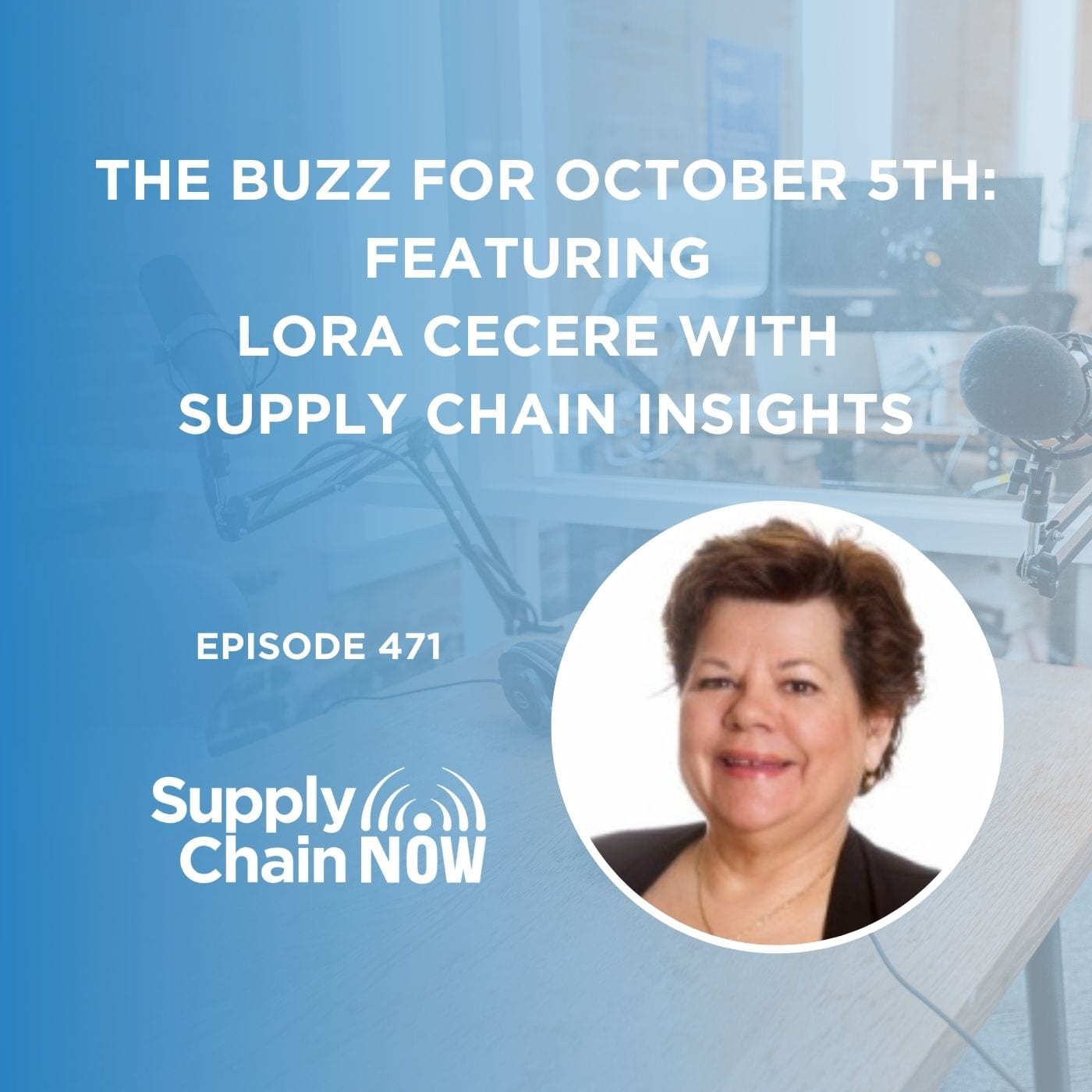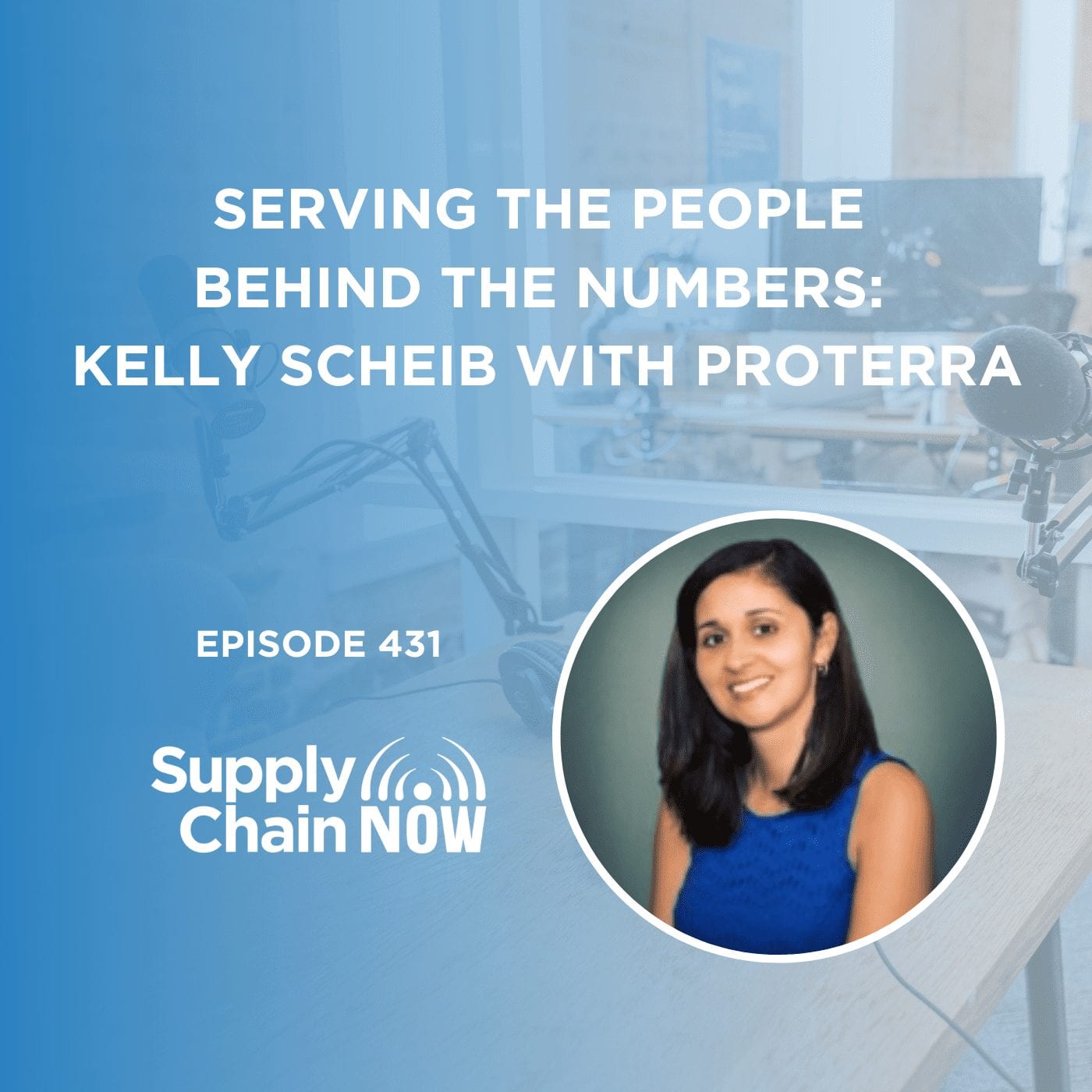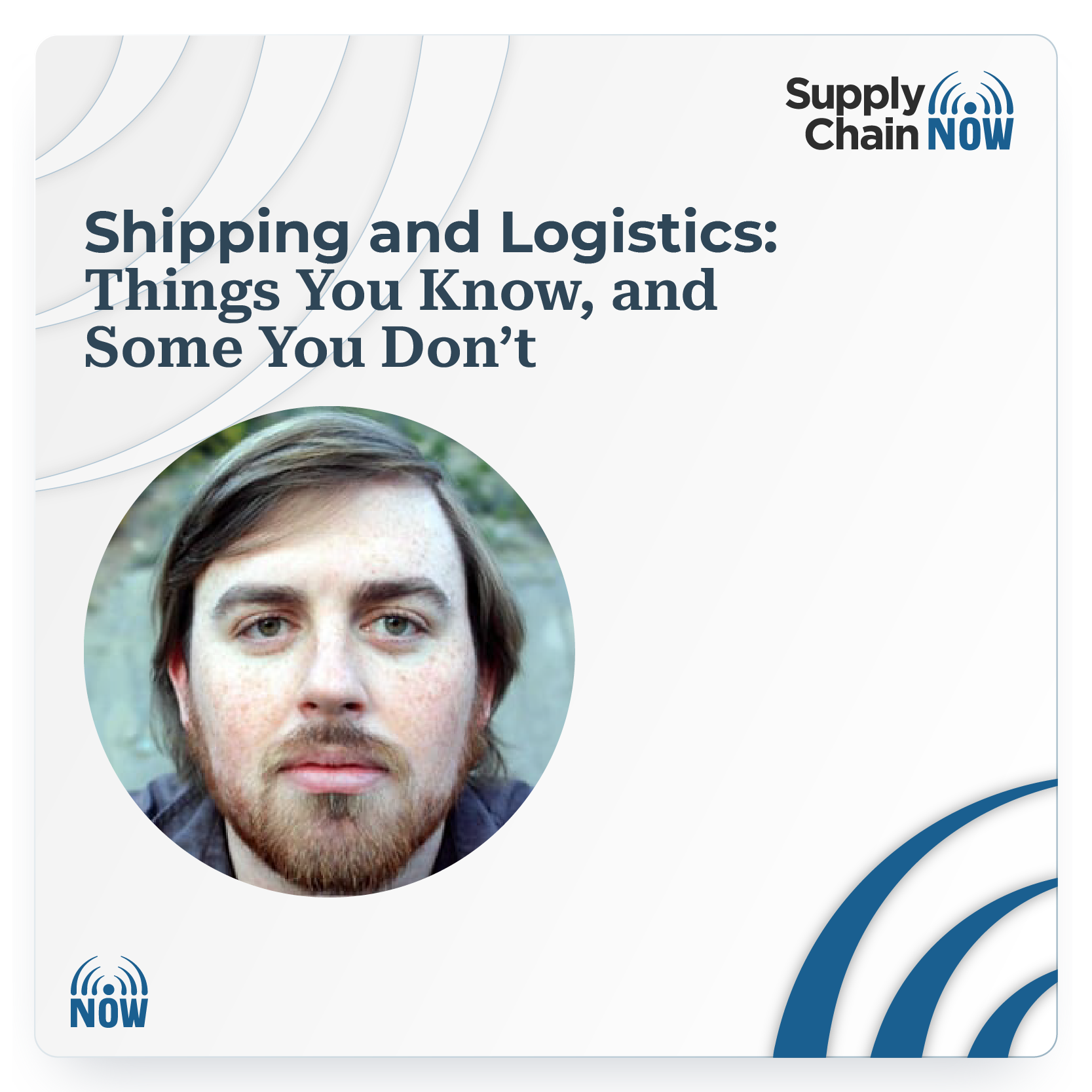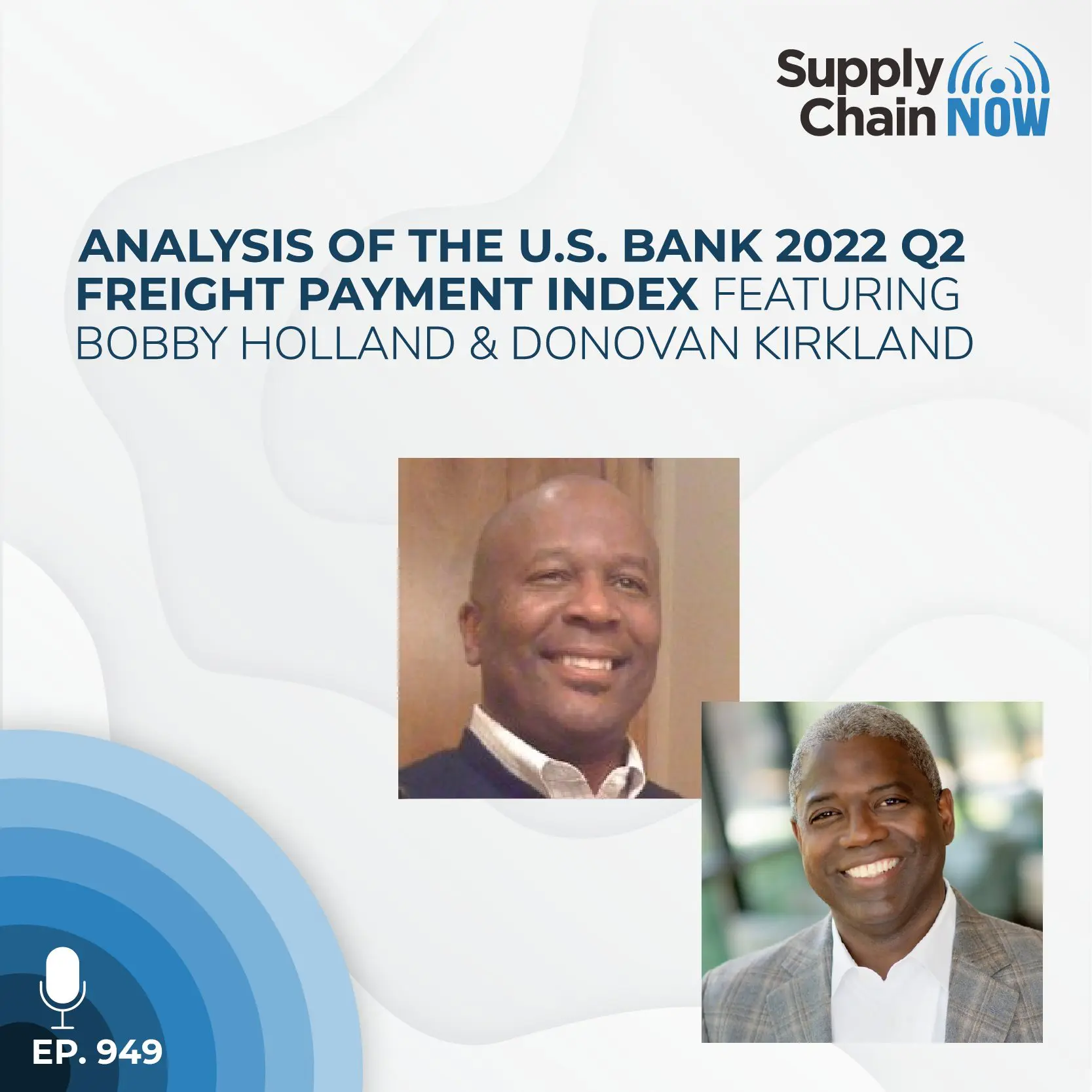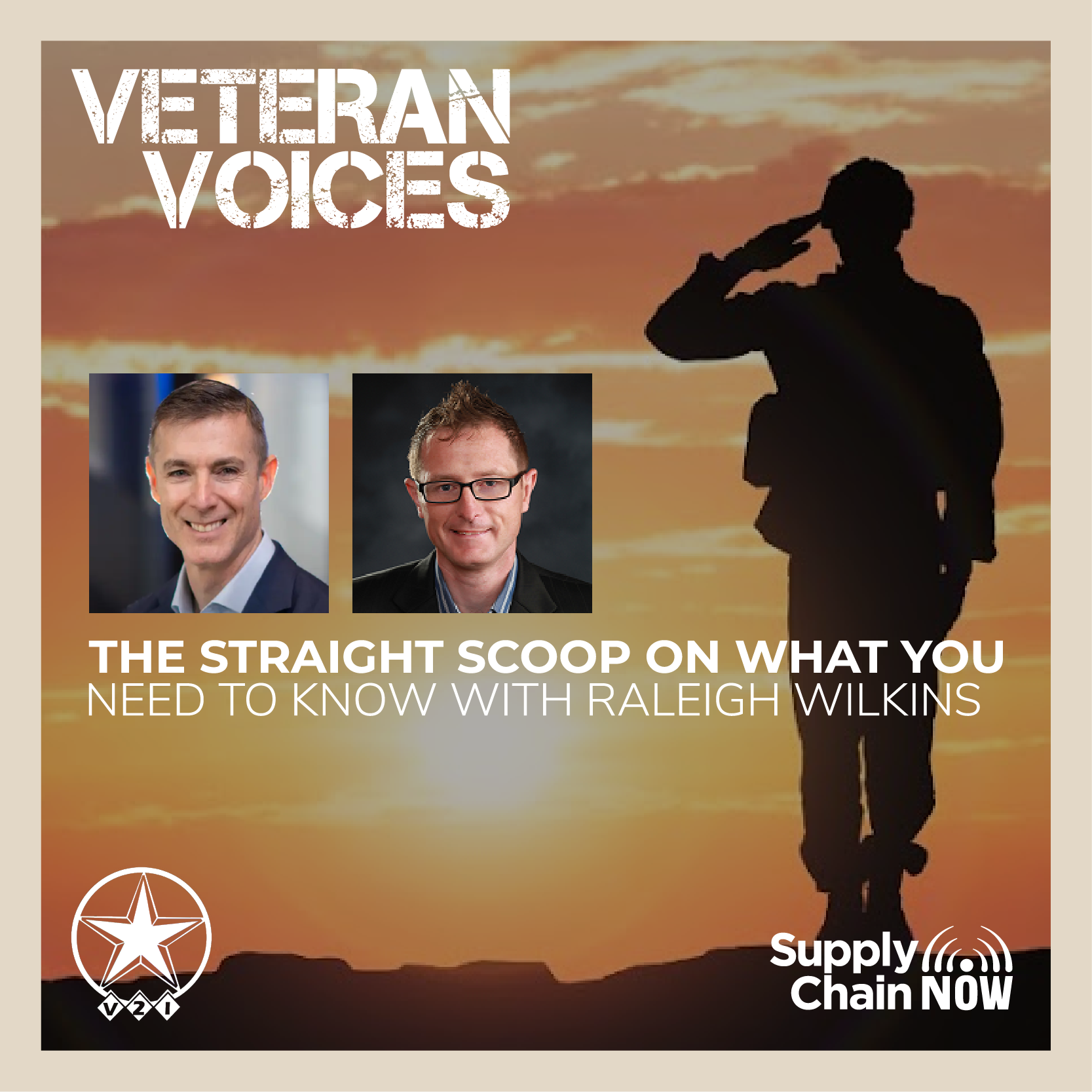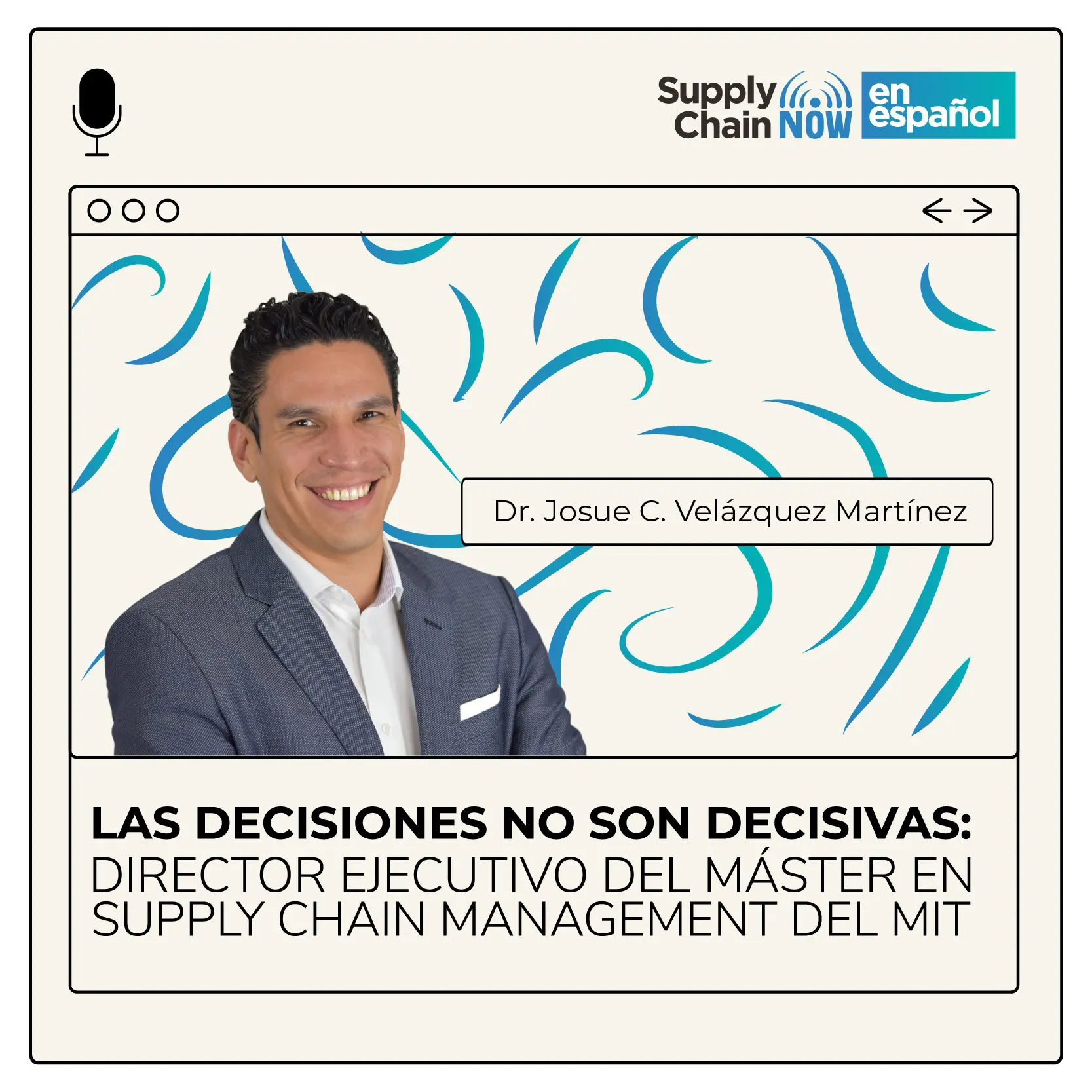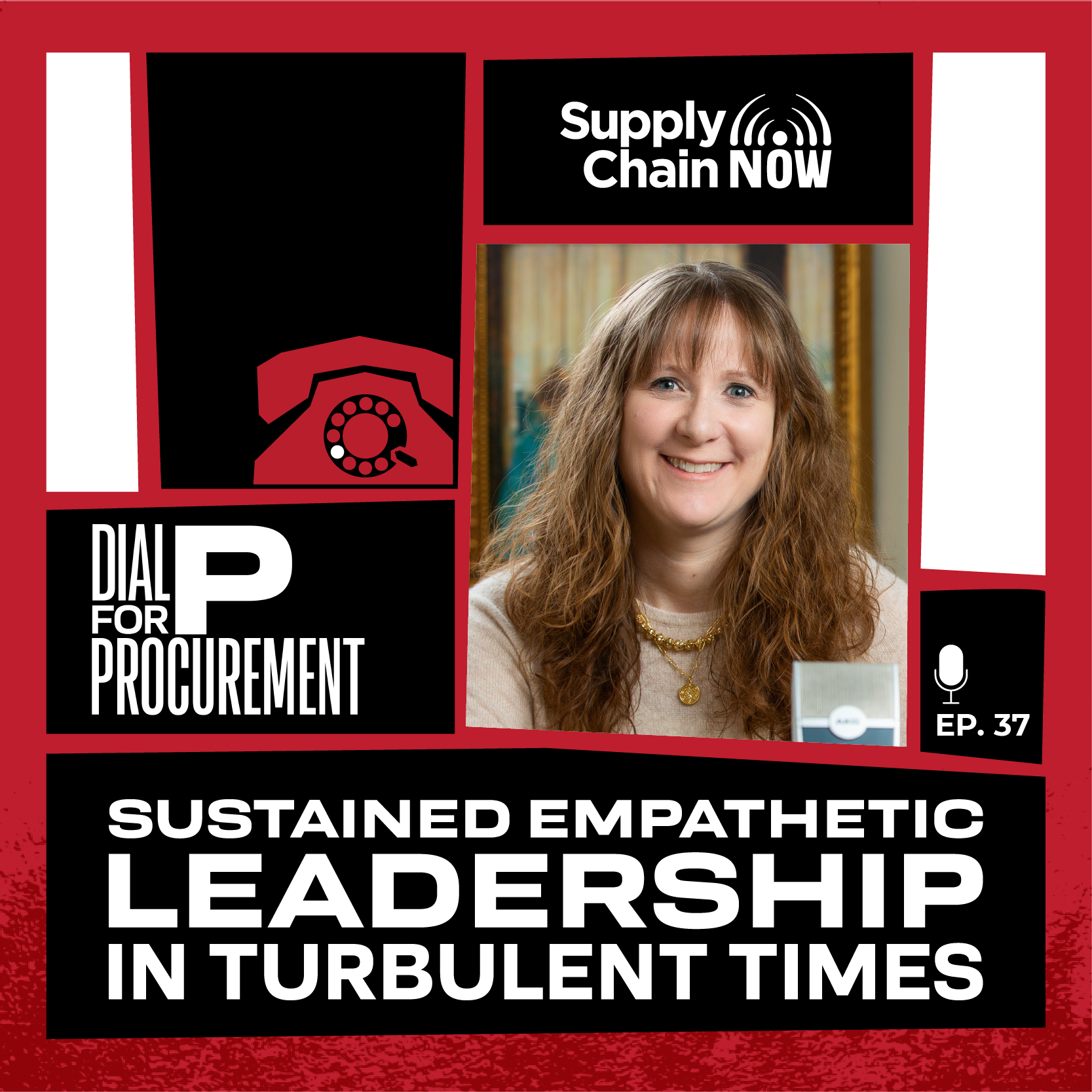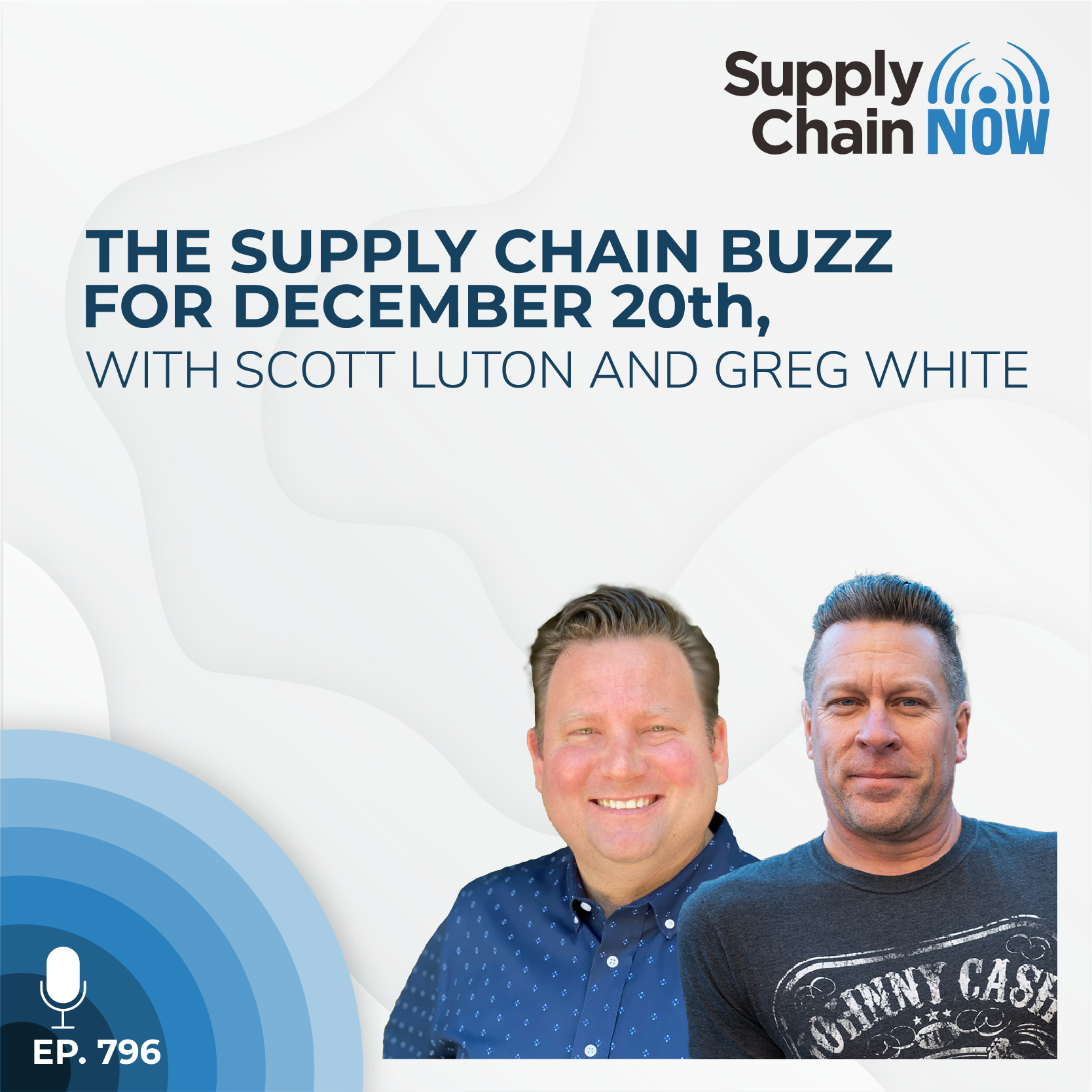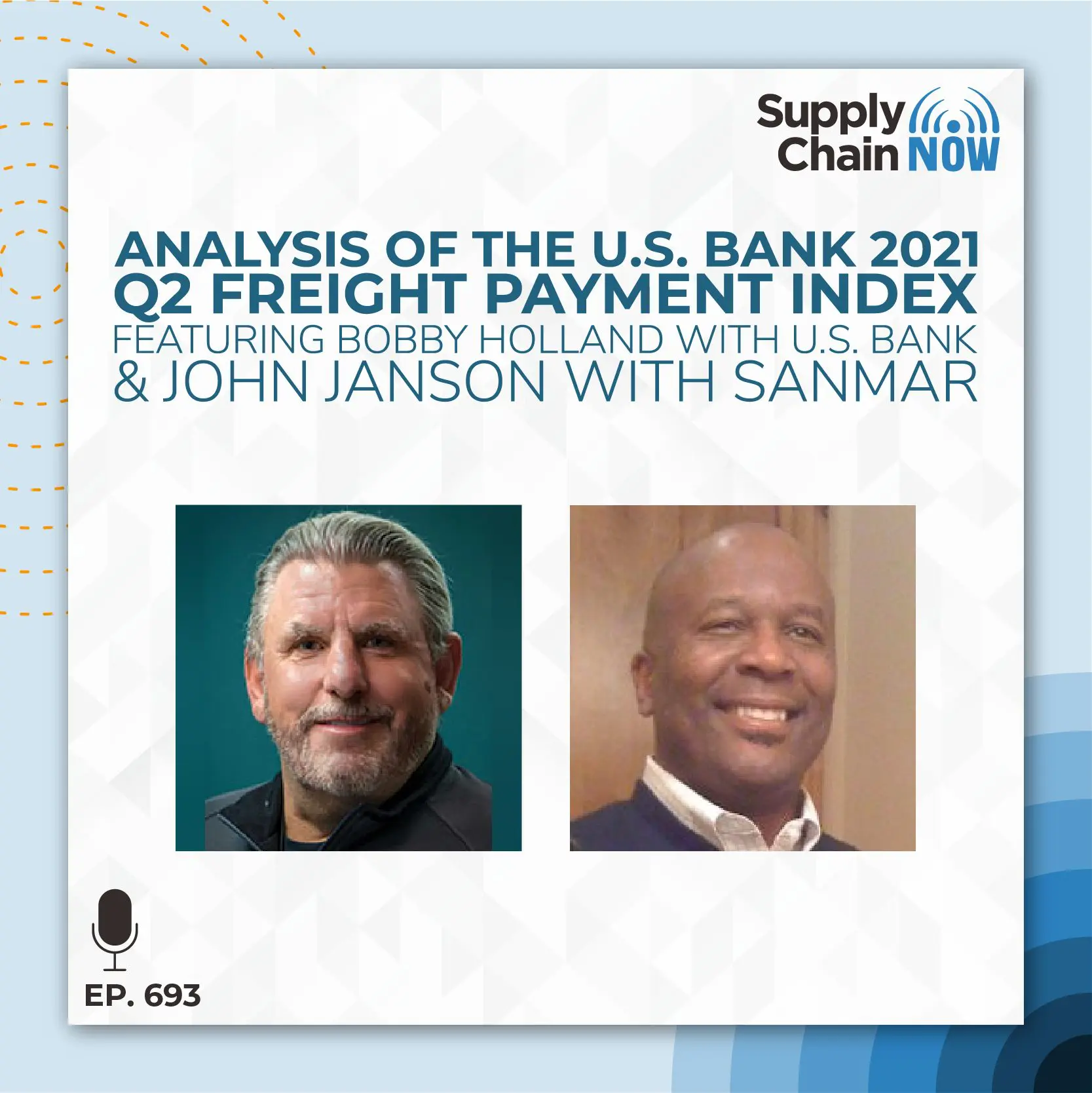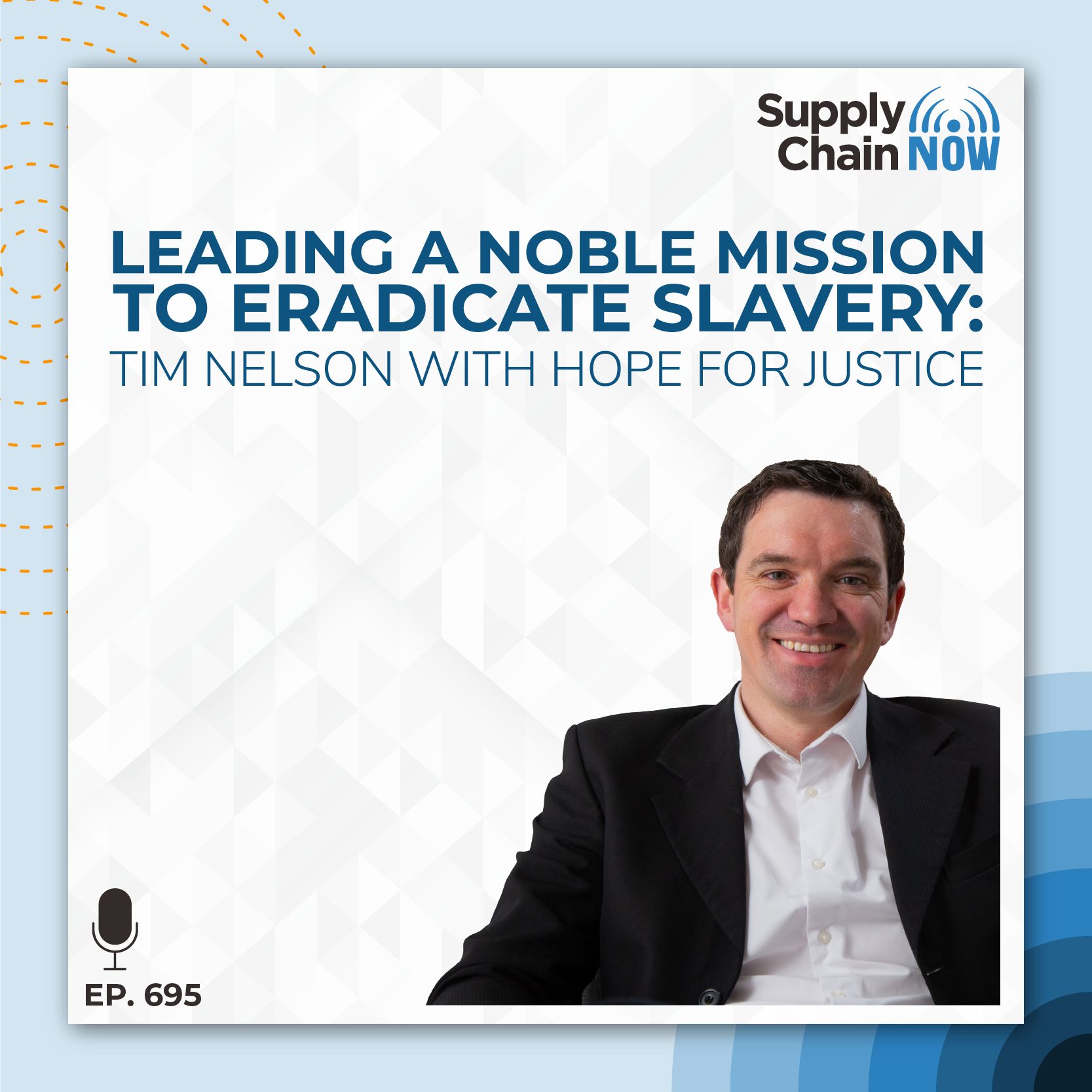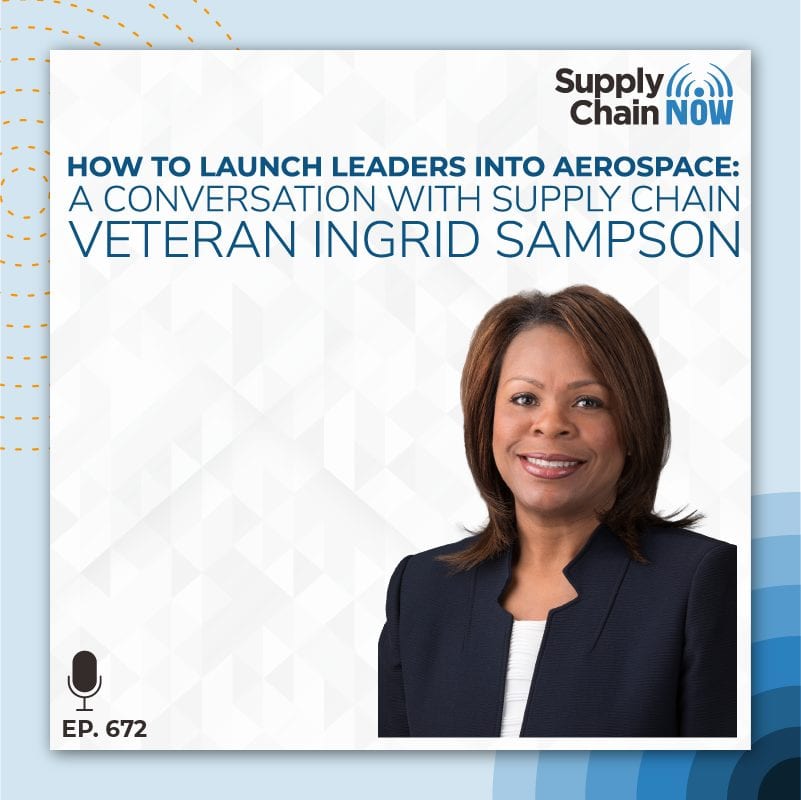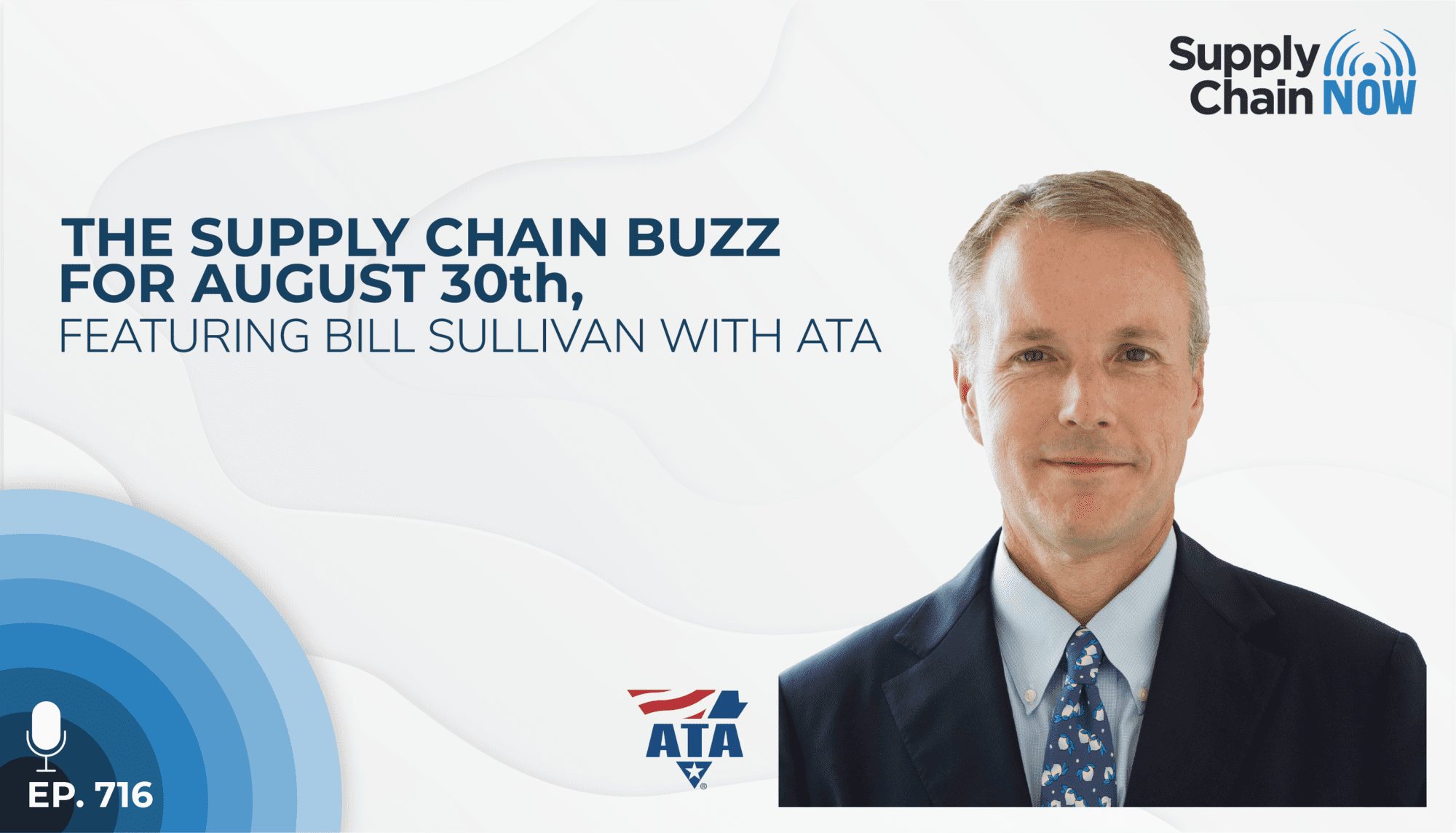
Episode Summary
In this episode of the Supply Chain Buzz on Supply Chain Now, guest Bill Sullivan joins Scott and Greg to share the top news in supply chain for the week.
Episode Transcript
Intro/Outro (00:00:03):
Welcome to supply chain. Now the voice of global supply chain supply chain now focuses on the best in the business for our worldwide audience, the people, the technologies, the best practices, and today’s critical issues. The challenges and opportunities stay tuned to hear from those making global business happen right here on supply chain now.
Scott Luton (00:00:32):
Hey good afternoon. Scott Luton and Greg White with you here on supply chain. Now. Welcome to today’s live stream, Gregory. How are we doing? I’m good. How are you doing fantastic. I look forward to hearing about your big weekend, uh, but here on the bus today, not only did we talk about your big weekend, but we’ve got a big guest talking, a big topic talking infrastructure here today and that big, massive bill that’s wanting its way through Congress, huh? Yeah. Yeah. I think it’s going to be interesting to get Bill’s perspective on that Bill’s perspective on the bill. So you’re alluding to Greg, you let the cat out of the bag. We have Bill Sullivan with the American trucking associations. Who’s going to give us his, take his expert take on the, on the massive infrastructure infrastructure bill that is very close to getting passed by Congress. So buckle up and get ready because we also want to hear from you and get your take on our conversation today.
Scott Luton (00:01:24):
So Greg man, we’ve got a bunch of folks already tuned in. We’re going to say hello to a few folks, uh, in class today, and she’s in Nashville now and married. So congrats, certainly, uh, to you in the family as Leah. Hey, really quick. Speaking of the family for, uh, any of our extended family members and members of our community down there in the Gulf coast, um, prayers and best wishes we’ve been, we’ve been touching base with some of our friends down there and what they’re going through. And Greg looks at the damage estimates of course are early and they’re just kind of wrapping our head around, uh, what the hurricane did, huh? Yeah. But the levies held that’s the important thing, right? Um, finally we have gotten past enough Louisiana government corruption to actually make things work. So, um, I feel pretty good about that.
Greg White (00:02:18):
I mean, Katrina, if they had been controlling the infrastructure as they should have, they wouldn’t have the catastrophe before, but, um, fortunately they got the work done and it’s paid off. So that’s good news though. The entire city of new Orleans is, was without power early reports. So that’s right. That is a huge impact. Agreed. We’ve been watching local new Orleans channels via YouTube live, and it’s really fascinating to kind of see that local perspective, but to your point, thank the good Lord, uh, that, uh, the deaths and the fatalities and injuries don’t appear to be, uh, what, to your point, what Katrina was? Gosh, just a massive storm. Okay. Um, well let’s on a much, much lighter note, Greg, much, much lighter note. You had, uh, a little bit of a travel weekend here. What is this that you sent me this picture of?
Greg White (00:03:11):
So that could be, uh, Arrowhead stadium in Kansas city. Um, yeah, so I went up there with my youngest daughter who was also a huge chiefs fan. She got a official little sign. It was her first game in the stadium. So that was pretty cool. Love that. Um, man, I got to tell you, it was a great game. First of all, it was, it was a pre-season game on Friday night. It was great. And uh, only about a half full stadium. I cannot imagine the mayhem when that stadium is completely full because it was mayhem and half full. It was just amazing. I hadn’t, hadn’t been there in quite a while. Um, and they’ve the stadium itself is the original stadium. It’s always been since whatever that was 66, 70 or 71, something like that. Um, but they’ve added so many great facilities to it. It is just, it’s an incredible structure, incredible fan base.
Greg White (00:04:10):
Um, we, you know, the, um, one of the players on the chief’s team used to play for the Vikings. So that was interesting also with my oldest daughter and he was fantastic Jerrick, McKinnon and firsthand and Mo you know, most importantly got to spend it with friends and family and my baby girl Ashland baby at 19, um, really, really enjoyed it. I mean, it was just, it was a great time stifling hot in Kansas city. One of the best places to watch football game. You’ll add it to your bucket list and great to have you back in the saddle, a couple of quick events, we’ve got coming up, including tomorrow’s webinar, not on the chiefs football and game strategy, but this is all about a data-driven approach to smarter deals, right? Partnering with our friends at enable, which is coming fresh off a big run fundraise ran $45 million.
Scott Luton (00:05:02):
I believe we’ll learn, learn some of the magic behind what they do. Uh, join us 1130 tomorrow, and it’s free to join us final link in the show notes. Also, Greg, our biggest event of September is where we’re partnering with the one and only Lora Cecere, uh, her annual event, supply chain insights, global summit, where the virtual exclusive provider of the virtual, uh, programming. Um, you can still, there’s still time to register. Not much time, still time to register a supply chain insights, global summit.com and Greg, if they need help with a business case for registering for this two and a half day event, who do they go to? You can go, you can go see me. I will help you with the business case. And um, yeah, I mean, I think this is so powerful and as Leah is in Nashville now, so she could actually go go, right?
Greg White (00:05:54):
I mean, it’s for practitioners, it’s for managers, it’s for leaders, it’s for the future and looking toward the future. But it’s also what you can do today to be prepared for that future. Nice. I love that. So y’all just want to, September 7th is to kick off. You can find the link in the show notes and if you need a Kansas city, chief business case maker come see Greg white, um, new event, new event, uh, September 14th, we’re partnering with our friends, OpenText and CIO. This is their annual connection summit. Uh, we’re we’re going to be Greg. You may not even know it yet, but we’re going to be part of a panel focused on digital, uh, uh, digital resilience on how we can prevent some of these supply chain disruptions that we’re going to certainly touch on here today. And here’s the best news folks it’s free to join us.
Scott Luton (00:06:42):
So of course it’s a virtual event. It’s in partnership with our friends at, uh, again at CIO and OpenText. And I think Amanda has a link. You can drop that in the comments if you would. Now, Amanda, but it’s tiny. We’ve got others. They’ll be added to our website soon, but tiny url.com forward slash September or CPT 14 with SCN. So click on the link as well that Amanda is dropping. You ready for this one, Greg? Any, any time we get to talk to these folks, you know, of course, um, mark Morley has kind of led the charge on several episodes where we’ve been talking to folks about data transformation and data integration. And, and in this day and age of trying to create transparency and visibility in supply chain, absolutely critical. One of the smartest people I know mark Morley. So looking forward to reconnecting with him and his team as part of this events, y’all y’all join us September 14th.
Scott Luton (00:07:37):
Okay. So Greg, we are going to pause for a second. We’re going to say hello to some of these folks that are joining us here today. You ready? Let’s do it. So of course, as Les is with us as supply chain time, uh, as lay a newly retinue resident of Nashville, uh, looking forward to hearing your perspective day, Jill is with us via LinkedIn. Good morning to you, Jill, you gotta let us know where you’re tuned in from of course, Peter bullae all night and all day is with this again from Canada. David is with us, Dave and ODK. Good to see you here today. Like in these new images, what we’re getting from you tell us about your recent trials and tribulations in the Jeep four by four, but great to see you here today. So she’ll Greg is back with us. Sarah also via LinkedIn.
Scott Luton (00:08:24):
Sarah, let us know where you’re tuning in from. We’d love to know Dr. Lo fi is tuned in via LinkedIn. Great to see you. Hey Greg, one of your favorite people, one of our favorite people is tuned in, what do you think Gary is thinking this morning? I think he’s thinking that he’s glad that you’re on the proper side. Now on the other side, I don’t don’t know if it’s his left or our left on my left right now. Okay, great to see you. Uh, of course, Halen from New York where hopefully you have some cooler weather up there. Gregory is with us, not Gregory S. White, but Gregory from the Caribbean. The Shakespeare of supply chain is wizard here today. Madly hope this finds you well tuned to in via LinkedIn. Good to see here. Uh, let’s see. I like Raymond’s take here. Let’s start with some positive supply chain news today. Greg, do we have something for well, we do, but we’re not going to start with it.
Greg White (00:09:23):
I mean, gosh, you know, it’s funny because, um, what is, I’ve heard this statement frequently. The best supply chains are the ones that don’t make the news. Right? And um, probably the best news is that your respective supply chain isn’t in it. That’s a good point, right? The huckleberries. I always get this wrong. The doc holiday holiday of supplies. Well, Fred, I hope this finds you well, we’ve got to reconnect. We’re overdue for that lunch, but great to see you here today. Rhonda is with this and own time. So nice to have you Rhonda and welcome everybody. Great to have everybody. I know we couldn’t get to everyone, but y’all, y’all pick the right one here today. Actually Jean north, Alabama. I love that anyone that lets us know succinctly, I will get, we got to give them a shout out. Jean helped us find you well, enjoy your episode on supply chain is boring.
Scott Luton (00:10:22):
Okay. So Greg, we’ve got to jump into the news cause we’ve got a big guest. As we mentioned, bill Sullivan with the American trucking associations star of the show is with us to give us his fresh take and an informed take on what we’re seeing with this infrastructure bill. So let’s jump in snooze. You’re ready. Let’s do it. Okay. So first up, according to the maritime executive, Greg, the maritime executive, which kind of describes you pretty soon, new records are being broken at the ports in Southern California, but not the kind of records that we want to break. 72 container ships are in port in Los Angeles and long beach that surpasses the previous record of 70, uh, which was set back and just February, not, not 20 years ago, more like, uh, you know, six months ago, right? So get this project 44 says that quote, the antiquated rail and road infrastructure on the west coast is preventing the efficient removal of containers at the port in quote.
Scott Luton (00:11:21):
But Hey, there is some good news, Greg and there always is, if you go looking for it, the average weekly dwell times at the ports have dropped a whopping three days. So they’re working hard to get, yeah, they’re working harder, you know, doubling down, that’s hard working folks professionals to clear that backlog, but it just, the tidal wave keeps on going. Yeah. I think one of the things that is concerning is that they aren’t, they have stopped moving containers. We saw, we reported on this sometime ago to Chicago. So that’s probably creating some additional backup agreeing on the Fort area. Yep. Good point. All right. So we’re going to move quick here. We’ve got to save a lot of time to speak with, uh, bill Sullivan here about a big, big bill piece of legislation. So a second here on the bus, we’re talking Ikea and according to CNBC, Ikea is rolling out a furniture buyback and resale program.
Scott Luton (00:12:15):
So the pilot program is going to start in Pennsylvania, uh, wonder why they chose that. But, uh, it’s going to be rolled out nationwide and it really follows other Ikea programs and a wide variety of other countries because it’s all part of their massive, uh, strategy to, uh, make making this business more sustainable, more sustainable. Um, so Greg question for you here, do you buy, and then, and by the way, the story would be a CNBC spoke to, you know, they kind of had some data around different generations and, and their proclivity of purchasing second-hand and used items and, and some of those figures might surprise you, but I want to go straight to the source here. Greg, would, do you buy? I absolutely would. Um, I mean, I think that there’s a lot of opportunity in the marketplace for that. Well, you know, what’s particularly impressive about this is the cost of Ikea’s furniture is so reasonable that it’s, that it is good enough quality to actually be resold is, is impressive.
Greg White (00:13:19):
Right? I mean, if you think about some of the, they almost feel like papier-mache desk desks that you used to get back in the eighties and nineties, right? You built it at home and you wouldn’t dare ever try. I mean, most, most times you broke it while you were building it and you wouldn’t dare try to resell it to anybody. I really think that that really speaks well to their quality. But yeah, I mean, we’ve got used furniture in our house now, so agreed. My desk is used, man. You’re just, you’re surprising me left and right here today, but I can hear you’ve been peeking on my furniture, uh, assembly skills, which are very, very lacking here. Uh, Rhonda, appreciate your honest attitude, Greg. I do as well. And Gary says, Hey, the Ikea news is great for the circular economy. Right. I agree with that.
Greg White (00:14:08):
Yeah, they’re already, they already work hard to be sustainable. Right. They use a lot of bamboo and, and that sort of thing. So which is imminently replenishable. So, um, this just adds to that and I think that’s, you know, that is a, it’s a good idea. It’s a, it’s a good, it’s a good statement around why building quality makes sense because if you build it and it can be reused, it doesn’t wind up in the landfill and they certainly know their, their customer and you see devoted fans everywhere, including Amanda. Uh, so, all right. So, uh, we’ll have to keep our finger on the pulse of this buyback program. Tons of opportunity. I agree with you there, Greg, let’s shift over to one final story here. Um, and I think this is, I believe just my take. I think this is underreported, you know, a lot of times when we’re talking about labor and China and the same conversation, you’re talking about, uh, the big advantages of outsourcing and offshoring, but here labor pains as reported by the wall street journal, aren’t just being felt in the U S times are a changing in China as well.
Scott Luton (00:15:15):
So young people, as the reporting lays out young people in China, more and more don’t want to work in factories. And they’re opting for service industry jobs that either pay more or they’re less demanding. And the bigger picture China’s also face facing a shrinking labor pool, right? Especially in a manufacturing industry. And Greg, you may, you know, one of the things that article points to is that the, um, one child per family policies that I think for several decades, China had in place, which is one of the reasons of the shrinking labor pool, uh, manufacturers in the country are having to either boost salaries or pay bonuses, which of course eats into the profit margin that they’re competing with. So Greg would love to get your take here on the Chinese labor market and pains they’re in. Yeah, well, let’s just, let’s just address the elephant in the room.
Greg White (00:16:08):
I didn’t know you had a choice in China, so it’s good to see that you all just stuffed into a factory. Well, some people are, but most apparently are not right. You aren’t just stuffed into a factory to do your job for the, for the common good. Um, so I think that’s a really interesting dynamic. And of course there, as you said, there, one child initiative, uh, has started to come home to roost over a decade ago. Um, and it it’s creating major issues. There, there are way more men than women. Um, because well, I mean, when they had one kid they chose to carry on the family name. Right. So, um, so that, I mean, I think that there are additional issues in China that we aren’t hearing about. Um, you know, I’ve heard some rumblings that there are some outbreaks and that they’re cutting.
Greg White (00:17:05):
Um, they’re cutting, um, the number of workers in the ports and in transportation and even in the factories. So let’s face it. China is, you know, they, they have a tremendous amount of ability to produce robotics. And, you know, even when we talk about robotics, we often talk about the fact that they’ll come from China anyway, or big portions of the, of the materials that you build them out of will. So they’ll, they’ll figure out a way to make it work. Right? Yeah. So we’re not being able to do that. This article in this reporting justice in the five minutes, we’re going to give it, but one interesting factoids spend a couple of years since I, uh, um, put my finger on the, on this metric. So we know that labor is much cheaper in China than it is in the states. That’s clearly established, but the average wage, I think this is how they calculate the average wage for, uh, uh, um, a laborer in the manufacturing industry is $3 is about $3 and 65 cents.
Scott Luton (00:18:09):
And I was thinking about my first paycheck here in the state, right. Is that an hour per hour? Yeah. Um, my first one back in 1994, what does that? 21, 27 years ago was $4 and 35 cents. But it’s interesting to see his inflationary, um, powers and, and, and impact and dynamics, which we may see a, you know, the Chinese worker get a bigger paycheck. So, uh, we’ll see. We’ll, you know, we’ll keep our finger on the pulse. It’ll be, it’ll be interesting to see how that impacts economies globally, because that will change the brightness. It’ll change the business case. Yeah. Right. Sorry. Thank you. Good. Thank you. We’ll change the business case for off shore. Right. Right. And, and that just becomes the latest, uh, impact to that ever evolving business case. So more of that, more on that to come for sure. But I want to, um, Greg, that was some of the stories that we’re tracking here at supply chain.
Scott Luton (00:19:11):
Now, again, for anyone that missed it, um, and went tunes in from the Gulf coast, uh, uh, feel free to w would love to hear your experiences or hearts and thoughts and prayers and, and, um, um, you know, all our, with members of our community down to the Gulf coast. So, um, hopefully we’ll get through all of the damage here together in the next few days. Okay. I want to share a couple of quick comments and we’re gonna bring on our featured guests here today. Again, we’ve got bill Sullivan with the American trucking associations that we’ll be speaking to the infrastructure package that Congress just about has wrapped up, but I want to share this here. Uh, Natalie says supply chain in the human resources in or to China shut down neighboring countries to reduce the supply of workers. Huh? How about that? Uh, let’s see here. Um, oh, Peter, Peter says his, maybe his first job, 3 25 in 1978 in the warehouse about that. Um, let’s see. David looks like everyone’s, y’all share what you made in your first job, David, $4 an hour, washing trucks at a transport company when he was 13. I bought that. I want to go back to, um, we’re talking about the action.
Greg White (00:20:26):
I mean, a nickel avail for bailing hay. Oh man. Oh, I was about to say those, those hay bales are much heavier than what most people might think. Charles heater back on the Akea problem. Interesting. On the Akea buyback program, wonder if they will give the furniture a distressed look as that seems to be a trend, but it comes back with a distressed look how much Ikea furniture goes into an apartment or a dorm room. Right. Right. All right. So, uh, thanks for being here, everybody. We’re going to bring on the star of our show here today. Infrastructure, all things infrastructure, some of the, some of the stories would touch on of course, uh, infrastructure as big themes there. And the legislation that our Congress is attempting to get through and really address some, some big gaps. Uh, there’s all kinds of takes, but Greg, I would offer up there’s very few takes that are as informed. And I have, uh, have as much experience as bill Selvin. So let’s wait spring on bill Sullivan, executive vice president of advocacy with the American trucking associations.
Scott Luton (00:21:41):
Hey bill. Good afternoon. How are you doing? And we might be, we might be having a little, Hey, Murphy’s law is loving well bill with all of these. Can you hear us, give us a thumbs up if you can hear us come on, have a little bit of a lag. He’s a little jumpy. Yeah. Yeah. I think, um, I think I’m back. I think I had a little bit of wifi, uh, re wiggle my wish. Well, bill, welcome to the buzz. And we’re gonna, you know, if we have any kind of lag or technical challenges, which happens, you know, we’re gonna work through that. Uh, hopefully the infrastructure bill will give us a lot more, uh, uh, bandwidth, uh, across industry. But first up bill, uh, before we get, before we start talking to infrastructure, I understand that you’ve spent a ton of time and Knoxville is that right?
Bill Sullivan (00:22:40):
I am a proud east in the sand. I, I, I, uh, I have to say proudest in seeing and slumming it in the swamp recently, but glad to be from there and glad to go back there as much as I can. Wonderful. All right. So one quick question. Before we start talking to infrastructure, what’s the go-to, is there a hole in the wall restaurant or, or what’s the item that live in, in, in, in the Knoxville area that was, you know, that still sticks between the ears, you know, hi, my time. And I went to UT not only did I grow up in Knoxville, so when UT and my, uh, my go-to was the copper cellar restaurant Cumberland avenue, this right up, uh, on your way to go into a football game and never disappointed in, in, uh, takes burgers, whatever it was. And as I’ve gotten older, I love going to the gourmet market, which is a, to me, a fantastic little restaurant, uh, on Kingston pike, not that far, but just great breakfast food.
Scott Luton (00:23:40):
Love it, man. Uh, I got to add to my, our bucket list, attending a game in Knoxville and getting some of that delicious food, Greg, but Greg enough, food talks, we’re talking infrastructure next, is that right? Yeah. So we’ve been talking about this for, at various levels bill for some months now, and now it’s looking like this is, this infrastructure bill is imminent right there. They seem to be determined to get it passed before. Well, in October. So, um, it’s a $1 trillion bill, which is down from the last proposal, but up from what we have had budgeted to be spent, spent on infrastructure over the last several years. So tell us a little bit about what you know about it. What are, or what you think it means for supply chains? I it’s great for supply chains. And, you know, when you say we’ve been talking about for months, hell, we’ve been talking about it for 30 years.
Bill Sullivan (00:24:38):
You know, we, we have made a real significant investment in, um, in, in infrastructure and roads and bridges since, um, you know, fiddling around with the user feedback in the nineties and, and, um, you know, truckers supported increasing the user fee and the, you know, federal fuel user fee. And that, uh, just a quick bit to me, it, uh, we don’t believe we’re conservative personally conservative. I don’t necessarily mean politically conservative though. A lot of those, and you gotta pay for stuff you buy. And the user fee was a great in a great model for 50 years to make sure that we don’t borrow money and go into debt. Um, and the, the infrastructure that we have in this country is what makes us different that a common currency and a common language is what makes us different from any other place on the planet.
Bill Sullivan (00:25:27):
So the whatever bizarre, you know, we don’t want to pay for anything that’s come along. Uh, doesn’t sound like east Tennessee roots. To me, it, uh, you know, there are things that we could borrow money against. I’m no modern monetary theorists, but this bill increases the spending on roads and bridges by 38%. That’s a huge spend. And, you know, as, as you were looking at, you know, what’s some good news on the supply chain. I think you and Scott did a good job. I think it’s also just as a small bit part of that, that it looks like fuel production, involved oil production. Then we have heard final from the refineries, but the problems with fuel could be a really big one. Um, it looks like we may have dodged the worst of that, but, you know, God bless fingers crossed and we’ll see what happens.
Bill Sullivan (00:26:13):
So the bill is critically important. We work closely with Donald Trump as president and with Mitch McConnell and Paul Ryan and Donald Trump had, as you, as you pointed to an even larger vision, a $2 trillion vision for infrastructure, the man was a builder, is a builder. And, um, and so this is a very, uh, you know, reasonable on the hard infrastructure, not withstanding whatever political, uh, you know, theory that people have when their team is running the game. But I’ll say this, our CEO, Chris, Chris spear, and I are, we don’t, we don’t give two hoots. I worked for Republican when I was on the hill. Um, we don’t give two hoots about who gets credit. We just need infrastructure. And so, you know, credit goes, credit goes to Joe Biden for keeping his word on this. Um, you know, there’s this second piece, this, you know, human infrastructure, whatever we want to call it sort of big social spending plan.
Bill Sullivan (00:27:07):
Um, we’re, we’re opposed to that, but on this infrastructure piece, um, it feels like members of Congress have forgotten how to be for anything. And so as we’re traveling around, um, you know, all over the country, speaking to truckers, speaking to state trucking associations, uh, we’re getting questions that sound like, you know, Hey, if our team’s not running the run in the game, um, we should be opposed to it. And we’re trying to, uh, trying to tell people like, no, this is still just as important as it was when we were working with Donald Trump. So, um, we think it’s a big bill, a really huge part of it since you opened the door, is there is a pilot for younger drivers in it. Um, this is a compromise worked out directly with the Senate commerce committee with the chairwoman Maria Cantwell from Washington state. Uh, we worked on it and the, if there is a way to, again, to address some of the capacity concerns, and I know with the wrinkles from the pandemic and the supply chains with chips, with other issues that are limiting equipment capacity, another part of Asti has been truck drivers having a driver shortage and mostly in the, over the road, long haul segments.
Bill Sullivan (00:28:19):
Um, but we hope that this pilot will finally pay the way and we believe it will pass since it’s in the bill, that the house is waiting to take up at the end of September and Nancy Pelosi agreed to, to pass it by September 27th is our understanding of what her deal cut with a moderate Democrats in the house were. Um, but this pilot would be a part of that. And this pilot would allow up to 3000 young men and women, um, to go through a mentorship or apprenticeship type of training program, 400 hours of training, um, for technologies and every cab to see how can we safely get young men and women who have to have a CDL even before they get into it. So 49 states district of Columbia, you can get a CDL today. You just can’t drive interstate. So this is trying to answer the question, how can we increase participation for people, young men and women at the beginning of their work lives so that they can be long haul truck drivers into, they can be short haul truck drivers, um, but help address that.
Scott Luton (00:29:20):
Oh, so I love a lot of that. Let me share a couple of comments and Greg, I wanna circle back and get your take on what Bill’s just talking about. T squared, who’s holding down the Fort for us on YouTube calls out the obvious our infrastructure is that of an aging, dinosaur revamping and recreating is critically needed. And he’s, he’s really talking about the heart infrastructure. Rhonda agrees with bill. I was hoping for more remote working with remote working, continuing our roads would have an opportunity for repairs and less traffic for trucking companies to move goods sad to see it appears we’re back to heavy car traveling and increased fuel prices. I’m not a fan of all the extra fluff in infrastructure bills. I’m with you bill and CSLA as says, lots of blades, lots of paid CDL incentives advertise out there as well as sign on bonuses for drivers as well.
Scott Luton (00:30:08):
Greg, just what bill has shared thus far. What are you hearing? One of the, one of the comments was really interesting on the dinosaur park when I was still working in the Senate and had a number of state Mo state bot’s come in and talk to me, they were coming in proud, and I don’t want to point any out, but it was a small, single is, was know, four or five of them. They would be proud that they had implemented a program to bust up paved roads and turn them into gravel with would reduce their maintenance costs and would help them allocate their budget. Well, and I, and I just thought to myself, I, in, in the greatest country on earth where the infrastructure that we have and the cohesiveness of our supply chain is so vital to our economic success and way of life.
Bill Sullivan (00:30:57):
What, what kind of backwards, backwards stuff. And looking at that, they’re talking about button up, you know, 19th, 20th century infrastructure and turning it into 16th century infrastructure. Like if we are not willing to invest in our roads and bridges and ports and airports, and even now things like broadband, um, we’re going to be speaking Chinese. You know, the Chinese are building 6,000 miles of new highway, new interstate grade highway a year, much less of what they’re invest in other places. And the Chinese are always antagonist, but on this, um, it’s, it’s a model for us seeing the end of an empire here, if we aren’t careful about what we choose to send on and what we don’t. All right. So Greg that’s, uh, that’s putting it plainly from what I’m hearing with bill Sullivan, your take Greg, first of all, I had never heard of such a thing, broken, breaking up asphalt roads and turn them back to gravel, but I can absolutely see a state government being proud to do that in their twisted way.
Greg White (00:32:01):
And part of the issue we have with infrastructure, it’s not just government it’s politicians, because we have, we have funded infrastructure over the decades, right. It’s just that the money has been ill used or redirected over all of that time. I’m curious as we, as we talk about some of what you’ve already shared bill, I know there’s some really key aspects of this bill that you feel are really powerful. Um, to me, to me, one would be provision earmarking money that it’s used for the, uh, for the intent that it is it’s, it’s earmarked for. Wow. But it’s used for infrastructure, right? Because we have had so much of these funds kind of, kind of hijacked and used for other types of pet projects. So do you see, is that one of the provisions that you’ve seen, is there any chance that such a thing could occur?
Bill Sullivan (00:33:04):
Uh, so I, yes. And, and I think that this does streamline the, the formula pots of money and to which they go, um, you know, the, when I first started working on transportation issues on the hill and the early two thousands, um, we had, you know, a lot of, a lot of opposition in the state of Tennessee. I was working for Lamar Alexander. I was from Tennessee and, uh, and he had been a governor who, whose platform was to build four lane roads and every county, all 95 counties in Tennessee. Um, but there was lack of planning about transit. There was lack of planning about flowerbeds and bike paths and all the rest, and there continues to be, and there is some bleed off in that with federal highway funds. It’s an 80 20, um, it’s an 80, 20 RIT. Now the grand, the taunt is, um, not to use fancy words, but sort of the grand bargain is this sort of 80 20 that 80% of the receipts into the highway trust fund go to highways and 20% go to transit and other.
Bill Sullivan (00:34:04):
And, um, you know, I, I I’m, uh, I’m personally conservative. I know you all may have people with, uh, with other opinions on the show. And, uh, and so we wanna, we want to see it spin on roads and there are, there are good programs. There’s a seven and a half billion dollars for bridge sort of bridge replacement related, um, on top of this, and there’s some for intermodal, um, they’ve renamed some of these, one of them’s a raise the res program, and one of them is the build program. Um, but on top of that are just the decisions left to the states with the big influx 38% increase in the influx of funds that are going to go to the states. And if there’s something that, um, most app out in this, in this bill, it’s that they don’t pay for it. They do in fact move most of the money from these unspent COVID funds.
Bill Sullivan (00:34:56):
And even within trucking, we’ve heard from a number of companies, uh, employers that have, you know, truck drivers doing 85,000 plus specifically. I’ve had one guy working in Southeast who has a couple of hundred drivers and said at some terminals when the stimulus checks came in and when the unemployment was low. And, um, they, they had drivers disappear and he was starting people at 85 grand a year. So this wasn’t the, the old story about, you know, if you’re making 30 grand a year, you might make 60, 70 off the unemployment insurance with the federal side. This was people with just a bunch of extra money in their pocket. And for a number of different reasons, um, chose not to, not to work. And, and so repurposing that stimulus money to spend it on, on roads and bridges, even if it was deficit spending is, is a good thing.
Scott Luton (00:35:45):
Um, we were so bill really quick. Yeah. My phone is blowing up with a key question based on one of the stories we shared earlier, you know, we’re project 44, uh, and their analysis really pointed out the, the antiquated infrastructure related to, of course, the busiest ports once on the busy sports in world, certainly hurting the states, which is the west coast ports of long beach in LA. Um, do you see any, any of this infrastructure bill addressing items like that? I think it, in that it provides some of these intermodal grants that it’s talking about can help build them out. Some of those relationships in the ports. And I’m down, as I mentioned to you earlier, Scott, Greg, I’m down close to Charleston. You know, the port of Charleston runs pretty smoothly and, and is not, uh, you know, blessed or cursed with the kind of volume or the quite the levels of volume they have in long beach and port of LA.
Bill Sullivan (00:36:37):
Um, but the, I think some of those relationships, you know, as cities and court authorities are working to figure out what the, what the issues may be. I know that our, our intermodal trucking companies struggle mightily with a lack of information coming in off the ocean shipping lines and with some of the abuses, the TriNet emerge fees that the ocean lines are trying to foist on truck drivers in the middle of these interchange agreements. Um, so they’re struggling with those also are some of the, uh, you know, solutions that accord authorities are trying to work with the unions, whether they’re long shore men or other unions. So the, the local relationships and the local decisions in these ports had a lot to do with how many boxes they can get off, whether they can move them where they move them to. Um, and the dwell time is, you know, the Santa’s dwell time dropped by three days is terrific.
Bill Sullivan (00:37:36):
Um, but you, you show that picture with all the, all the ships waiting out in the, in the bay and, and, uh, it’s a problem, right? So I think the, those, if there is ever a time to figure out when, uh, you know, when we might work with labor and business and ports authorities to resolve some of these challenges, they are there’s pressure on them in good times. And in bad times it just blows the system off. So, um, I don’t, I don’t, uh, our friends in the unions are good people they’re working hard. Um, but everybody’s going to have to set up and come to the table to figure out how to, how to resolve this problem. Right? There’s a, there’s a, there’s a, there’s a lot of competing objectives and priorities and missions, especially when, when you look at the sheer scope of this package, I mean, it’s massive.
Scott Luton (00:38:27):
So Greg, first off, I’m gonna come back to you and then we’re gonna, and bill, our next question will be, you know, what else, uh, critical top aspects this bill, but Greg, I don’t know about you, but I wouldn’t mess with bill Sullivan. Uh, he’s been in a, in a, in a rodeo or two and, you know, uh, he knows, it sounds like to me, he knows how this stuff is. Crafted knows some of the, the, um, when I’ll call the honest players in this, and then those, some of the reindeer games that goes on, but what, what are you hearing him? Uh, him chick. Yeah, I think it’s precisely that. I mean, there’s, you know, I know that’s, that’s your job, bill is part of, part of what you do right at ATA. But, um, I think it’s important to know the inner workings of these things, because there are reindeer games, as you say, Scott, which I love.
Greg White (00:39:15):
And, um, and they’re, you know, they’re, uh, unintentional inefficiencies as well in government, right? So, you know, there’s a lot of pork barrel stuff going on and, and that sort of thing. And now we’re looking at a trillion dollars that we’ve borrowed to do this with someone who knows how to deploy it effectively and knows how to avoid some of those reindeer games and make sure that the people or the organizations that deserve the money, get the money it’s particularly critical now, because we’ve played so many reindeer games with our infrastructure dollars to this point that now we’re in a desperate position where we have to deploy them properly. If we had deployed the 260 billion or so that was allocated for infrastructure over the many, many years in the past, we wouldn’t be where we are, but now we have to buckle down excellent point.
Scott Luton (00:40:10):
And, and we’ve got to have just like those, uh, uh, intermodal folks want visibility on what’s coming. We got a visibility on these dollars being spent once this package is, is, uh, pass. And I’ll just add, I bet Bill’s got some more colorful ways of, of, uh, describing reindeer games, but I won’t, I won’t put them on spot, ask him, but bill, keep, keep sharing, keep educating us here because you know, uh, I can’t remember at last count, how many pages made up this infrastructure and I’m at, I can only imagine all that legalees, but break it down for us, you know, supply chain practitioners, what else is in this bill that we’re going to love? Well, I think that the overall spend and Scott, I didn’t go in to look at how much is in their reports, but this allocates money to all the different modes.
Bill Sullivan (00:40:53):
And so this allocates money to, you know, passenger rail, I’ll gag a little when I say it, but you know, it allocates money to a lot of different modes of transportation and significant amounts of money and someone that, you know, from the ports authority, whose job is focused on that can tell you more on what’s in there. I know my last boss and, uh, Richard Shelby from Alabama, uh, led the way on a, on a sort of reconfiguring how the Harbor maintenance trust fund, which funds the, um, you know, dredging and construction and things around the ports. Um, but the, the federal share of money that will be made by this, that is especially in the ports matched by private and state funds is really a huge investment. Um, so all of these matter, I just, I keep coming back to a key thing for anybody’s listeners, and that is you have to let members of Congress, you have to let your representatives know what you’re for, not just what you’re against, whether it’s, you know, Joe bad or Donald Trump or whatever, you really have to let people know what you’re for, because we see so little of that it’s gotten significantly worse and everybody, my age is complaining, but it’s got, gotten significantly worse.
Bill Sullivan (00:42:09):
This makes big steps forward across all those different paths. I think it’s a, it’s a really acute moment when we shut off the economy, we, we flipped a switch and shut off the economy, sent people home, no more school, no more cafeterias. Where’s my toilet paper. And then we flip the switch back on and we didn’t see something like a depression. Holy crap. Like that’s unbelievable. And when we’re talking about how divided people are with Donald Trump and a house that hated him, the Senate that was narrowly divided, they pass these unanimously last year. So with the PPP money and the cares money, um, and we did the best we could given a horrible circumstances, turning the economy back on is turning out to be, you know, bumpy period. And so I think recruiting people into the industry, the thing that I’m the most excited about really is to reach on the young men and women at the beginning of their work life.
Bill Sullivan (00:43:03):
Because what we’ve seen is private truck driving schools, people who are training truck drivers, the average age of someone coming into a private truck driving school is 35, 36 years old. So if you’re from east Tennessee, like I am, and you had lots of friends when you’re 18, who didn’t want to go to college, but wanted to work hard and didn’t have a bunch of speeding tickets or some drug convictions or other mistakes that young people make on the record at 18, they couldn’t choose a big bold career in trucking where they could have been making 40, 50,000 a year pretty fast, and then making a hundred thousand a year within a few years. So you’re not able to compete with plumbing, welding, you know, building trades, whatever it may be. Um, so finding people at the beginning of their work lives, where they can get a few hundred thousand safe miles under their belt.
Bill Sullivan (00:43:50):
And then if they have a family, because the biggest difference between me at 18 and me at 35 is I had a wife and kids at 35. And if the first wrong a truck driving ladder to get up there and put in a bunch of miles, be away from home for a week or two, um, that’s really disruptive when you’re 35 at 18, you can stand a little bit of that first rung on the ladder and then say, Hey, I’m going to work and be home every night working for target or Walmart or, or, you know, driving for Pepsi or Cisco or FedEx, whoever. Um, so this, if we can somehow begin to, to recruit more people earlier in the work lives, I think the bubble that the perpetual pandemic or not that our chief economist has, is always the driver shortage, like why we have so much trouble. Why is there such high turnover in the, over the road, long haul? And it’s a big deal. Yep. All right. So Greg, we only have a couple more minutes here with bill Sullivan, with the American trucking associations. Um, what else comes to your mind, Greg? What, what do you think folks would want to know given the subject matter experts we’ve got here with bill? What else would folks want to know about Pete that this package?
Greg White (00:45:05):
I mean, I’d be interested to see, um, what aside, um, what, aside from trucking and intermodal, and of course, as you said, passenger rail, which bill, it’s hard to believe how long we’ve been wasting money funding and tracking that isn’t it. But, um, something that I’ve used once in my life, Amtrak as a novelty. Right. Awful, honestly. And, and yeah, I mean, I didn’t enjoy it at all. You don’t really see the good scenery. It’s not like you’re riding along the edge of the grand canyon. You’re, you’re running through my family’s Indian reservation and looking at cars up on blocks and vast wasteland in the Southern part of Kansas and Oklahoma and, and, and, uh, New Mexico where we went through in any way, pleasant, honestly, freight trains, sorry. That’s way too far. That’s way too deep on that topic. Well, let me, let me do say I’ll bet you all grandparents, like my grandparents both took the train from Knoxville to all kinds of places.
Bill Sullivan (00:46:20):
So we somehow stopped investing at some point, and I don’t suggest for a minute that federal money ought to be the solution to it. But, um, but if you live as, as my wife and I have for the last 20 years in the greater DC area, an east coast corridor, like on density, there are places where it works. If you live in Kansas city or you live in Memphis, or you live in Atlanta a little bit tougher, um, and very commuter rail, I think commuter rail makes good sense. Just general public rail, especially these days. It just doesn’t make much sense if we get that high speed rail. We’re still talking about that, you know, coast to coast, like the Concorde and, and 37 minutes flat bill Hyperloop. I used to, I used to try Scott. I think, I think you’re down there around, uh, around Atlanta area.
Bill Sullivan (00:47:13):
And I used to talk about whether we could get it landed Chattanooga. So you could live in Tennessee and have no income tax and you can commute down to Atlanta and half an hour and see job at GP or no. So let me, let me a couple of a couple of, I it’s, I’m remiss if I don’t say one important part of this, uh, our analysis is what’s not in the bill. And so the, um, what, what the, what the Senate did to, to recruit 19 Republicans to vote for it was they ironed out most of the green new deal as, um, you know, sort of glib vernacular, but the, they, they ironed down some of the least areas of consensus. And some of those were in labor policy areas. Um, you know, there’s talk about this ProAct protecting the right to organize act. Um, and we have union cares and non-union care.
Bill Sullivan (00:48:09):
So we are agnostic about the union or non-union, but since the thirties, people have had a right to organize some of these, you know, get around and gimmicks to help labor bosses, but not help employees and to effectively make right to work states not right to work anymore, um, is, is inappropriate. And, and then it also, as I think, will, would freak out many of our supply chain members, um, also gets into how we classify independent contractors. And we’ve seen a huge explosion of this and eruption in California with AB five, um, which, you know, again, I’ll, I’ll be less than perfectly accurate, but basically criminalizes if an, a contracting in most industries because of their three-part tests. And, um, you know, the trucking industry would be able to serve the way it does now without being to able to pick up capacity when they need to within have been operators.
Bill Sullivan (00:49:02):
And it just, it, it ain’t American to, to penalize entrepreneurship. And so the people who have started with one or two trucks and turned into a really successful freight business, um, that’s what the industry is. It’s a post deregulation, incredibly competitive business. So, um, you know, that wasn’t in there, they didn’t raise the corporate rate. They didn’t raise taxes on the bill. That was a big deal. Um, they didn’t undo some, some wins that we had with the OT on the west coast with meal and rest break, where trial lawyers were just a bunch of blood-sucking parasites. Uh, the, um, the state labor agency wasn’t enforcing anything. It was just all trial attorneys, bang and big companies that you aren’t, there’s a federal deal, an aspirate there there’s a federal break. Um, but Californians were, were in this posture that they should be able to do it.
Bill Sullivan (00:49:56):
And, and secretary Elaine Chao preempted that. And so, uh, there had been talk about trying to preempt that. So we’ve been pleased with what, what was not in the bill as much as we were what’s in, it’s a reasonable compromise. One thing that was in the houseboat or sad about was there was a billion dollar investment in truck parking, and I’m sure both of you all, when you leave your studio in your house, wind up, seeing trucks parked inside of the road, um, making an initial, real big investment to see what kind of, uh, possibilities there could be to make it for truck drivers, to, to park their vehicles, take the rest breaks when they’re supposed to, um, would make us all safer and it would make a driver safe or make a motoring public safer. Um, that will sound we’ll continue to push for.
Bill Sullivan (00:50:39):
And there was really strong bipartisan support in the house. It just didn’t happen to make it in the Senate bill, but, um, big, big need. Maybe we can get that in the future bill. So, all right. So, uh, Greg, what I’m hearing here is, uh, despite maybe what we’ve heard, there’s still a hope for grand compromise. This is, and of course, when you have a compromise, you get some what you want and you get some what you don’t want. And I do like, you know, beyond what bill has shared here today, my and homework, I do like the fact that, you know, it’s not one party, you know, pushing it down the, you know, there, there’s a bunch of folks on both sides out of that came together to craft this thing and pass it and, and we’ll, we’ll see what happens, but Greg, your last word before we make sure folks know how to connect with bill Sullivan.
Greg White (00:51:22):
And yeah, I think they’ve done this as right as a political, a couple of political bodies can, I mean, one of the reasons I’m not in politics is because I could never stand all of the hi-jinks that went on to jam things into bills that are completely irrelevant to the bill itself. Um, and I just couldn’t get my head around participating in that. So I think they’ve done a fair, a fairly good job. I mean, I think as good as we can expect in these times. And I think it also, it also points to the fact that this Congress, this government can get things done when they absolutely must be done. Um, and I think we finally all agree. It seems like probably to build especially decades too late or decades late, but, uh, it, it feels like now is the time to get this done.
Greg White (00:52:14):
We’ve been talking about it for a long, long time and ignoring and misappropriating the funds that were originally, uh, intended for infrastructure. Now, I think we’re ready to get serious and put the money to work where it needs to be. Uh, one last question bill really quick. And if you can’t address it, just say, you know, you and I can tackle it over, uh, a barbecue sandwich. One of those places up in Knoxville, down the road, you mentioned, um, the association of civil engineers puts out a pretty, what I thought as a comprehensive report card. I think every couple of years on infrastructure, uh, is that, um, is that PR or is that, is that really good solid analysis based on what you’ve seen? I think it’s a really solid in that they, they put a lot of work into it and, and you’re, you’re smart enough to know it’s a really great branding product for them.
Bill Sullivan (00:53:02):
Every time they release it, it does come out and they get a lot of press. Um, but it’s a sincere and well thought out product and they do it state by state. And so, uh, I know when I was on the hill, we relied on what we, we would double-check that with the state DLT and it largely hued to what the states believe too. So I think it’s pretty excellent, good stuff. They do a great job. It’s very holistic touches on the air about every other, uh, component, uh, that, that is considered a part of infrastructure, including some things that you may not, you may not be thinking about. So I appreciate you addressing that. Okay. So bill, you are doing a lot of great work at the ATA. Let’s make sure folks know how to connect with you and the org. What’s the easiest way.
Bill Sullivan (00:53:47):
You bet Scott, it’s a trucking.org is the easiest. And so our website will channel you and hopefully it’s easy enough to navigate. We totally overhauled it a year ago. Um, and that includes, um, some of the work that is going on in relief with the hurricane that includes, um, you know, people want to get involved with Congress. So, um, that’s a good one. And I’d also say we have, we have two big shows coming up. We have our technology and maintenance council, which is one of our most attended, which is in Cleveland, um, September 12th through 16th, I think. And then we have our, our big trade show, which is our board meetings and trade show and, and, uh, you know, big showroom floor in God bless him. Nashville, Tennessee, um, October 23rd through 27th or 22nd through 27th. So, uh, we’ll be back in volunteer stadium.
Bill Sullivan (00:54:40):
We’re over in that stinky middle Tennessee park, but, uh, we’re we got a lot going on and I, I gotta say from going on the country, I was out in Montana, Montana trucking association, Chris, my boss was in Oklahoma and Arkansas. Um, it’s really so cool to see people again, you know, we, we’re careful where we’re in mass, what would you do? And, uh, but it’s just, uh, you know, we’re going ahead with our advanced period, but we’re, um, we’re thrilled to see how many people are coming back in and, and starting to, um, have dinner together, you know, and start to do some things together. So thank you for the opportunity. We echo that sentiment completely. I really appreciate what you do. 37,000 ATA members. And it sounds like y’all take real seriously getting out in the field and connecting with folks to really put your thing on the pole.
Scott Luton (00:55:27):
So I admire that trucking.org folks, and it sounds like they’re putting together a relief effort. Um, Amanda, uh, Jayda, Allie, if we can scour their website, we’ll, we’ll share that direct link if we can, but bill really appreciate your time here today. I love your passion. I love, um, you know, Greg is always really cool to to bring folks on, you know, not the sailors, but the doers and not the, uh, you know, folks that really know the story behind the story. And bill Sullivan strikes me as someone like that. And you know what, uh, I bet I’d like to hear builds colorful language outside of a public, um, live stream. I bet. I bet it’d be pretty entertaining, Greg, what do you think? Yes, that’s the headline, right? I really appreciate your knowledge and expertise here and, um, very direct way of representing this because it’s important to hear it as it is, as the bill says, as the facts are. Right. So we really appreciate that. So bill, thanks so much. Bill Sullivan, executive vice president of advocacy with the American trucking associations, have a great rest of your day.
Scott Luton (00:56:45):
Wow, man. Um, I will say pretty good for a guy works with truckers all day. You know, I, it feels there’s so much, you know, when he joined us in the green room pro uh, pre-show uh, I felt like I got 16 pages of notes and what he shared there and, and, uh, what we were able to just how much ground we’re able to cover in what, 35 minutes with bill here. I thought it was home run stuff. What’d you think, Greg? Yeah. Well, I mean, that’s what you have to do in Washington. Everything happens so fast. You have to be very concise and direct and, and um, you know, you have to have your story and your facts straight when you have these discussions, because it’s, let’s talk about it and we’re onto the next thing, right? Um, this is a big thing, right? Obviously infrastructure is a big thing, but it’s been addressed in those 32nd snippets as well. So I think he does a great job of presenting the story, helping us understand it doing so in a pretty balanced way. And, um, look, I mean, he doesn’t make any apologize, apologies for who he is. He’s an Eastern Tennessee guy.
Greg White (00:57:53):
So he draws the line at the time zone. I’m sure, sure. It does. Uh, and I love that too. Aaron, the name of that publication, I think it is the association of civil engineers. It could be the American association of civil engineers, M a S C E comes to mind if you Google it, Google the us infrastructure report card. And that should give you what you’re looking for. So a good question there, and also, uh, Greg and look, w w folks know I am no trucking transportation industry expert, right? Uh, when I was in manufacturing, of course we used it, but I’m going to share this from Jill. Jill looks like she’s in a note and I want to share this, this comment here. So Jill says the pool of motor carrier drivers is critical, which we know that, um, everybody are out there battling for the same small pool of drivers.
Scott Luton (00:58:44):
The incentives are increasing rates that are being passed on the end customers. However, the amount of time drivers need to wait to pick up a container due to congestion is not a short amount of time. What no one seems to bring up. Now, this is what I want to get to is the chassis shortage in the chassis pools that is preventing container from getting picked up chassis shortages are also creating the congestion at the port as an excellent point from someone that seems like a been there and done it. Right? Yeah. And I think, I think people are aware of it. I’ve heard that this whole chassis shortage thing, every, everything is either in a bubble or in a shortage, it seems like right now, it doesn’t, it does. But, um, that I’ve heard about this chassis shortage. What I think is difficult is doing anything about it, because guess what it takes to build a chassis CLI I mean, it’s, it’s this sort of catch 22 that we’re in right now with, we’ve got an incredible labor shortage.
Greg White (00:59:47):
As people continue to be paid, to stay at home for one more day, get ready to get back to work people. Um, and, and of course materials are, um, especially steel comes from overseas has its own struggles with labor as we reported earlier. And of course COVID, um, and other, you know, other kinds of disruptions, plus, as, as bill said, also when we flipped back on the economy, we didn’t expect a boom. Right. And what we got was boom of all booms. That’s a great point. So, um, Hey, one last thing we can’t tackle it here, but I read today or, uh, maybe yesterday, China, we don’t want the largest producers of steel in the world is, is, um, bringing in production down. So, uh, we’ll see how that, how that, uh, play that, that factors out and plays out in, in the weeks and months to come.
Scott Luton (01:00:45):
But okay. Folks, what a great guest with bill Sullivan with the American trucking association, specie to check out trucking.org, lots of resources there, uh, Greg pleasure to do this. Great, uh, loved seeing your pictures related to your Kansas city trip. I hope y’all got some, you know, I didn’t ask you one final question. I promise we’ll close out folks, the food in Kansas city, did you get some of the really good barbecue? Yeah. Uh, yeah, we had, uh, Joe’s uh, barbecue, Joe Joe’s Kansas city. Barbecue used to be called Oklahoma Joe’s, but he got so much protests from people in Kansas and Missouri about it, that he changed the name outstanding. We had brisket and Turkey and burnt ends, which is a uniquely Kansas city thing. Right. And, um, all it’s like, it’s like you could feel the smoke being pulled through it absolutely delicious.
Scott Luton (01:01:43):
Well, it sounds delicious. And you had me at burnt. Uh, so, um, one last comment here. It’s Jill, this has some good stuff. I really appreciate you sharing and joining us today, the orders to fulfill the chassies back order eight year backlog. Holy cow, Jill. Good stuff there. Uh, well, I mean, good, good information. Bad news, but Hey that’s okay. Um, all right. So Greg, uh, look forward to talking football season is upon us. There’ll be more stuff to ’em as we continue to make strides, despite some numbers towards more and more normal, normal CNN is a good thing, right? We’re going to get past this. We’re going to blow into the post pandemic environment. And, uh, we’re going to help our friends down the Gulf coast, rebuild from their efforts. And, uh, we’re all in it together. Maybe same boat, different storm. I think I’ve heard it called.
Scott Luton (01:02:35):
And I think that’s a pretty accurate way, but Greg, great to have you back big, thanks to bill Sullivan and the American trucking associations. Big thanks by the way, to Donna crunchy for her facilitation. I think she was in the comments earlier, glove Donna, and we love our Atlanta Braves, a big thanks to the whole team behind the scenes Jayda and Amanda and clay and Allie, uh, folks, most importantly, here today, you got to act on this challenge, right? So much, uh, so much help that needs to folks need out there. Hey, do good. Give forward, be the change that’s needed. And on that note, we’ll see you next time. Right back here. Thanks for watching
Intro/Outro (01:03:09):
Netflix or bye. Thanks for being a part of our supply chain. Now, community check out all of our programming@supplychainnow.com and make sure you subscribe to supply chain. Now anywhere you listen to podcasts and follow us on Facebook, LinkedIn, Twitter, and Instagram. See you next time on supply chain. Now.
Featured Guests

Bill Sullivan grew up in East Tennessee, near the Smoky Mountains. He graduated from the University of Tennessee and moved to Washington in 2000. He worked for Tennessee Senator Lamar Alexander, and later Senator Richard Shelby, from Alabama. Bill worked at the Department of Justice for 8 years in between. For the last 5 years, Bill has led government affairs advocacy efforts for the American Trucking Associations, overseeing policy, regulatory, legislative and political activities on behalf of the trucking industry.
Hosts
Additional Links & Resources
WEBINAR- State of the Supply Chain Report – Priorities for Building Resiliency in Your Supply Network
